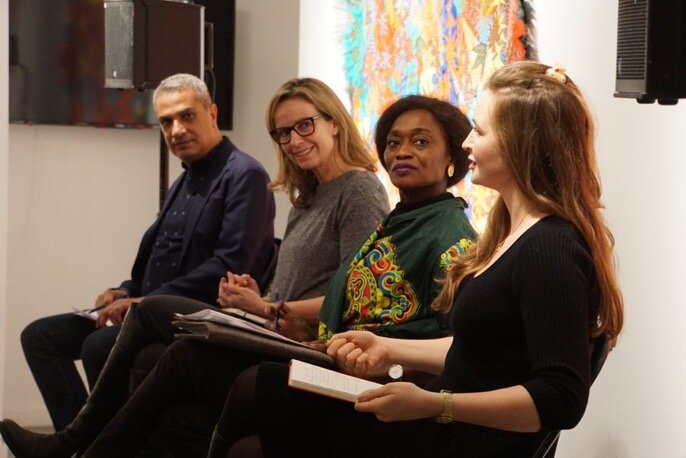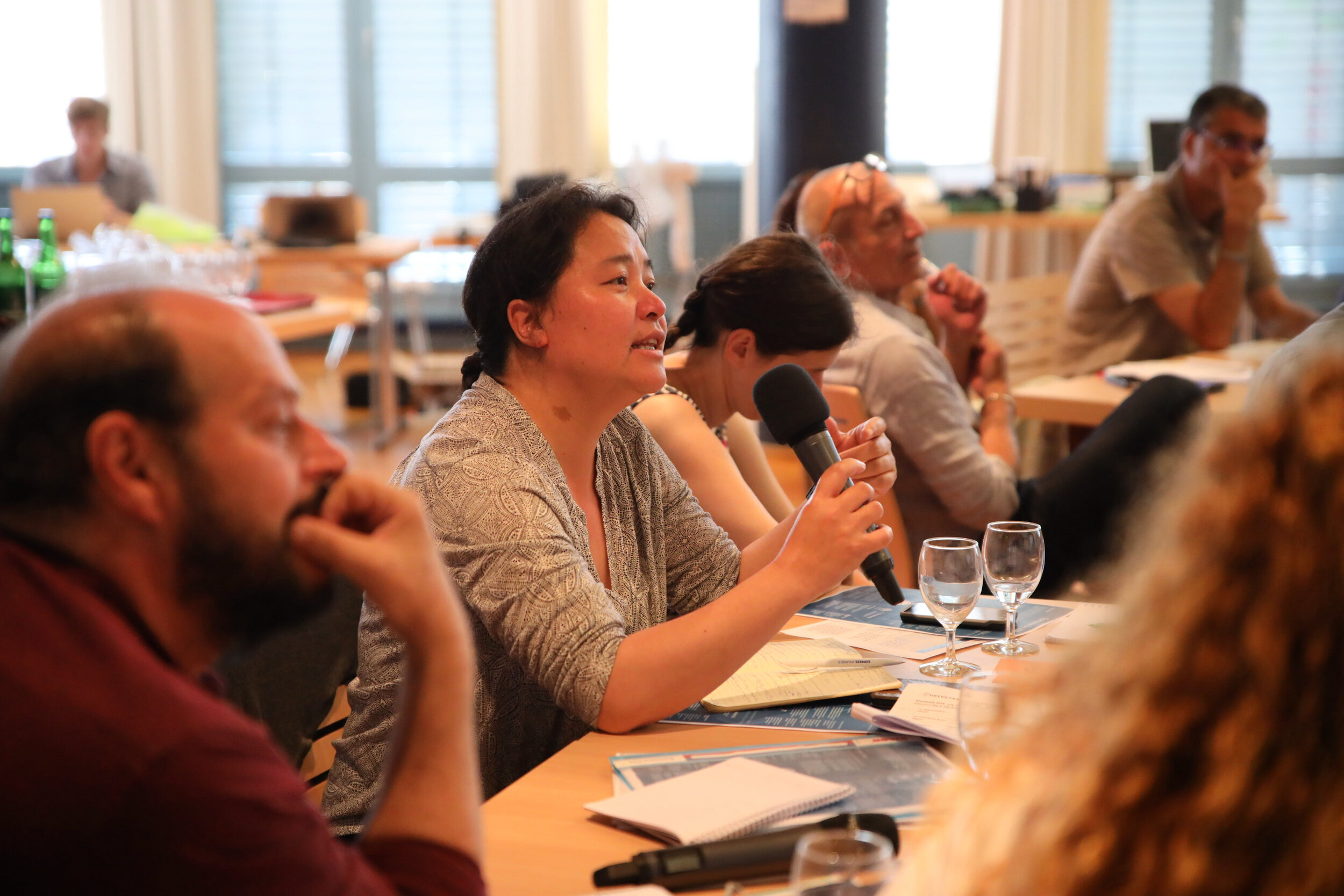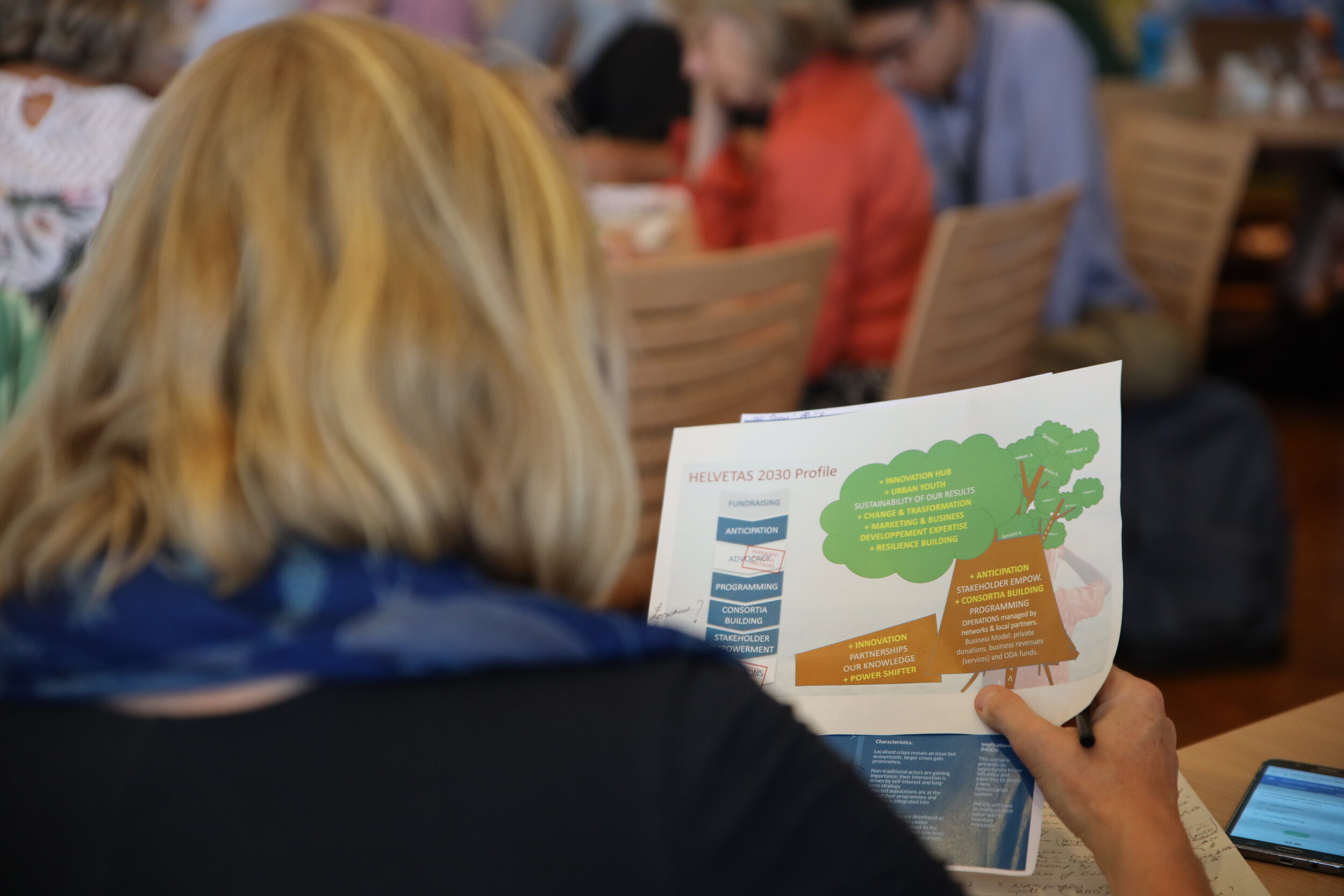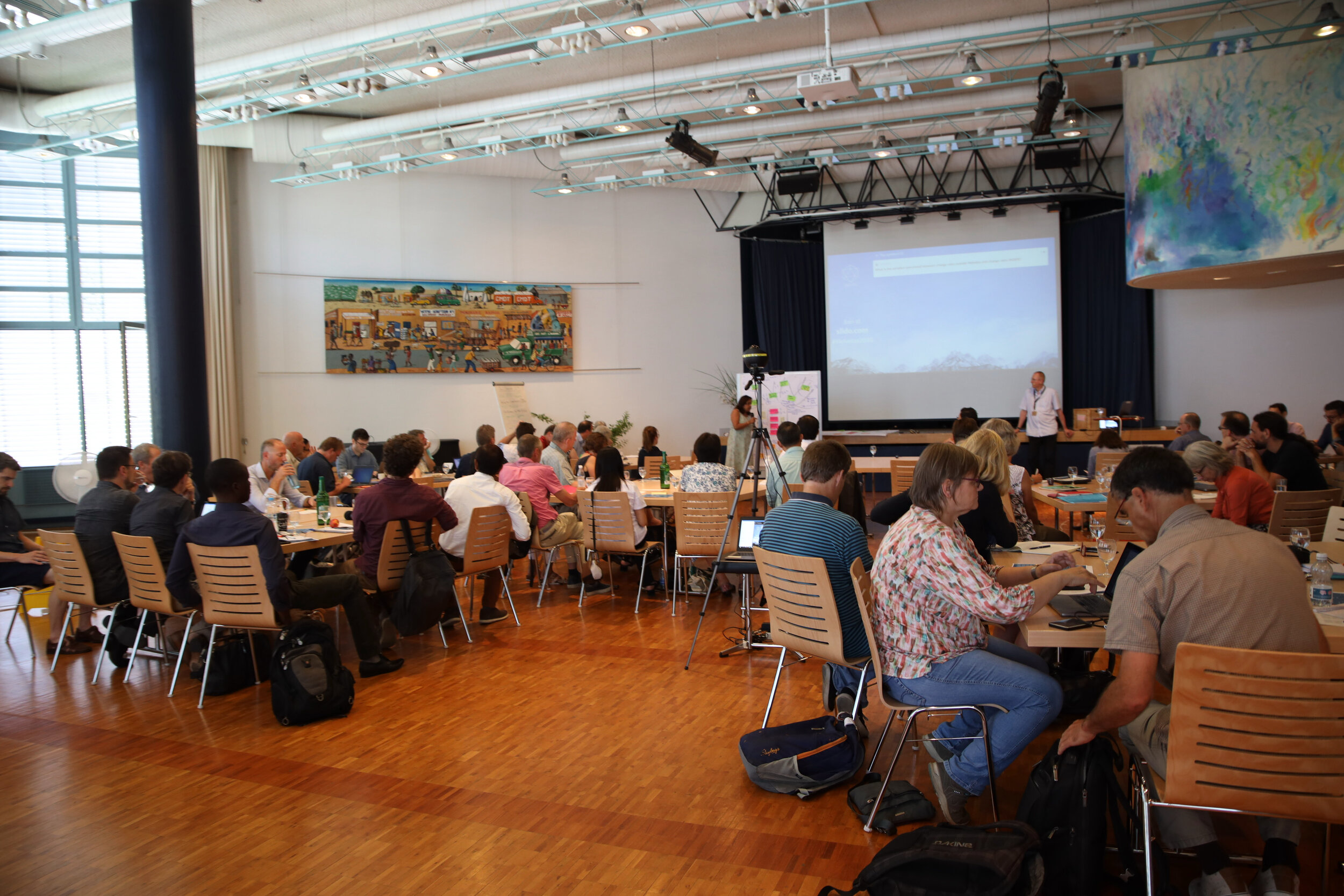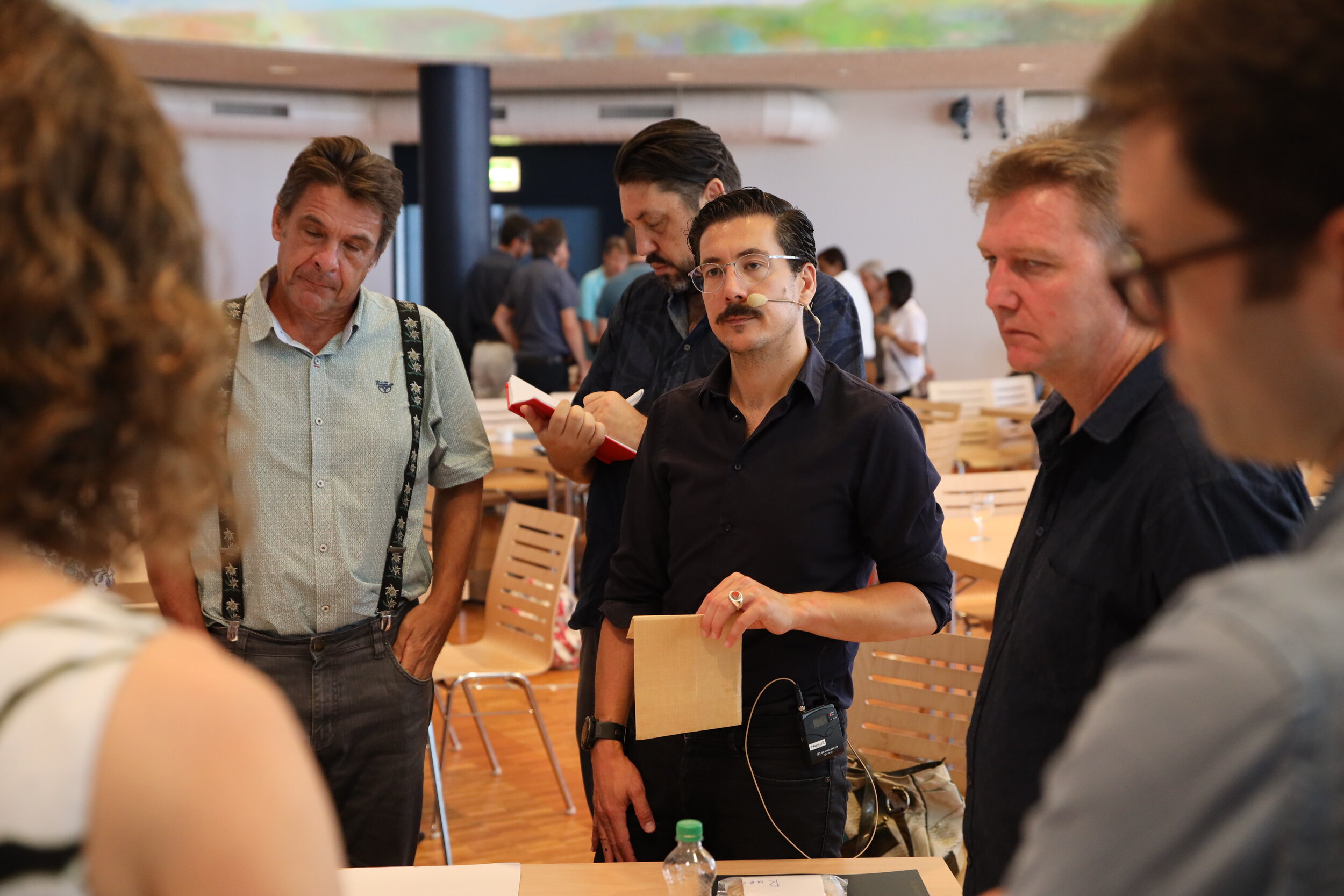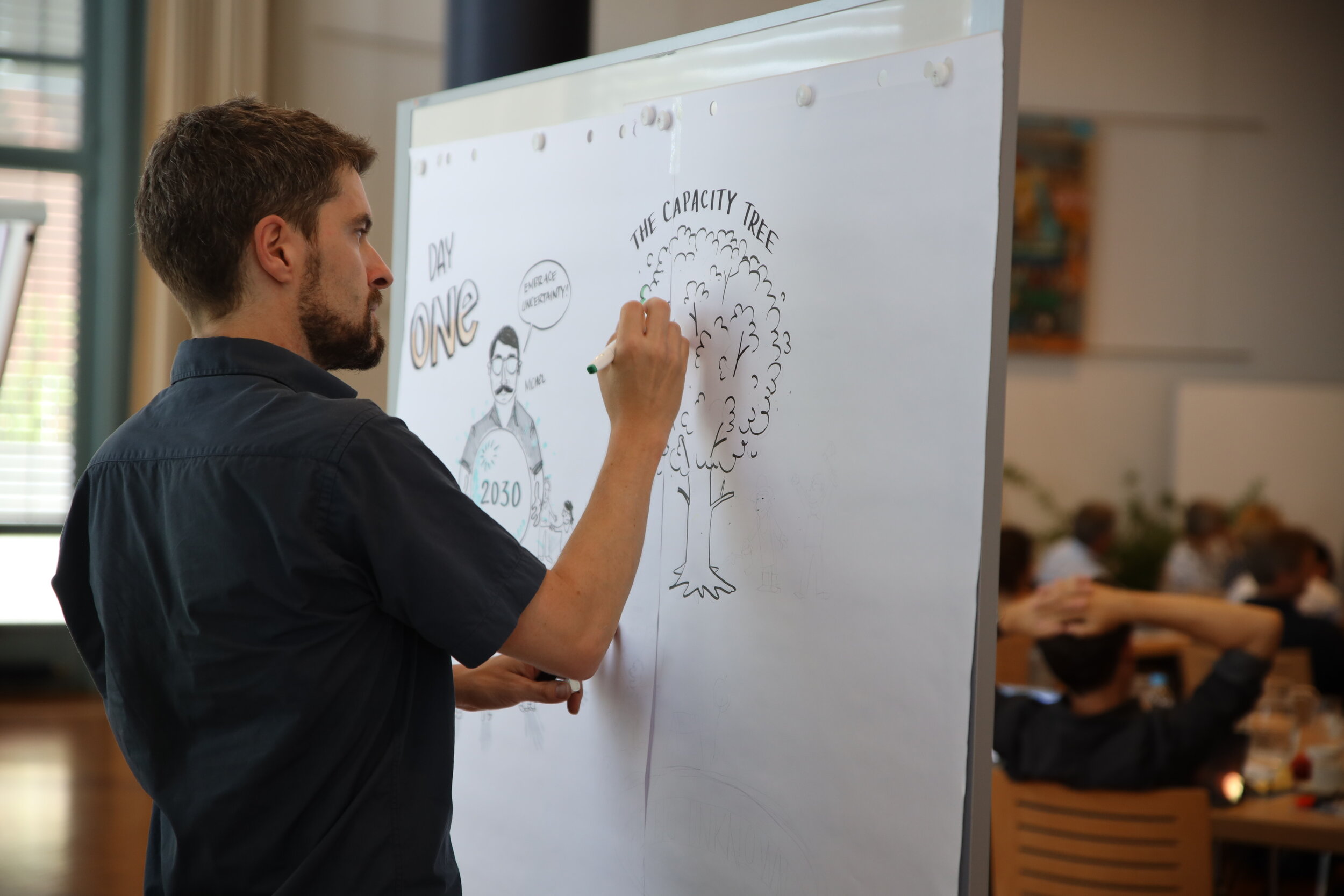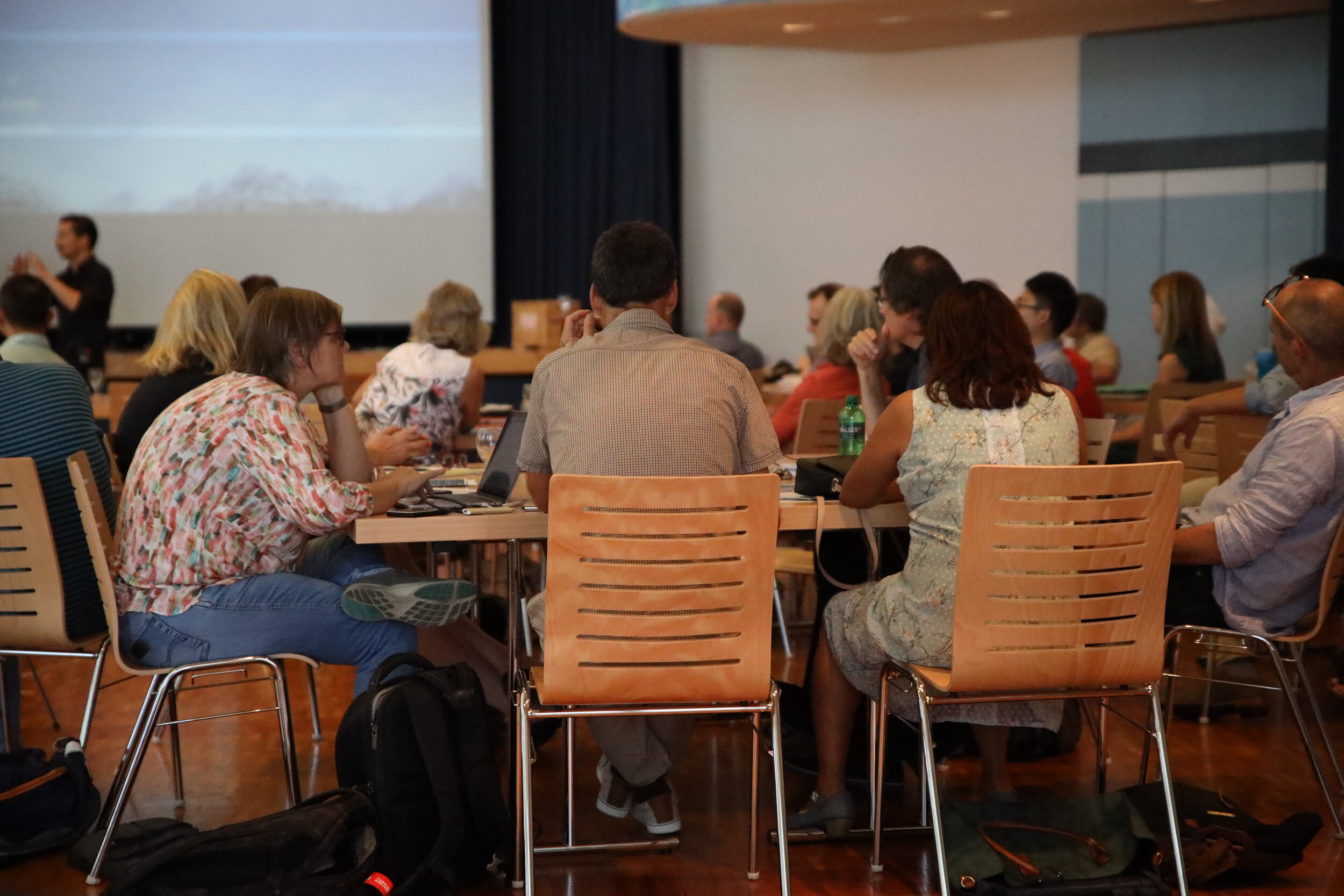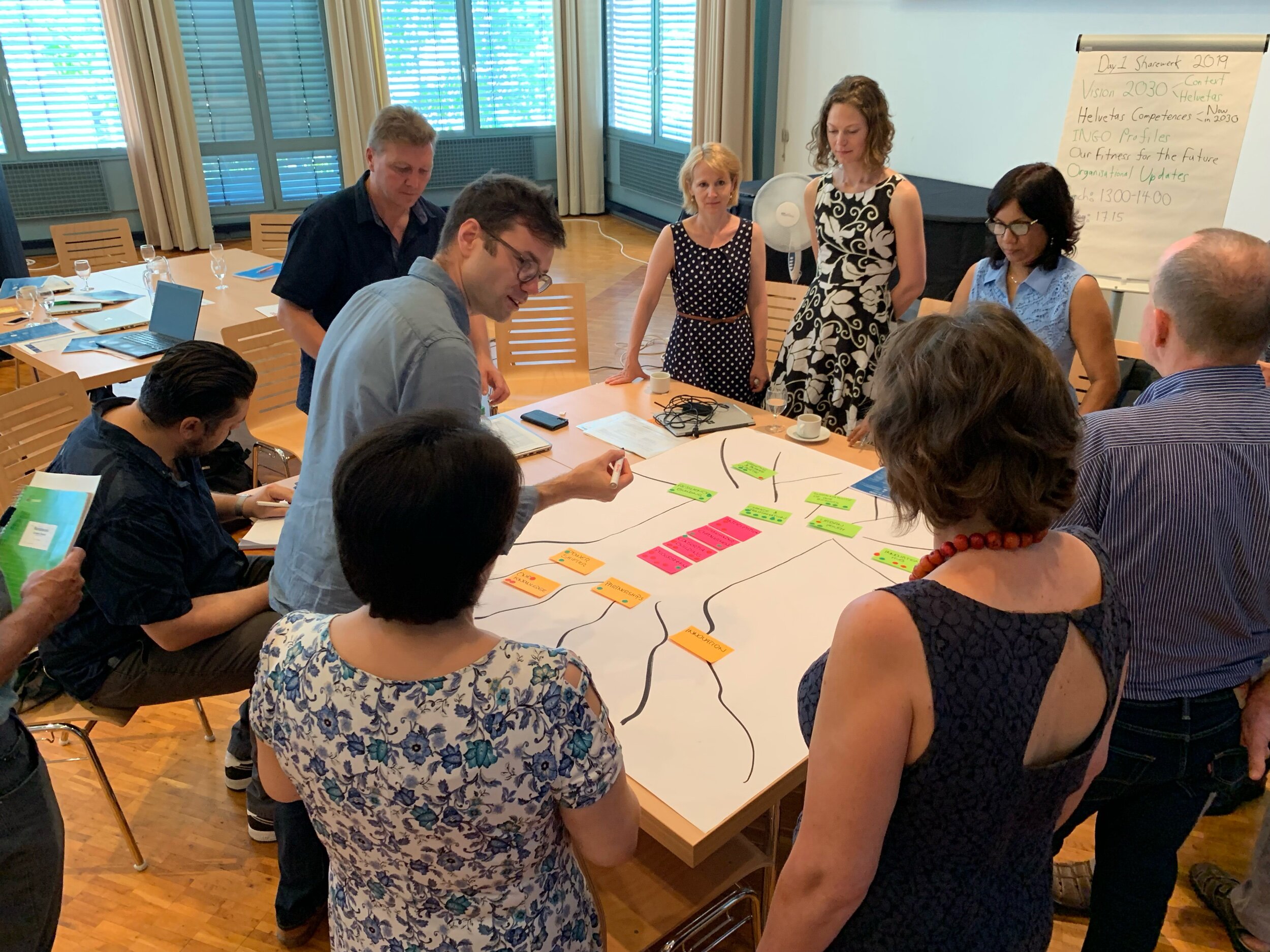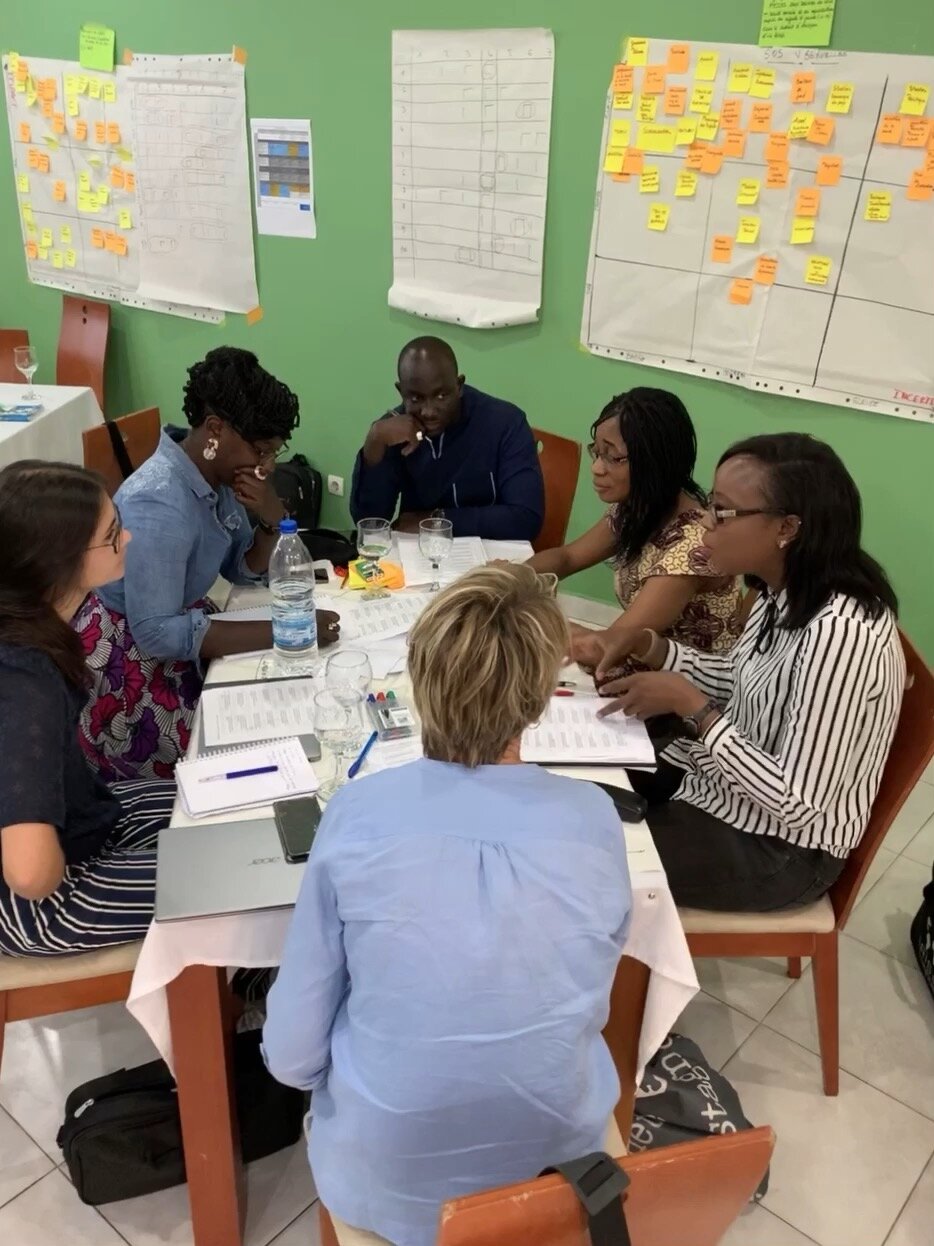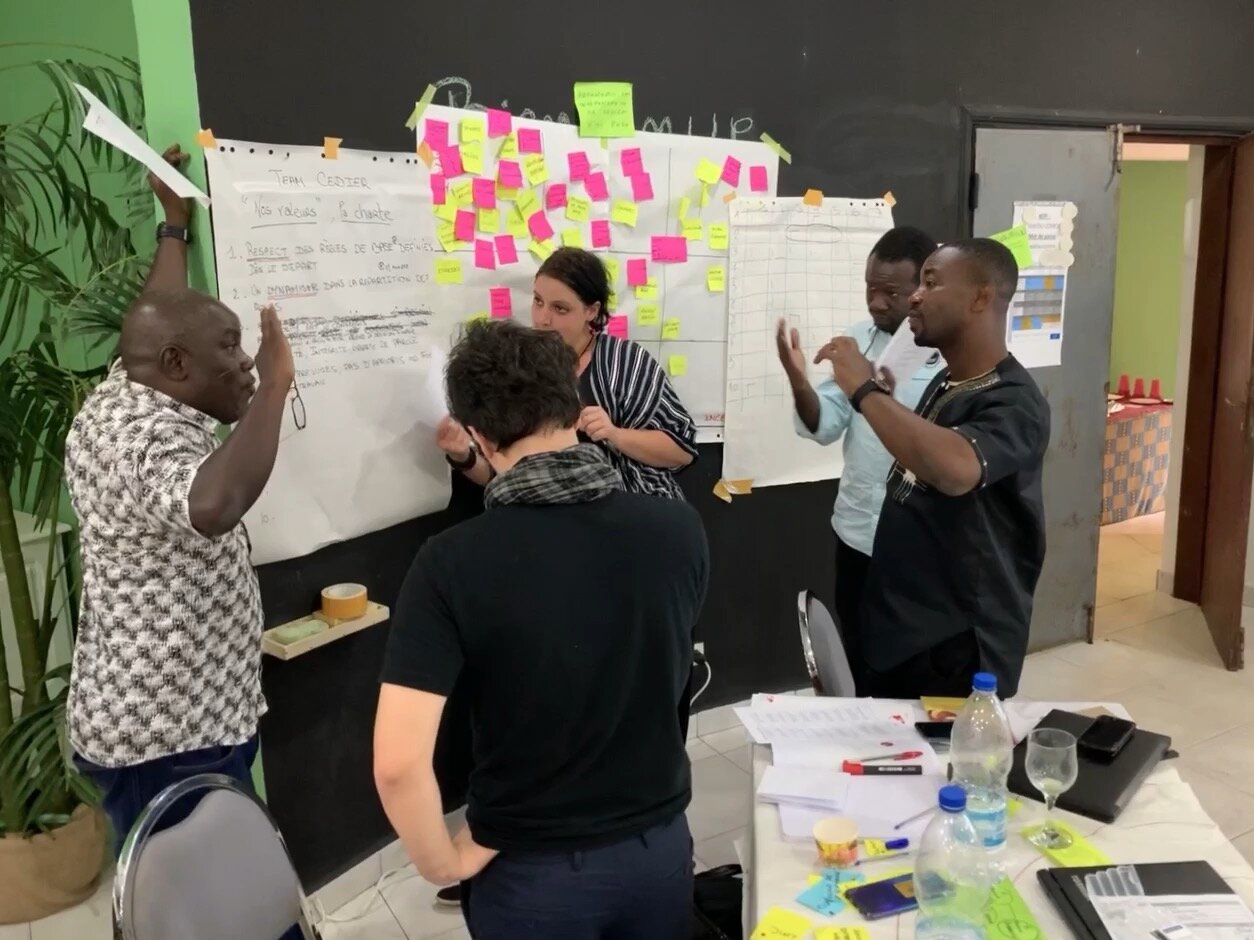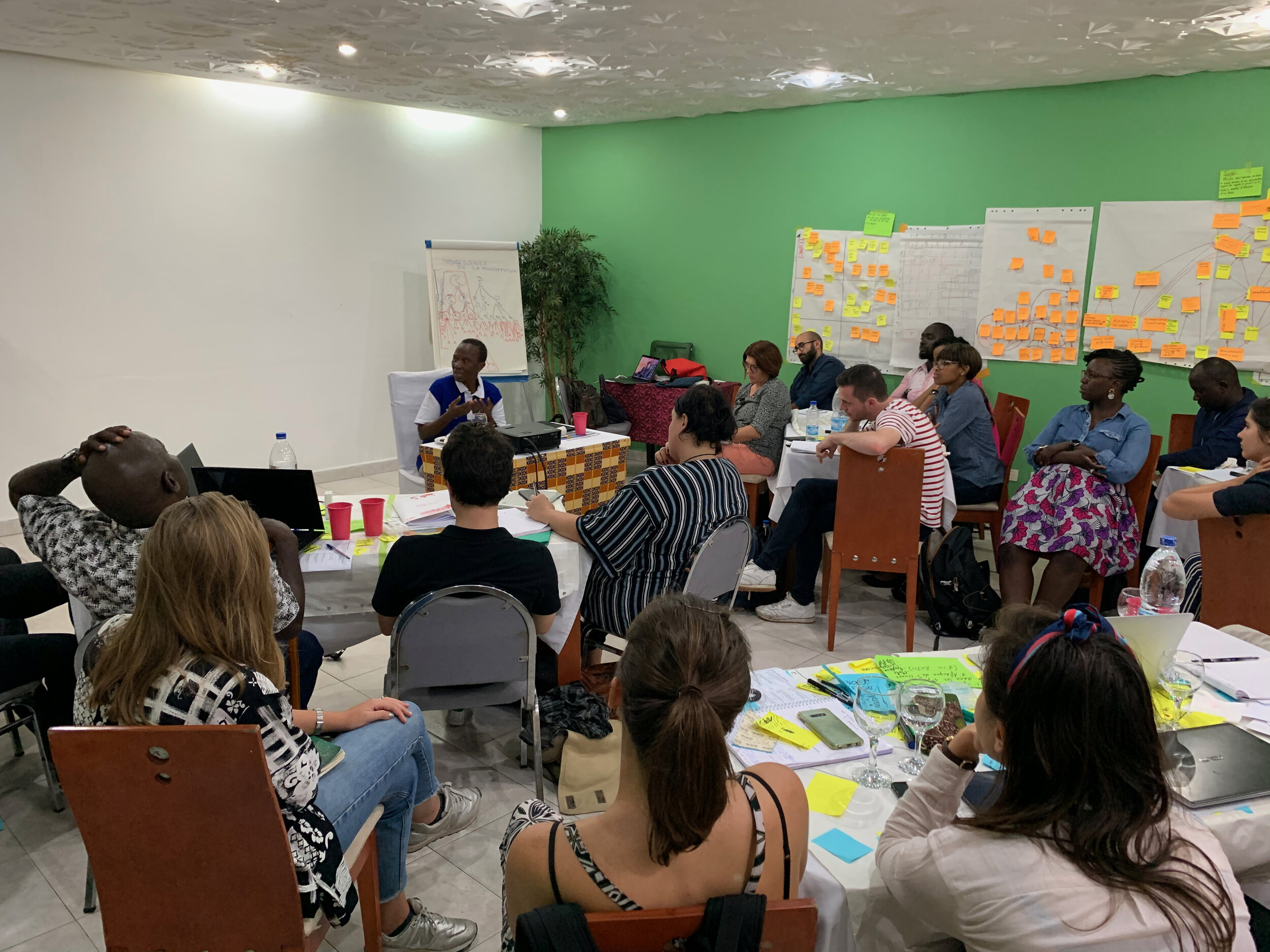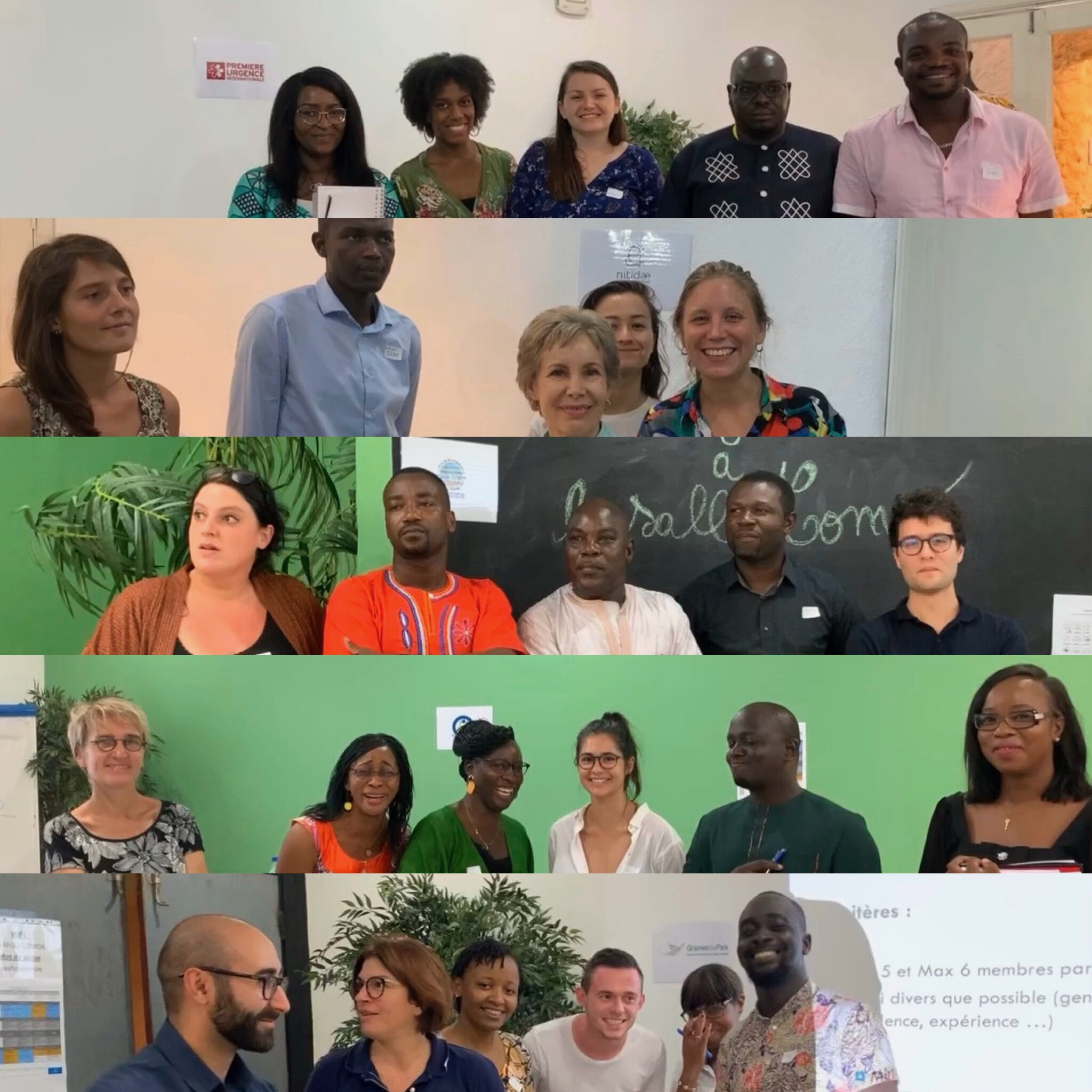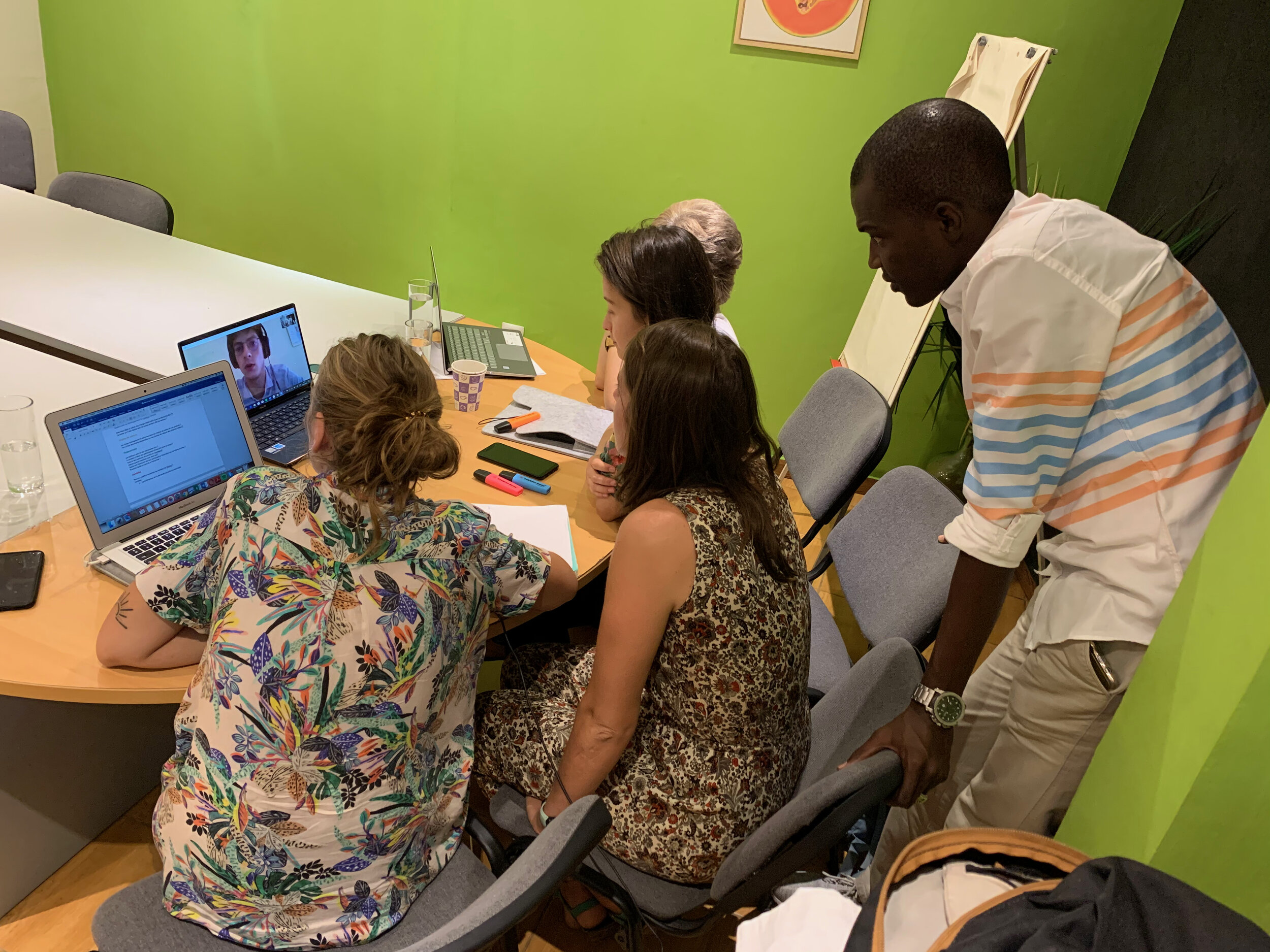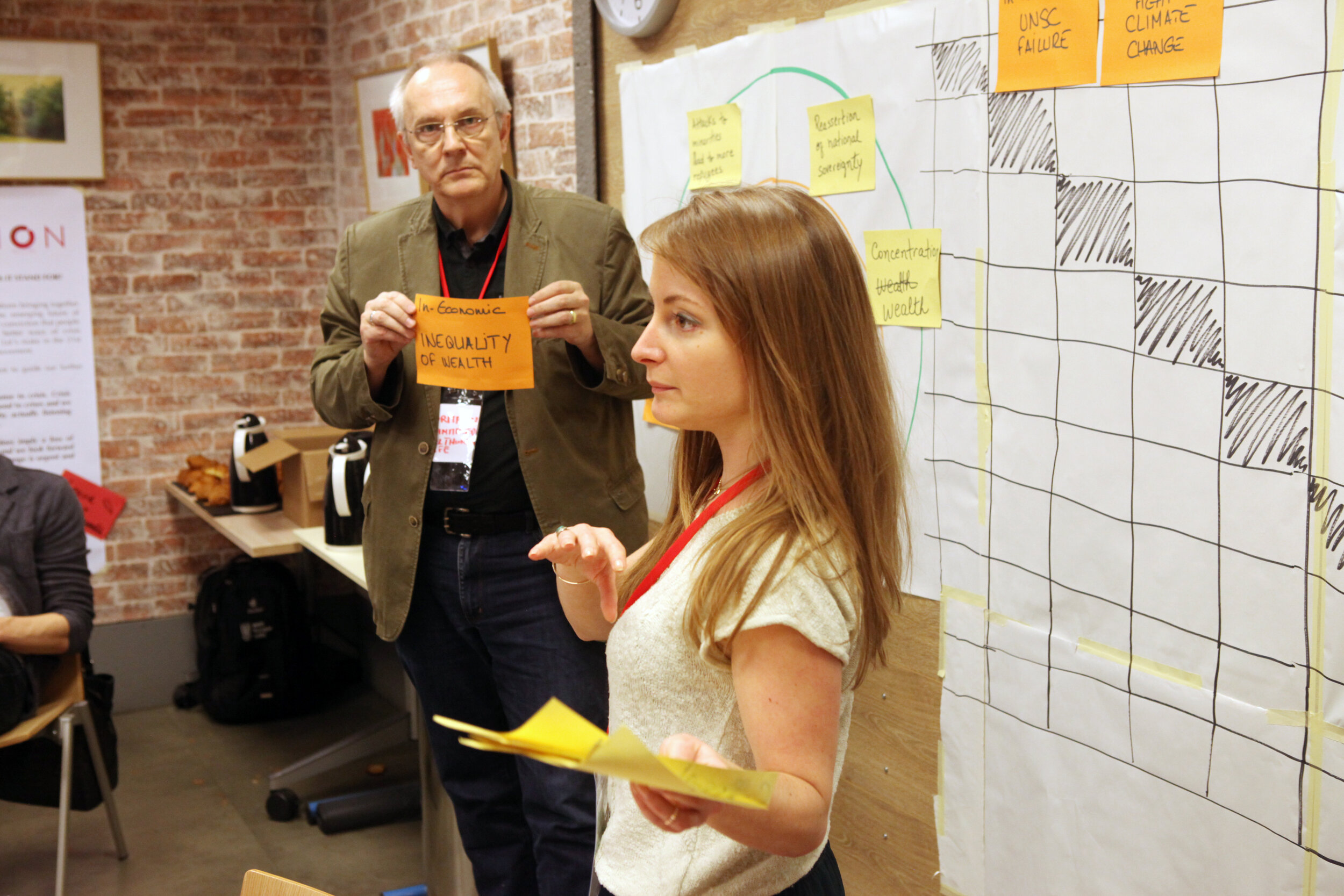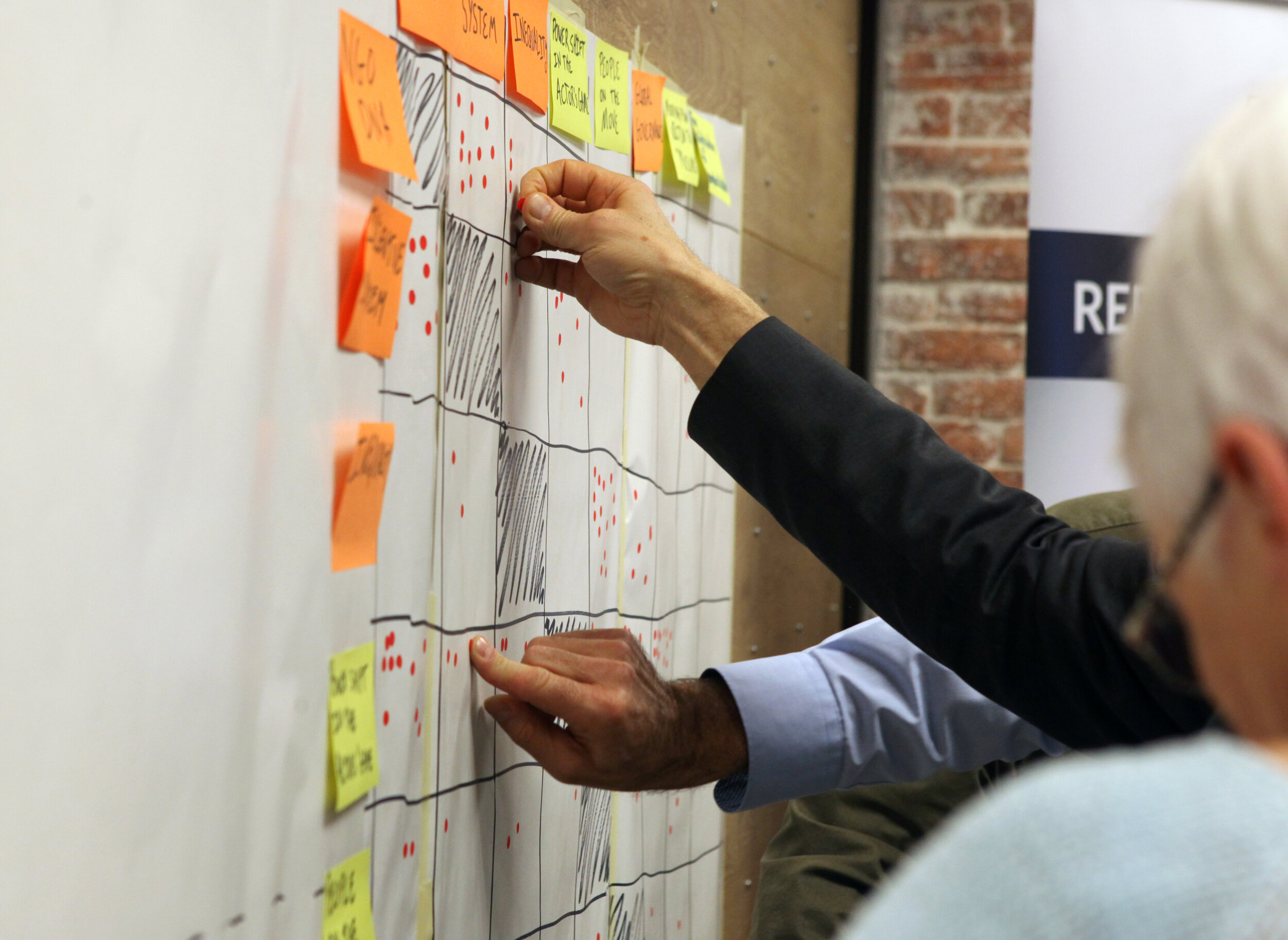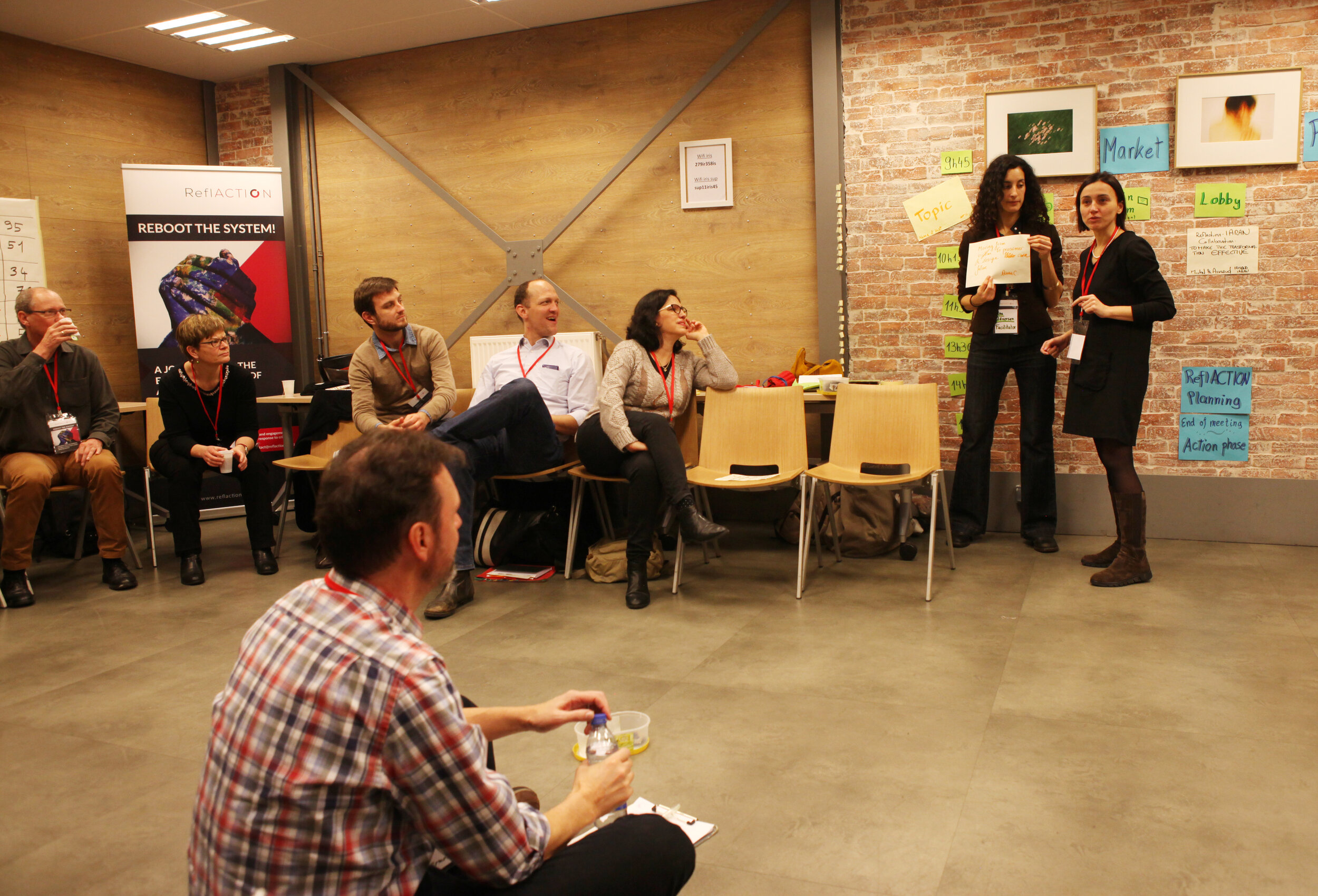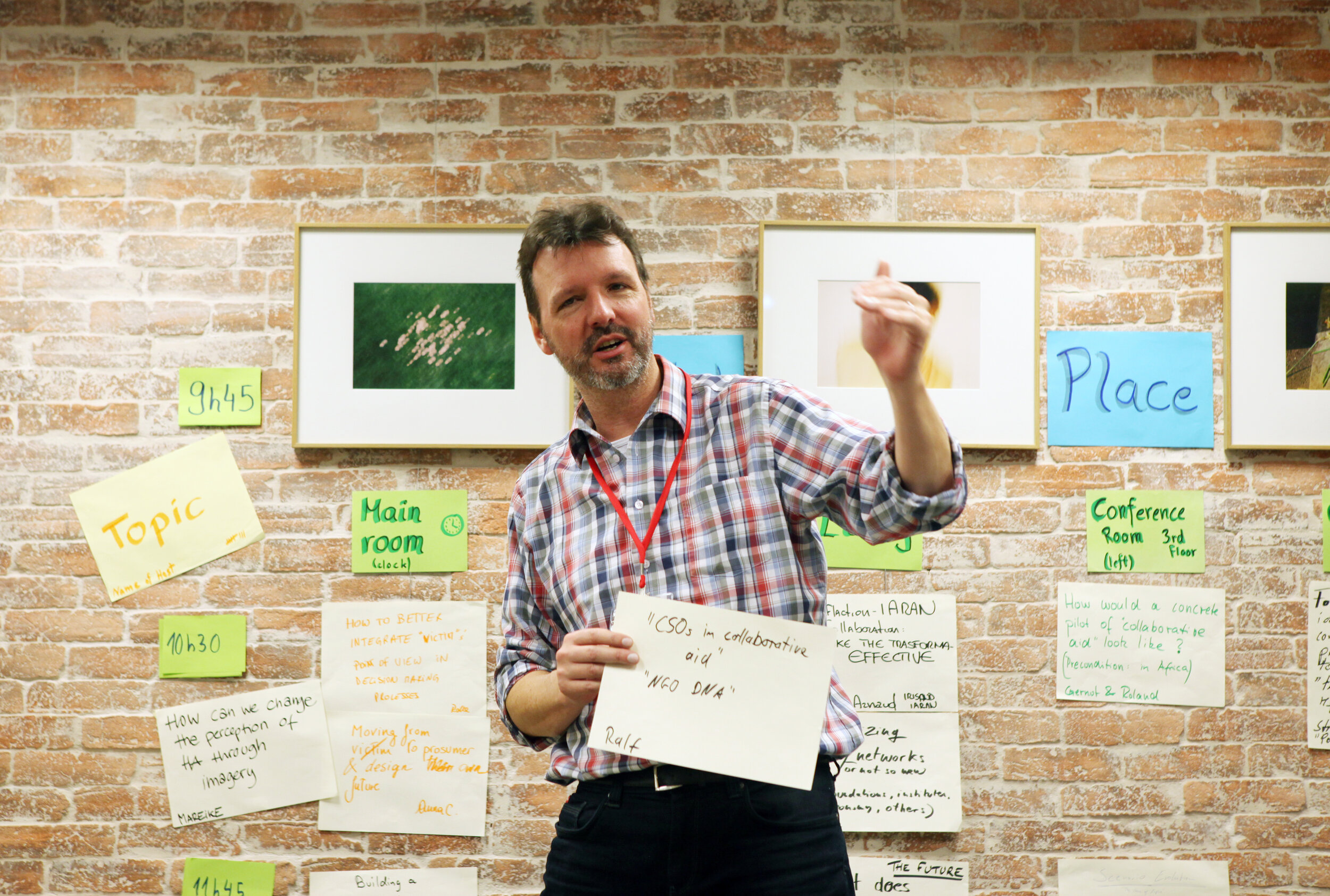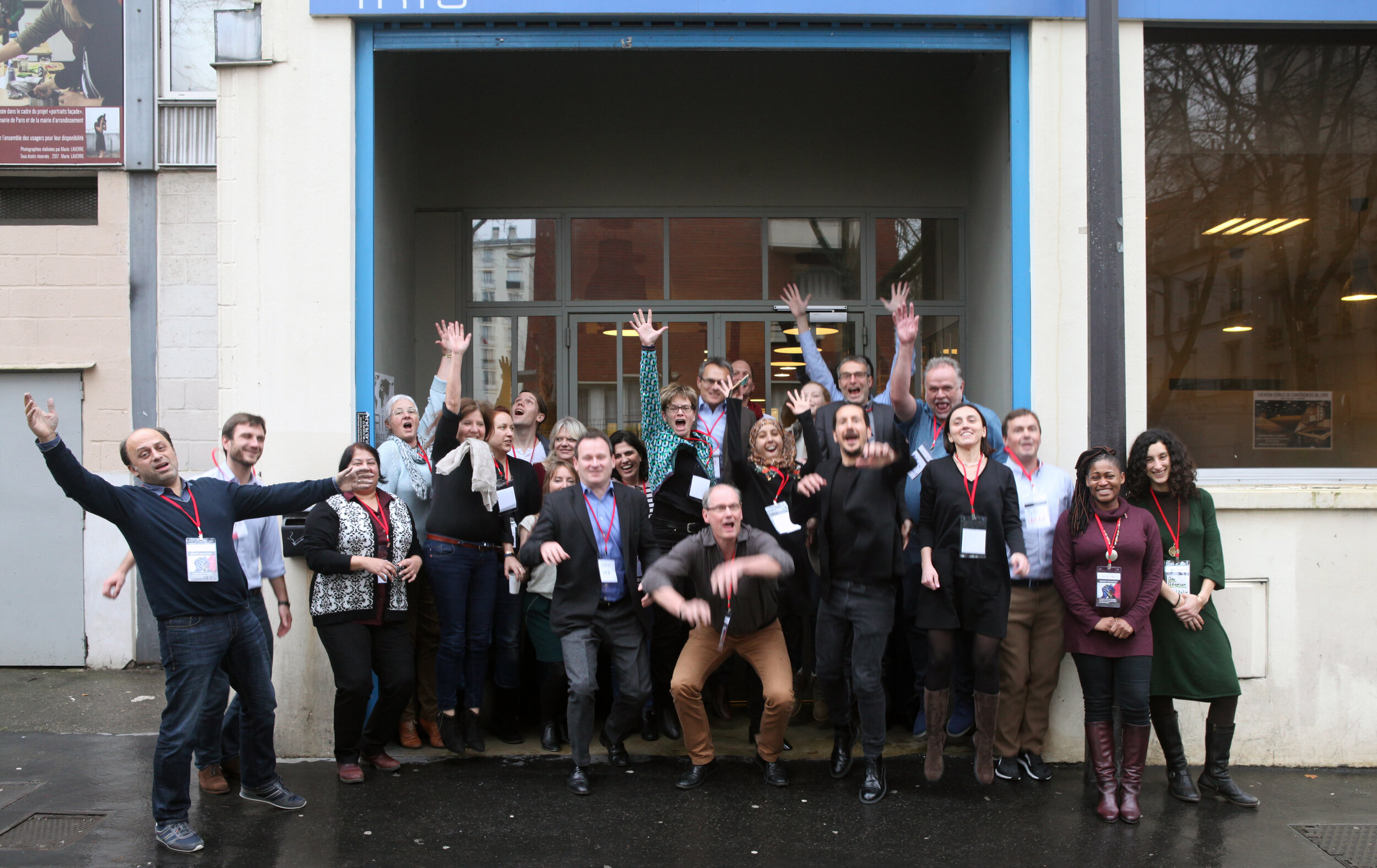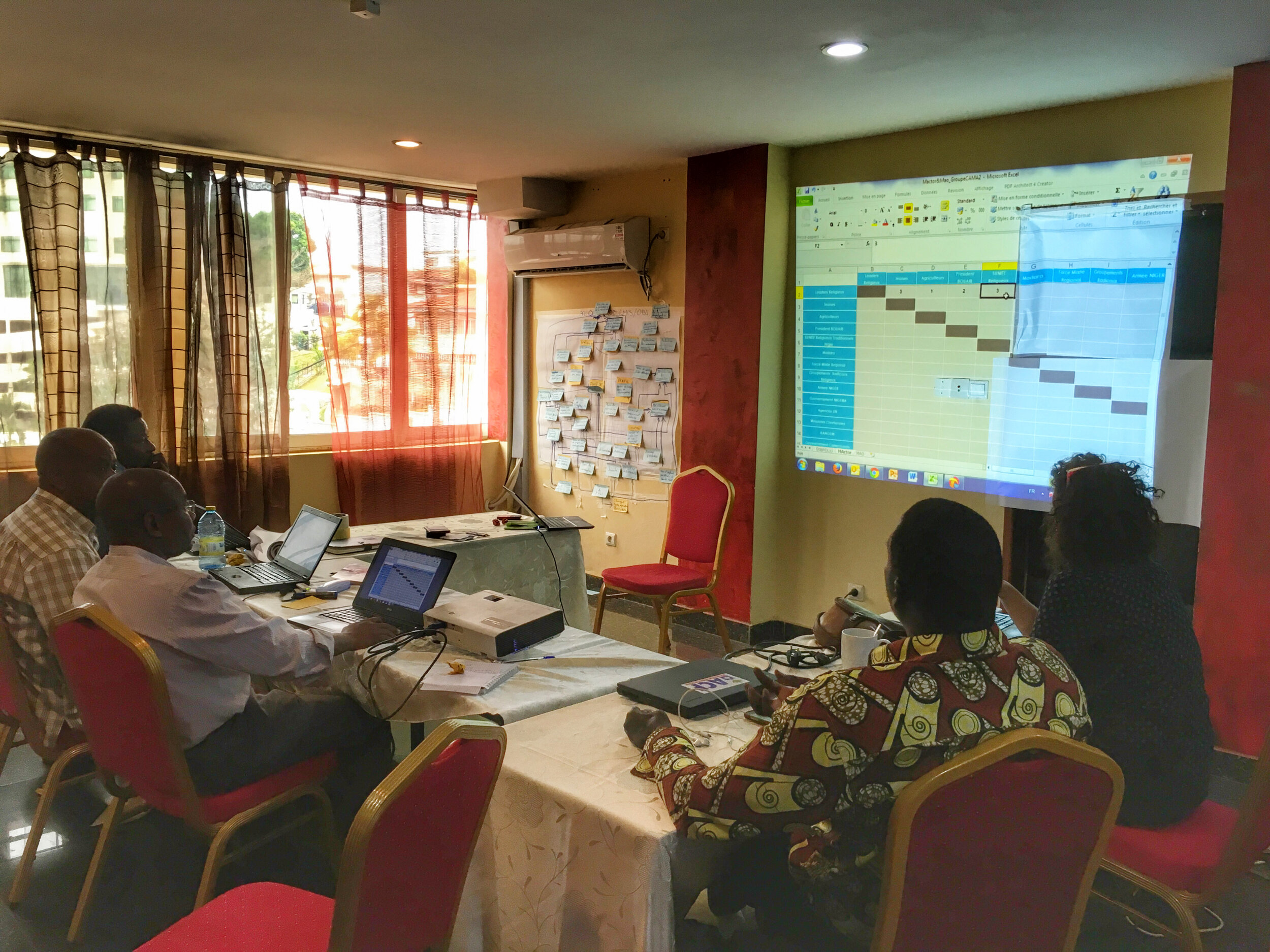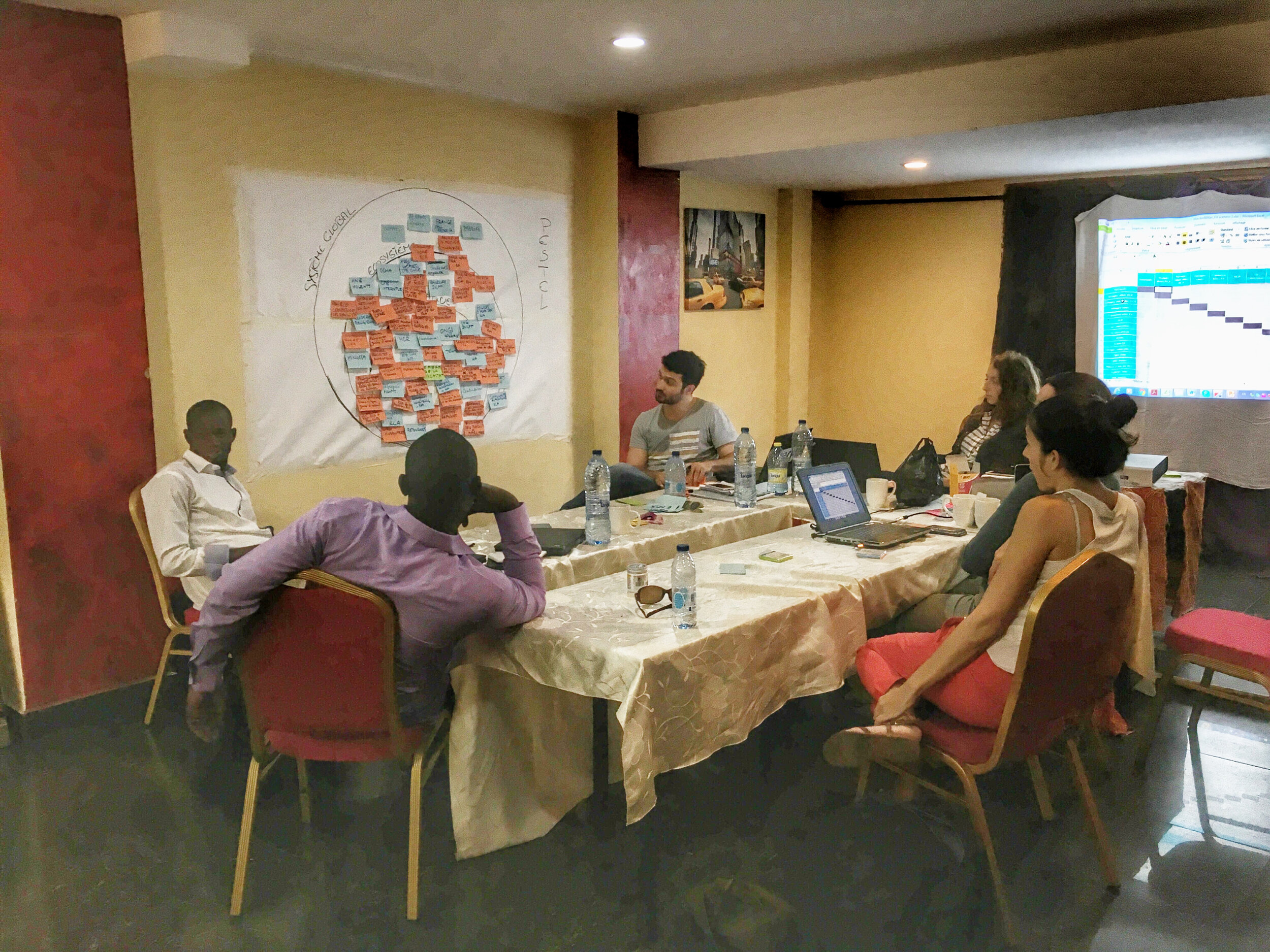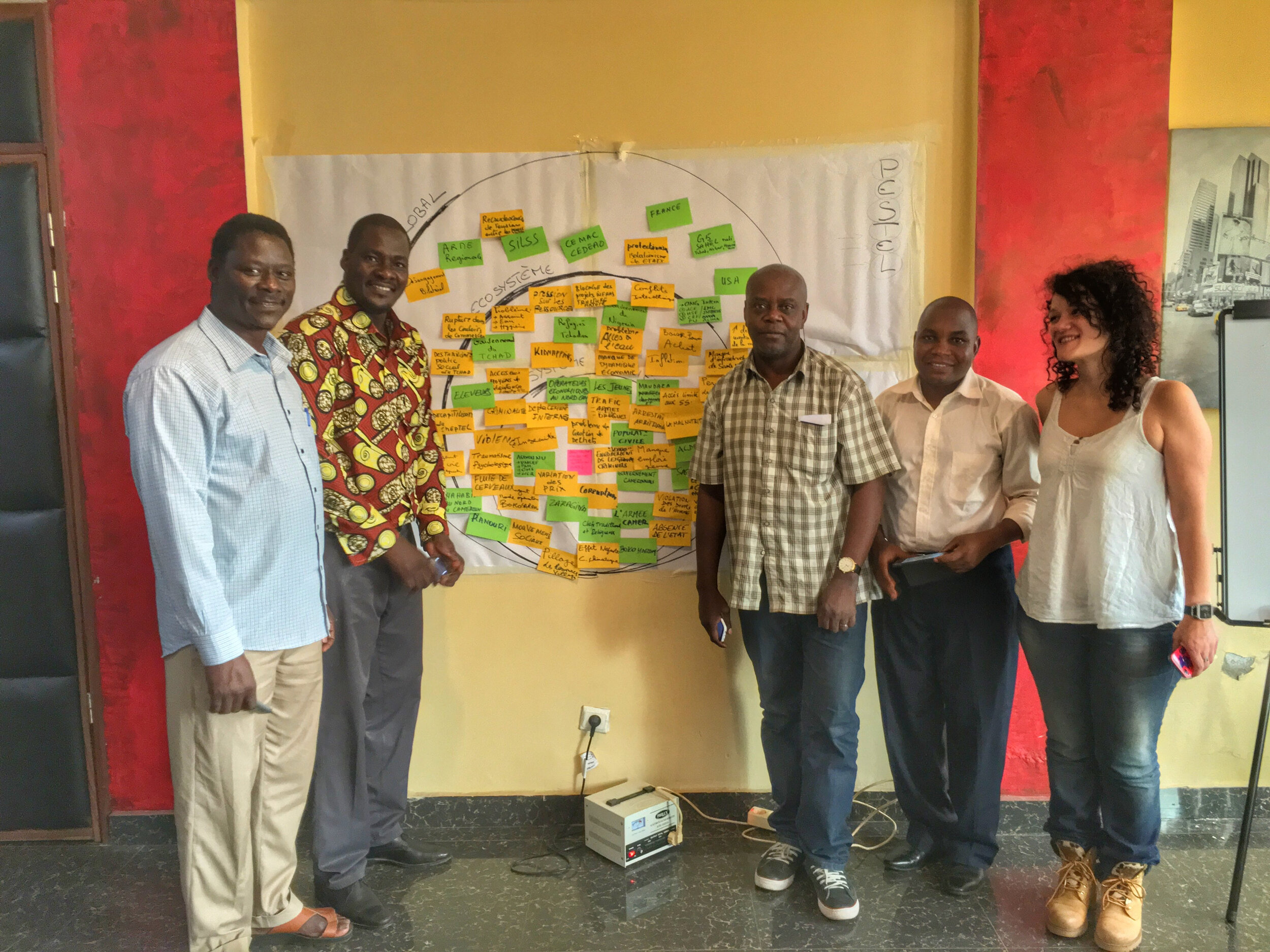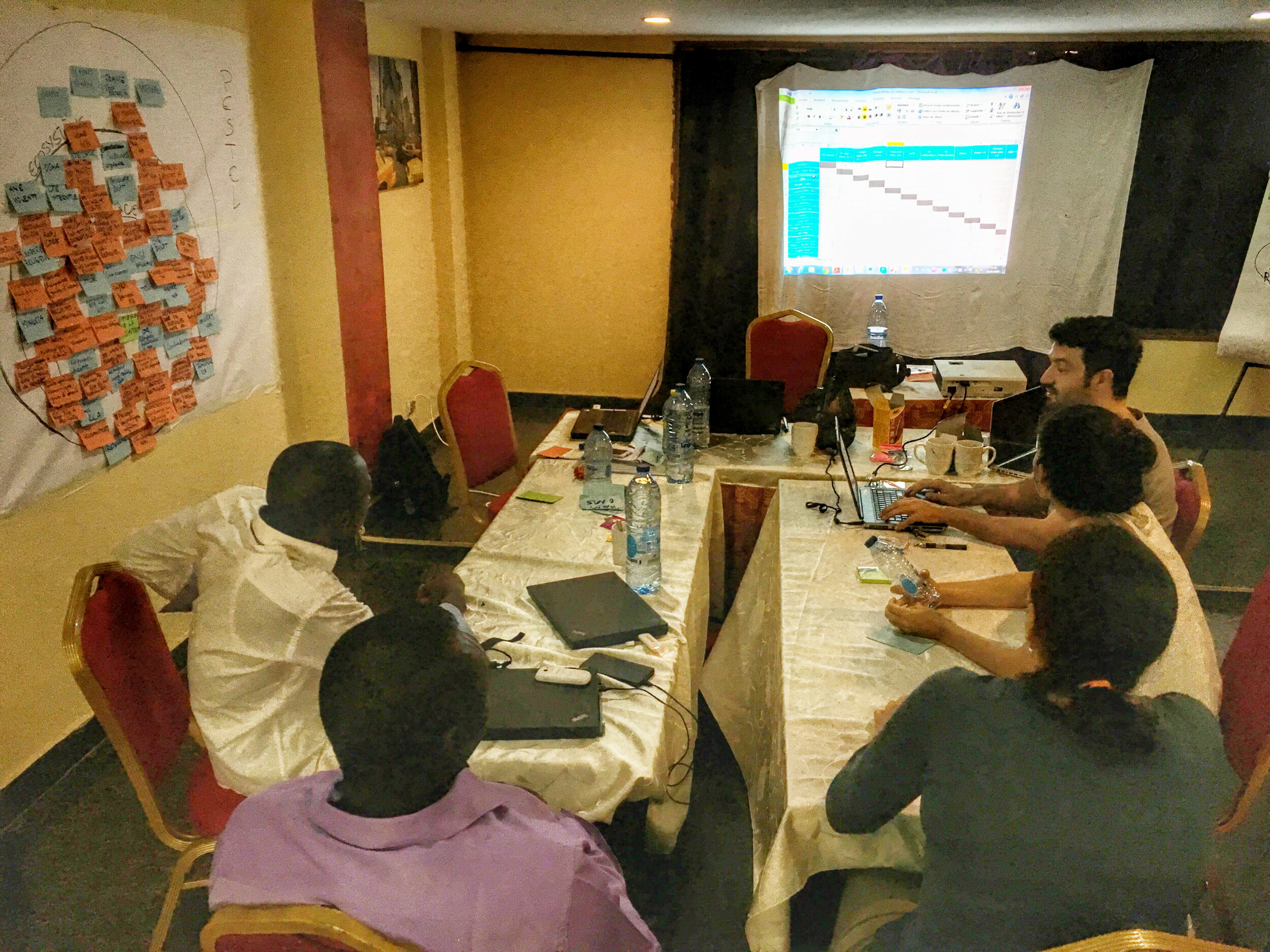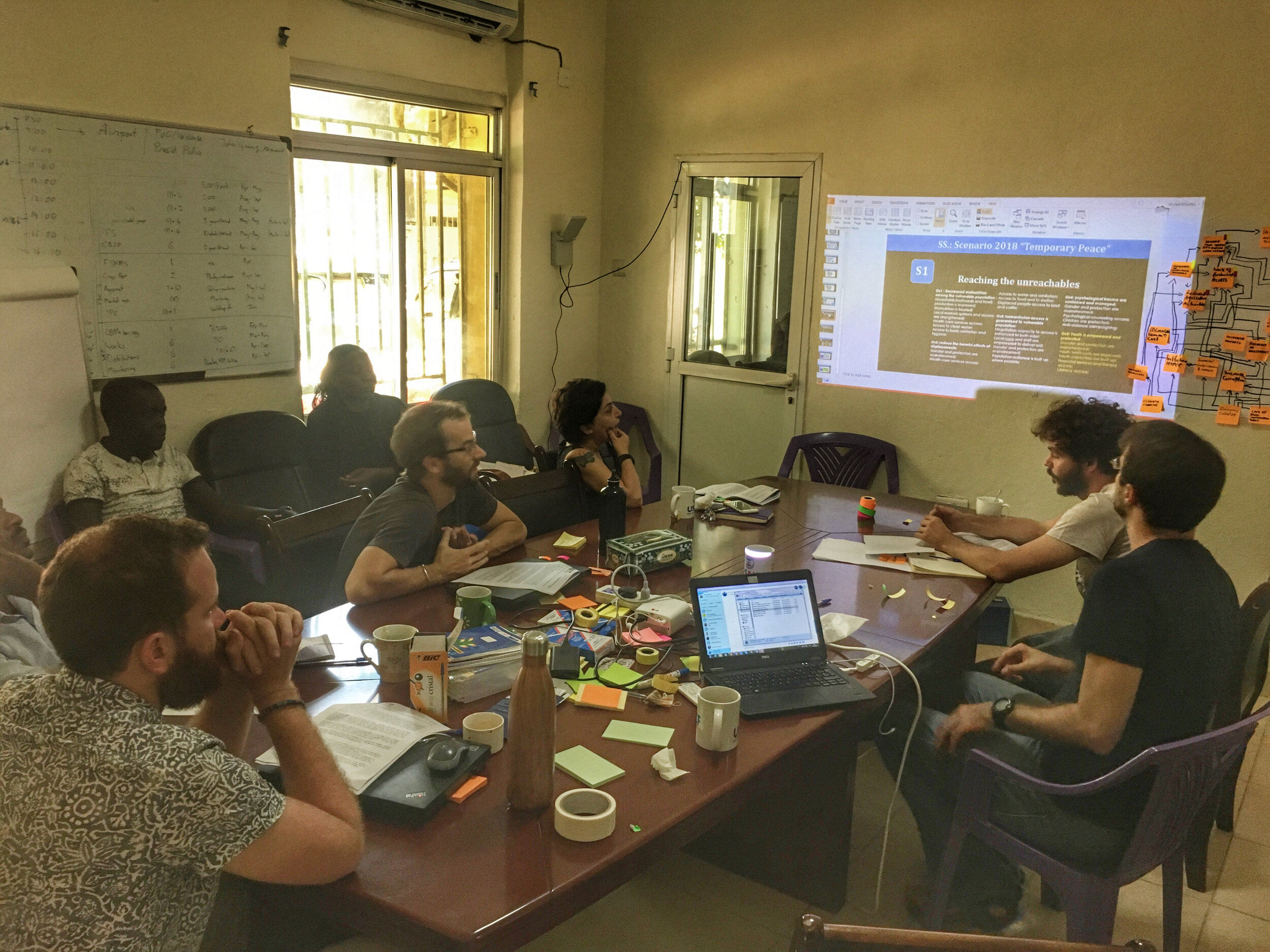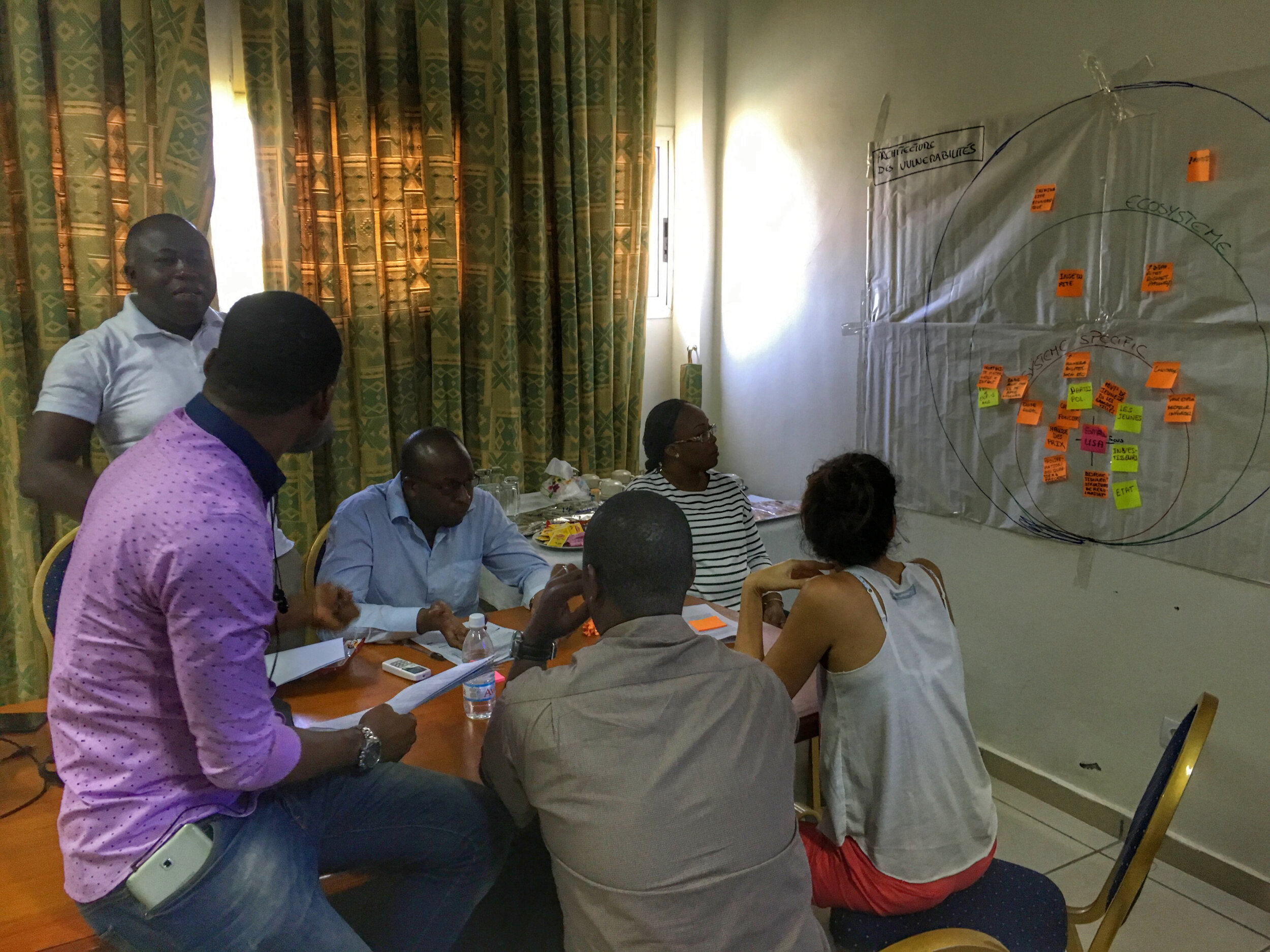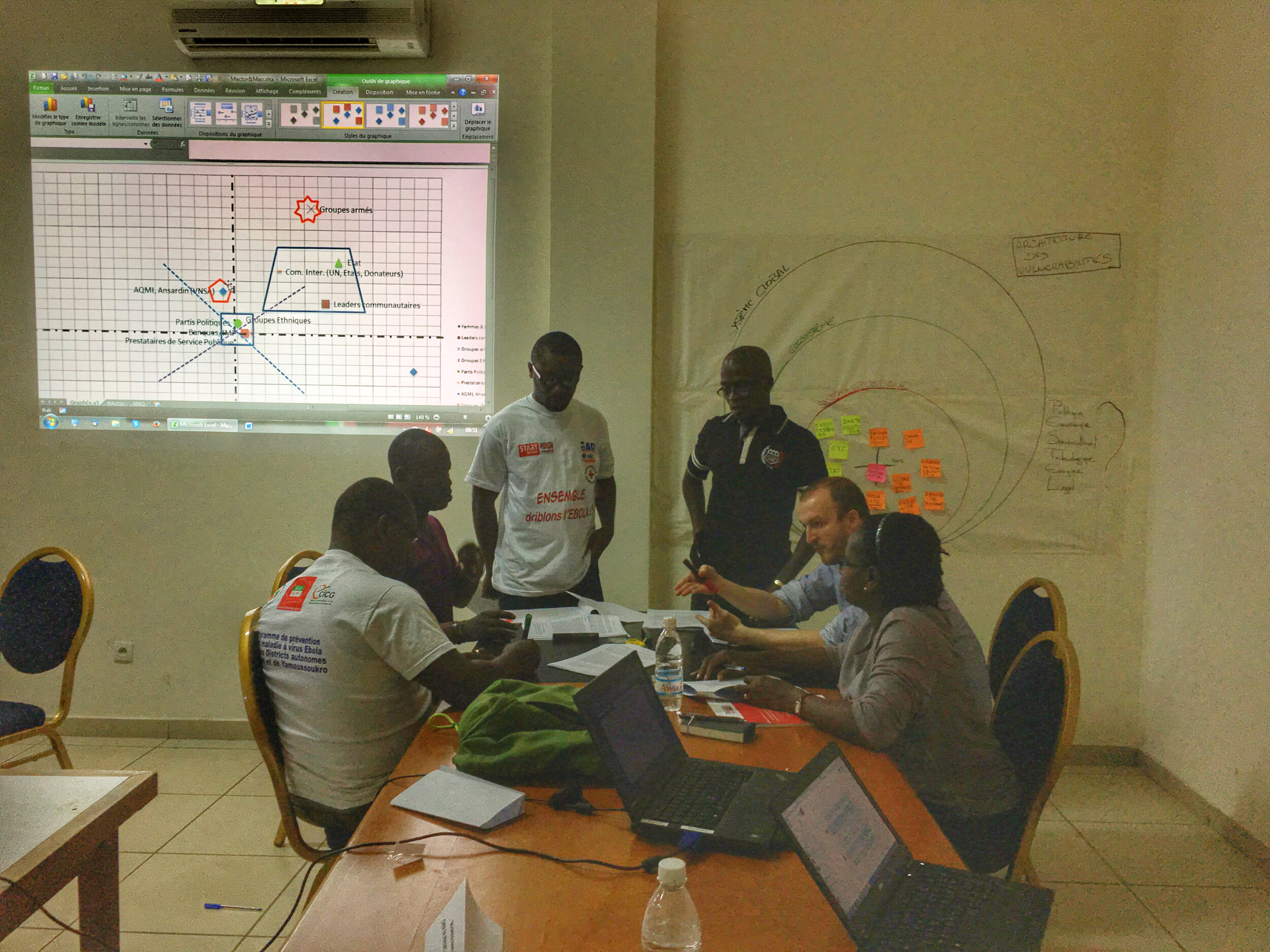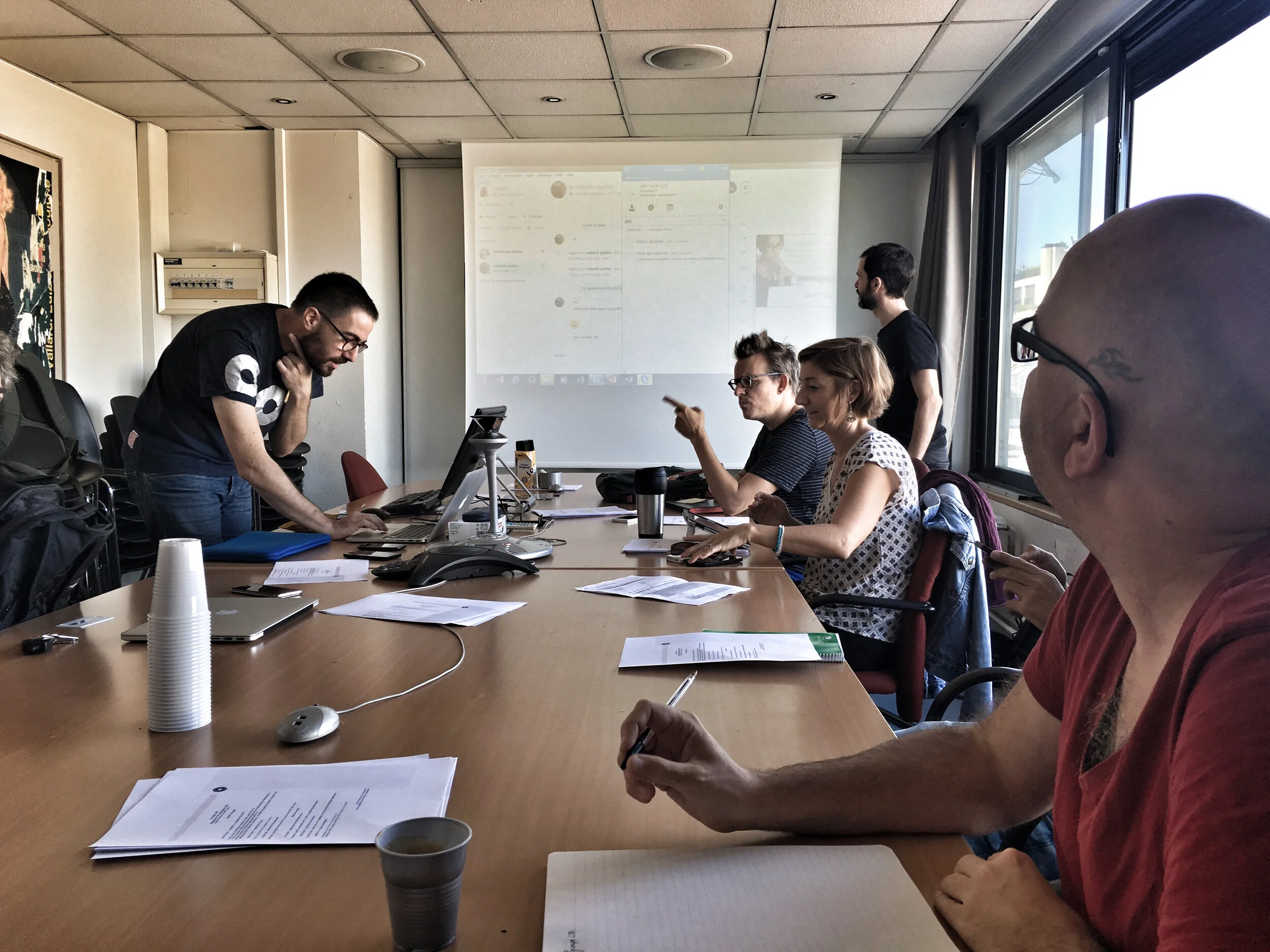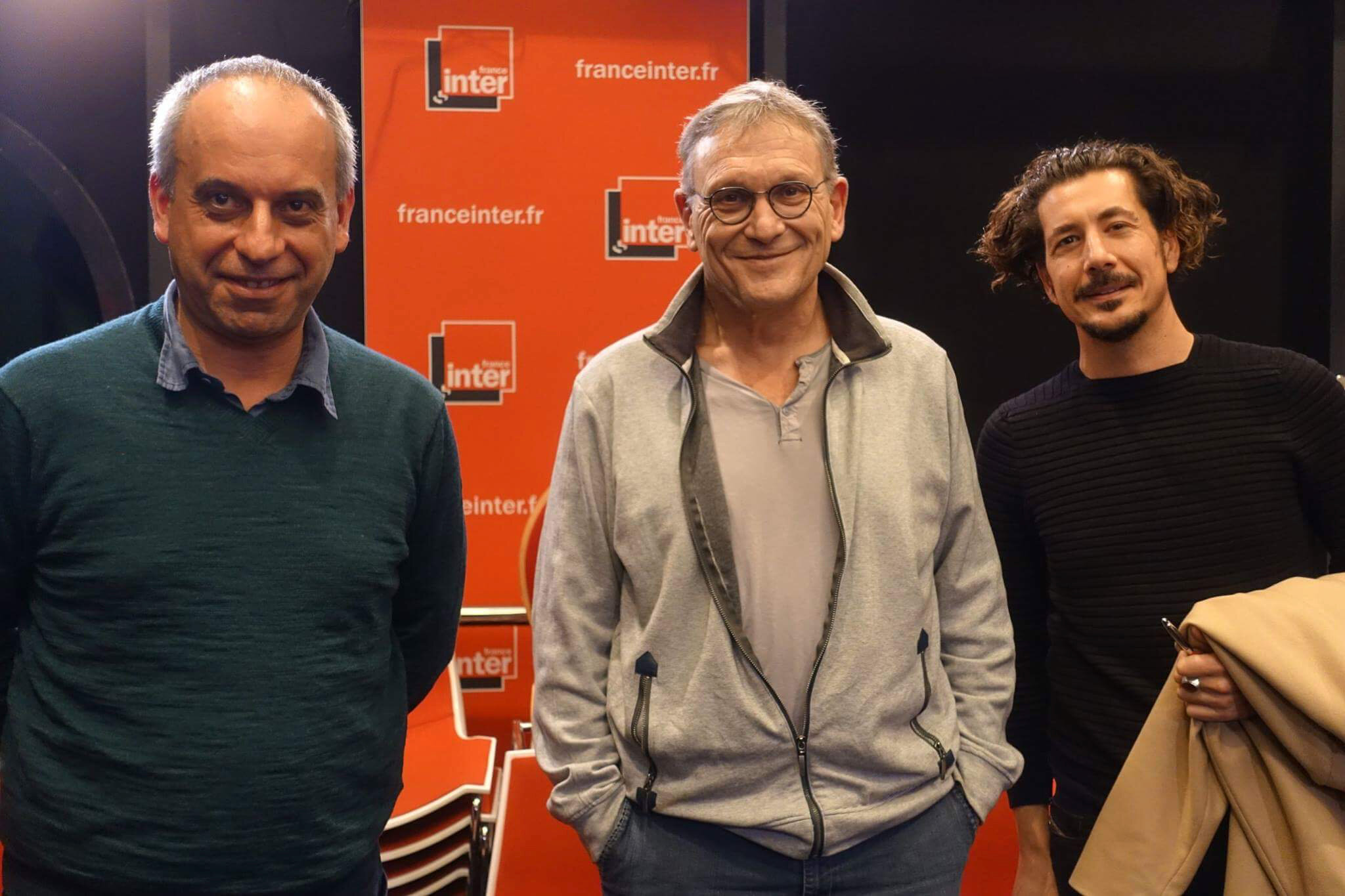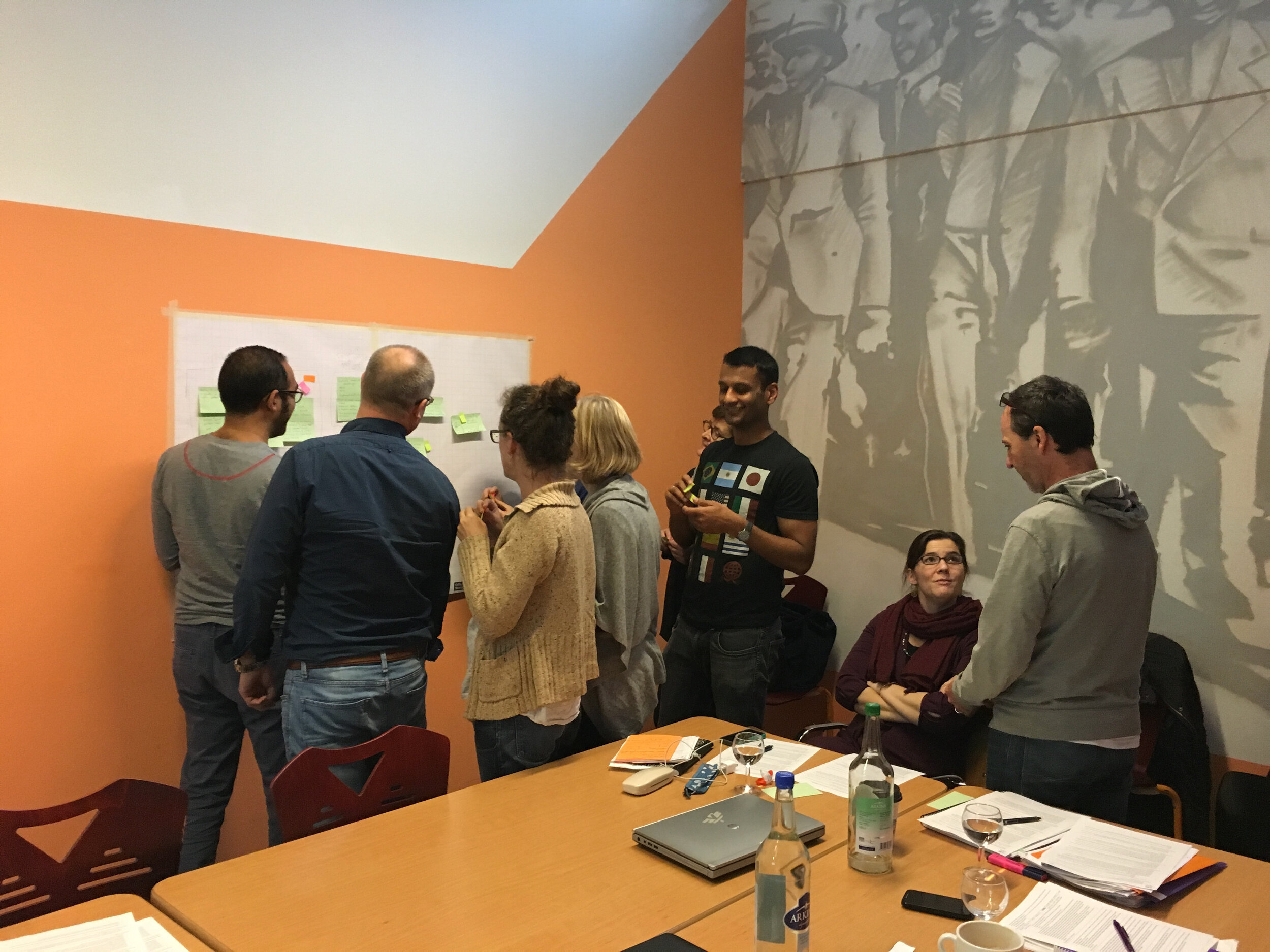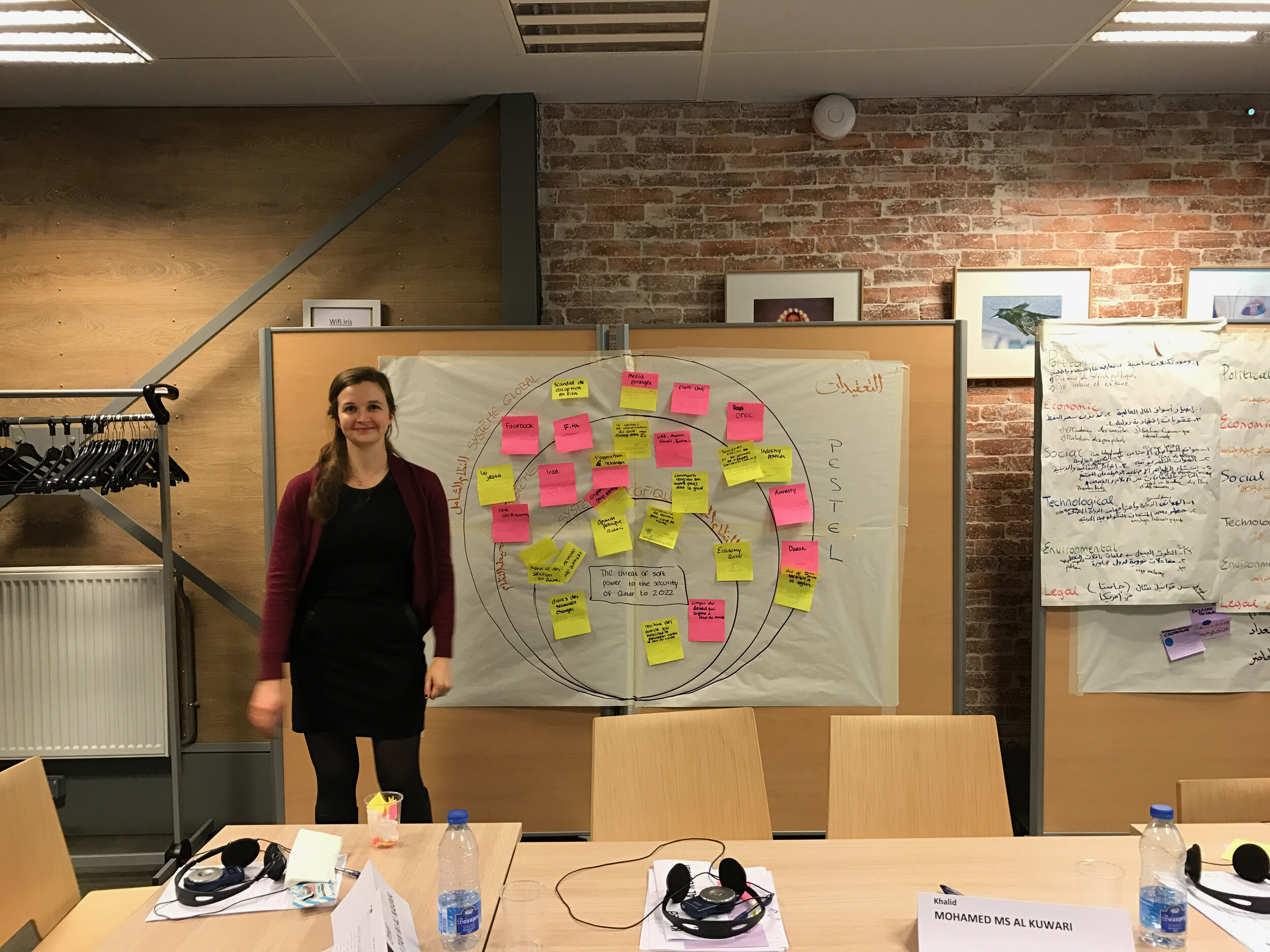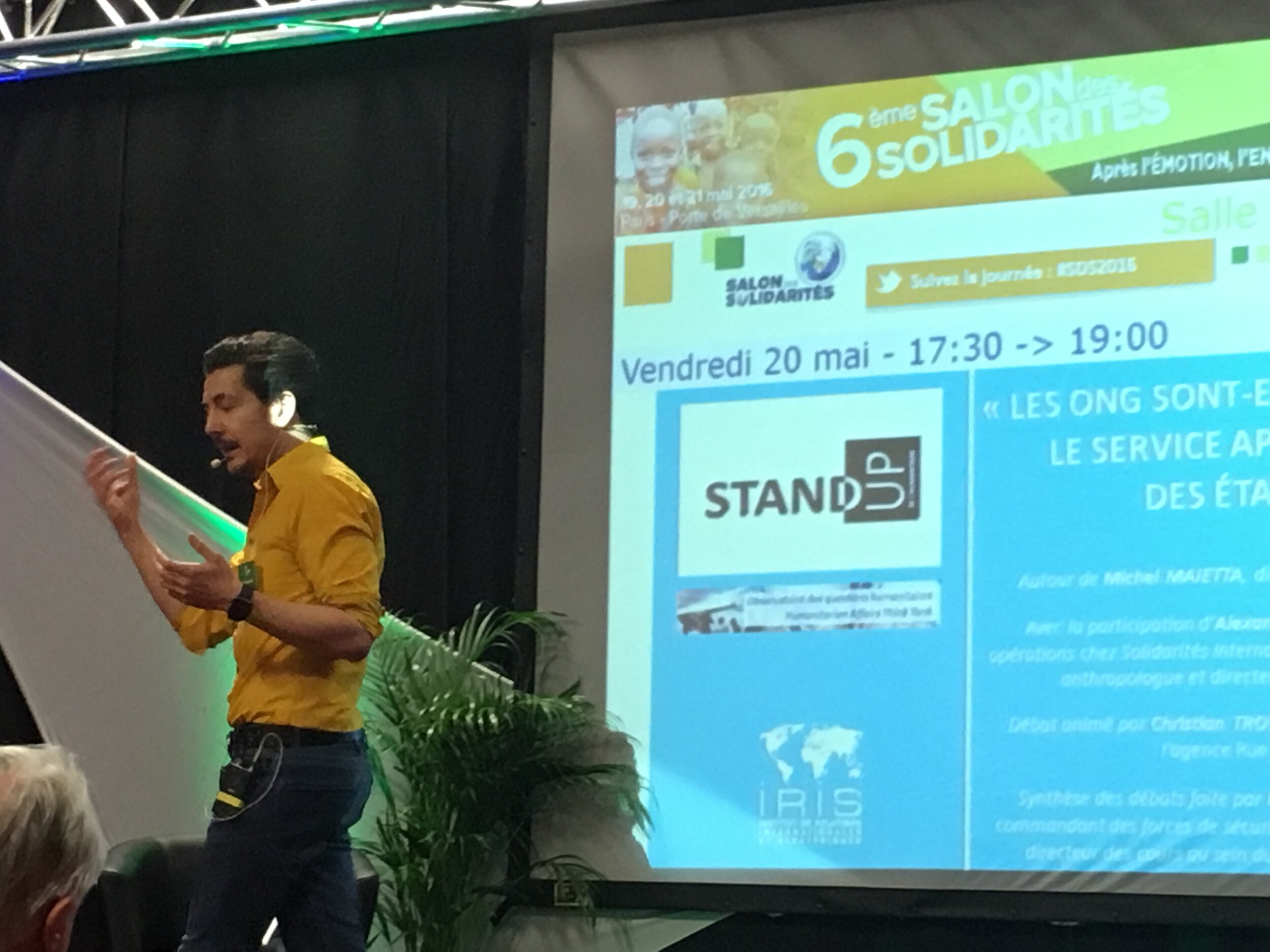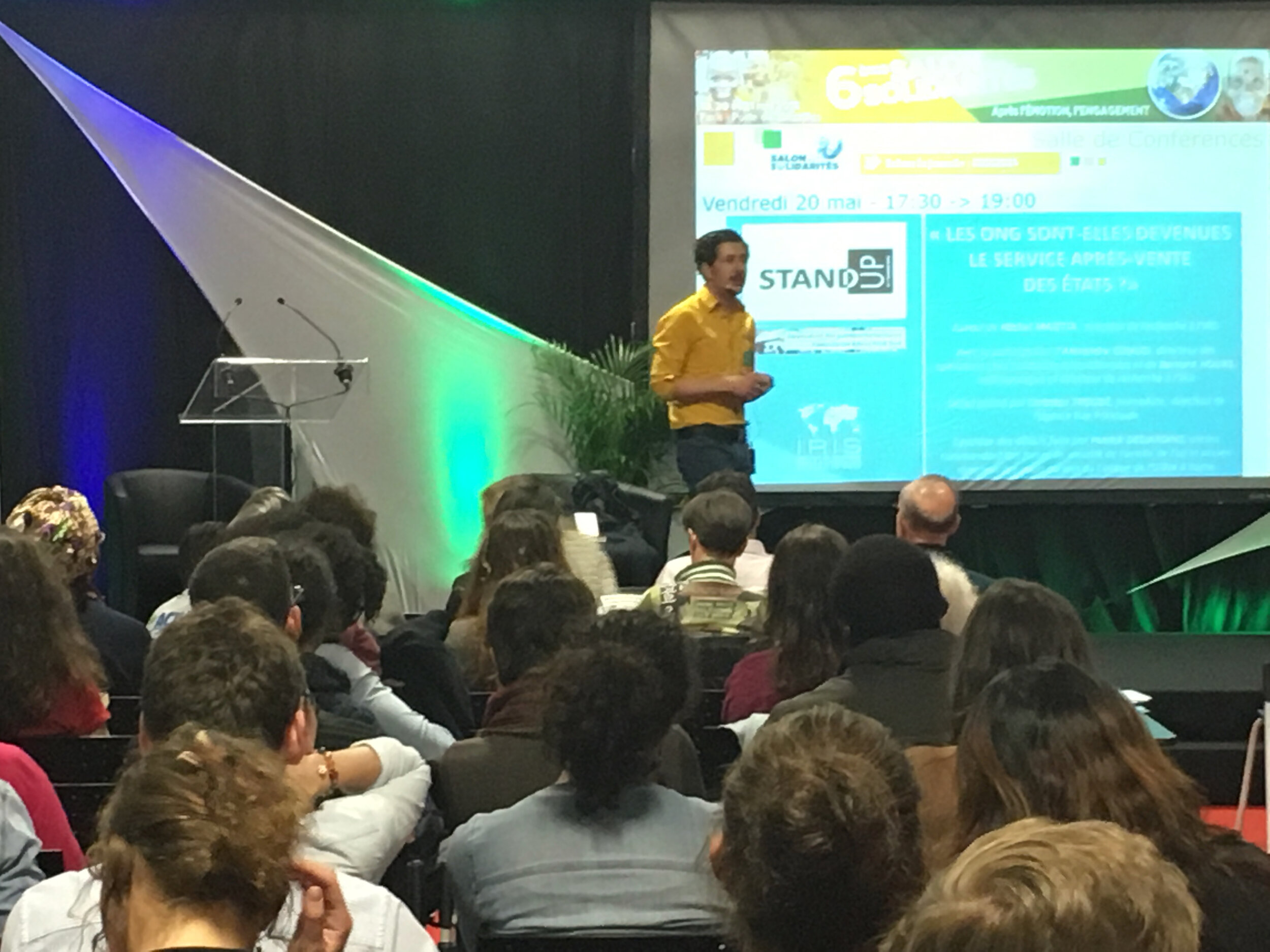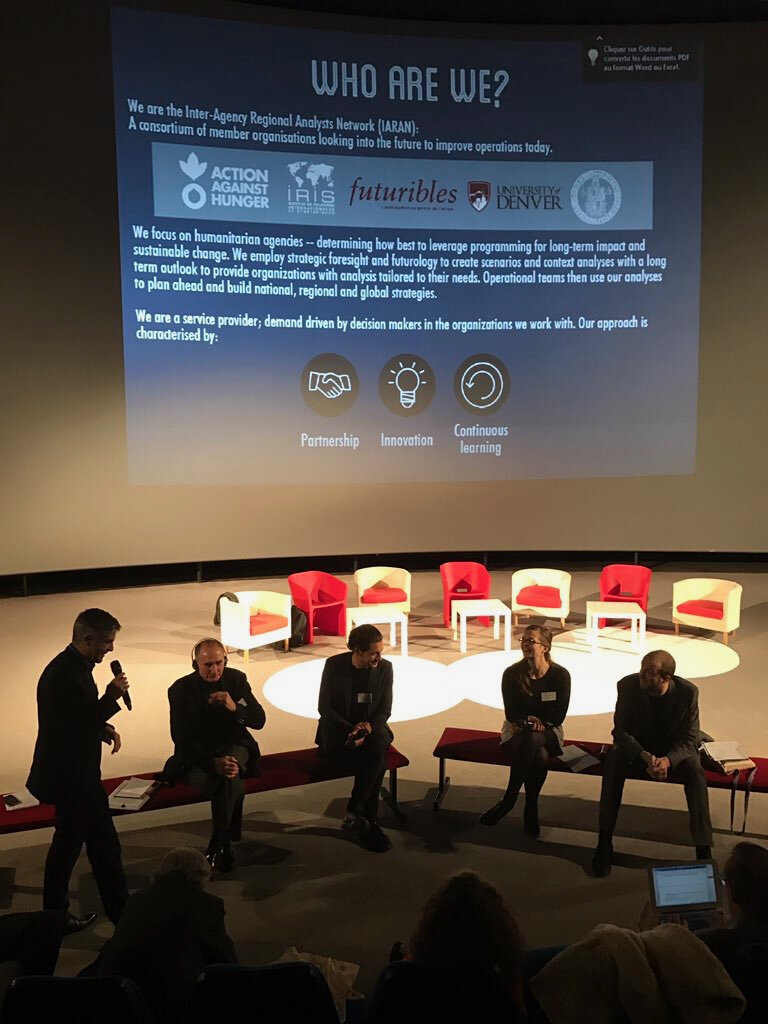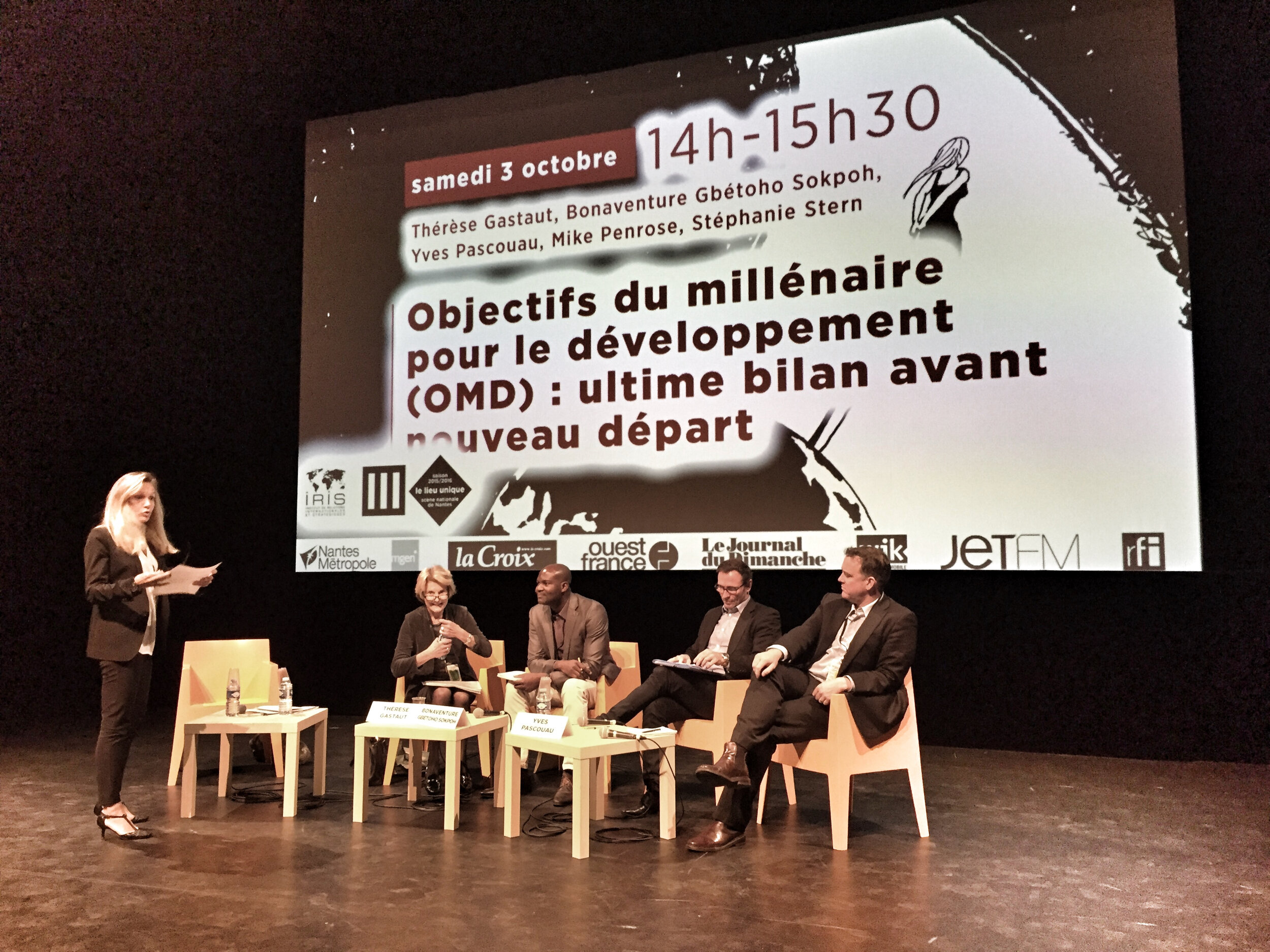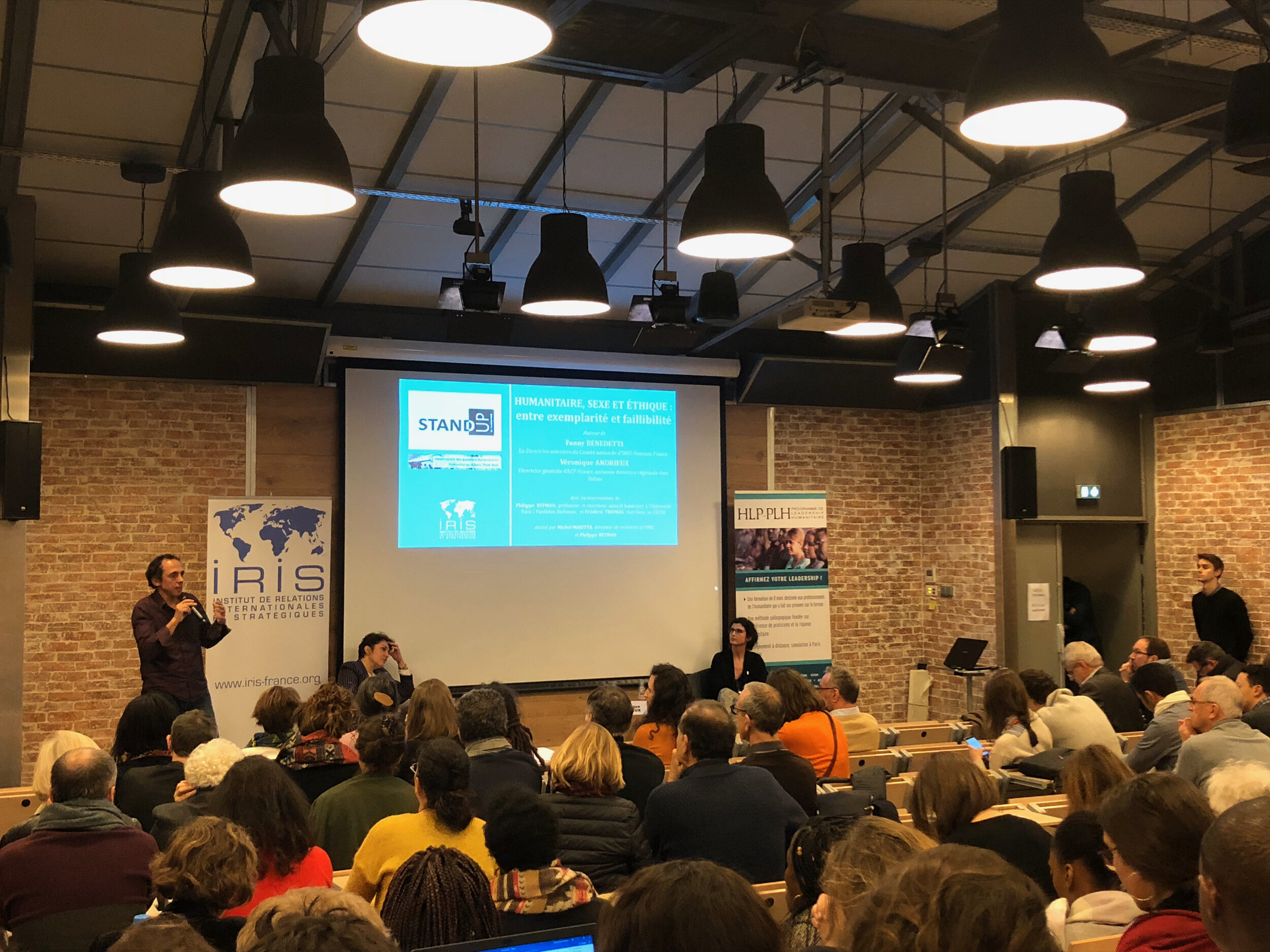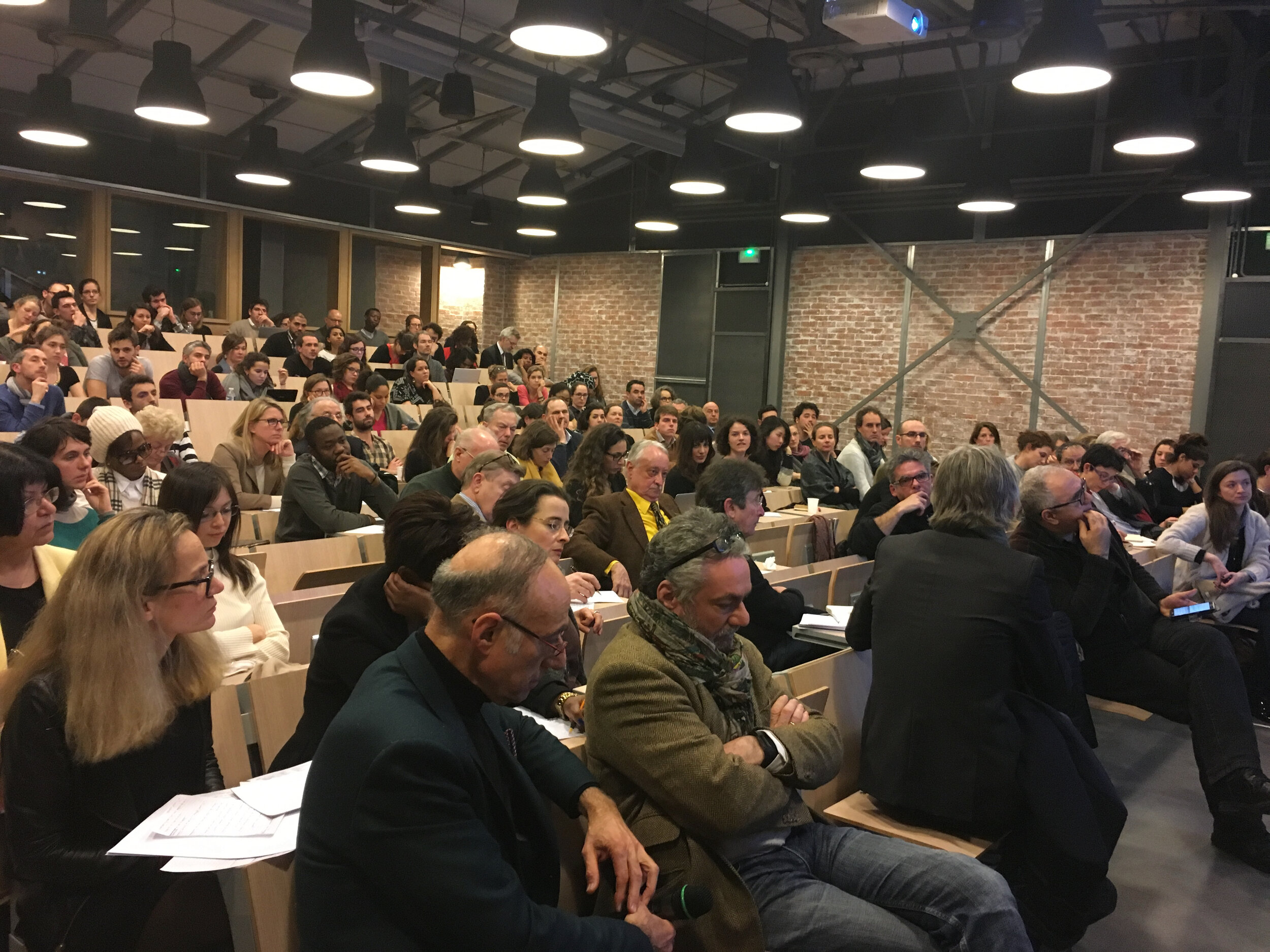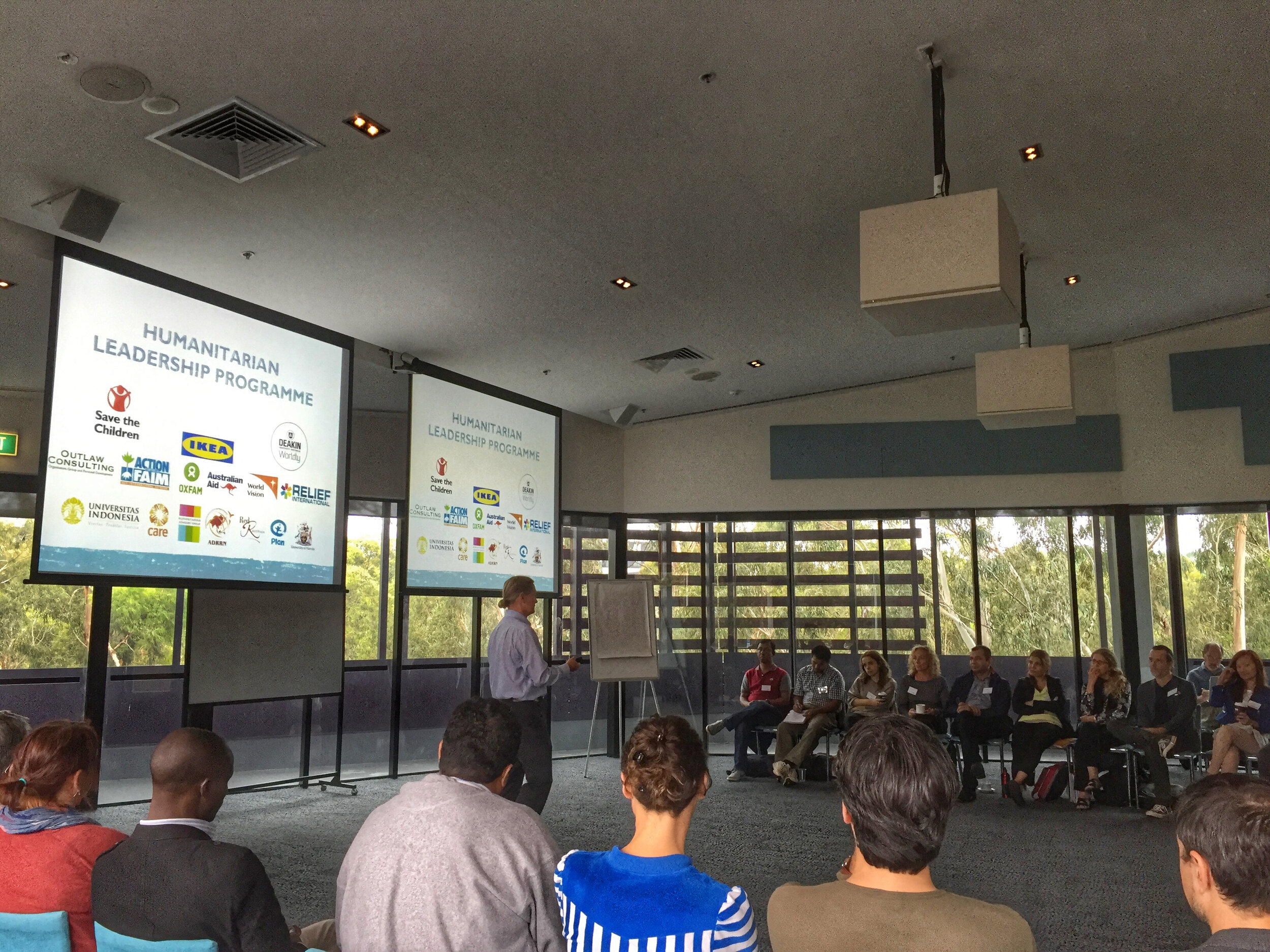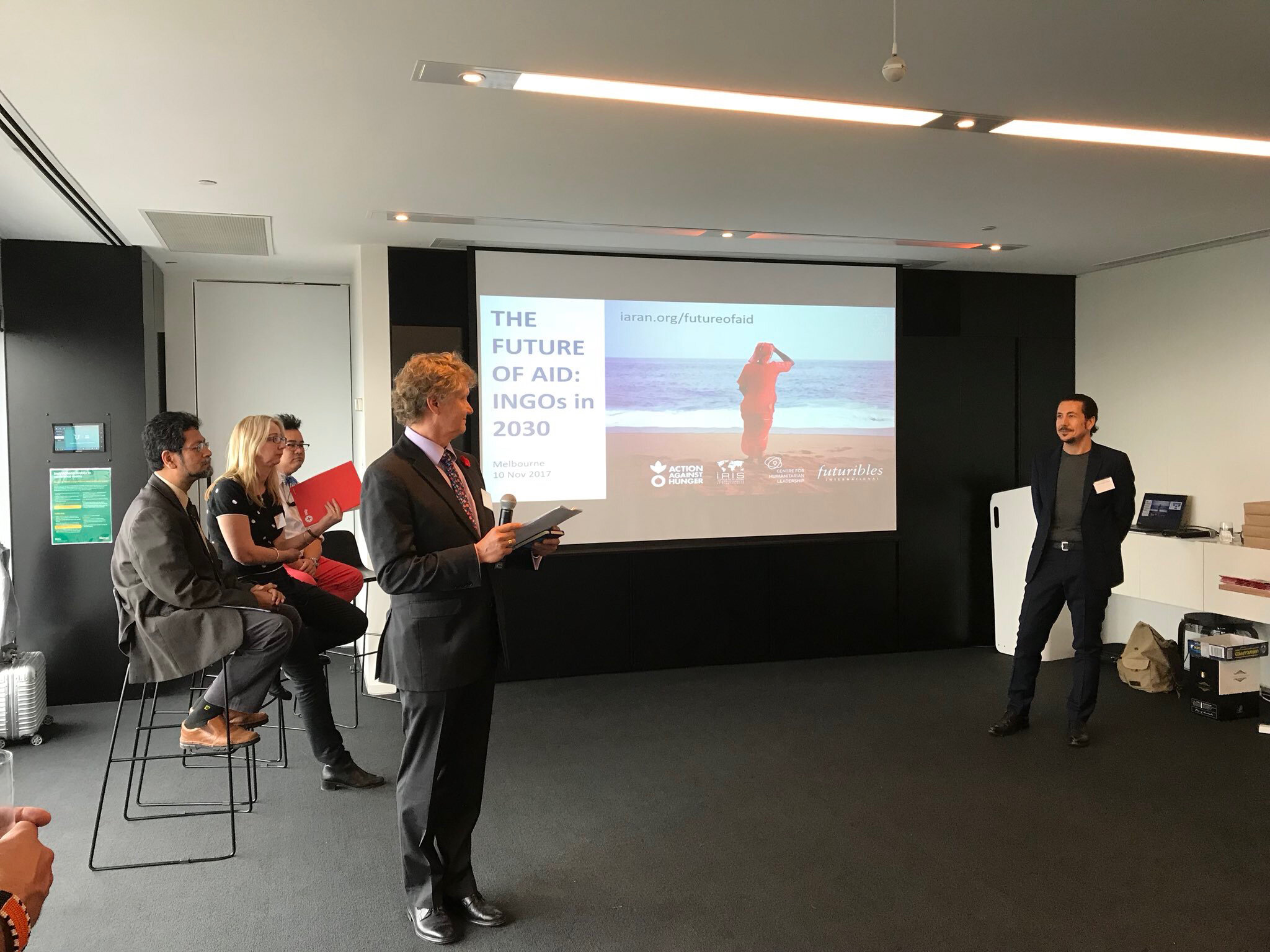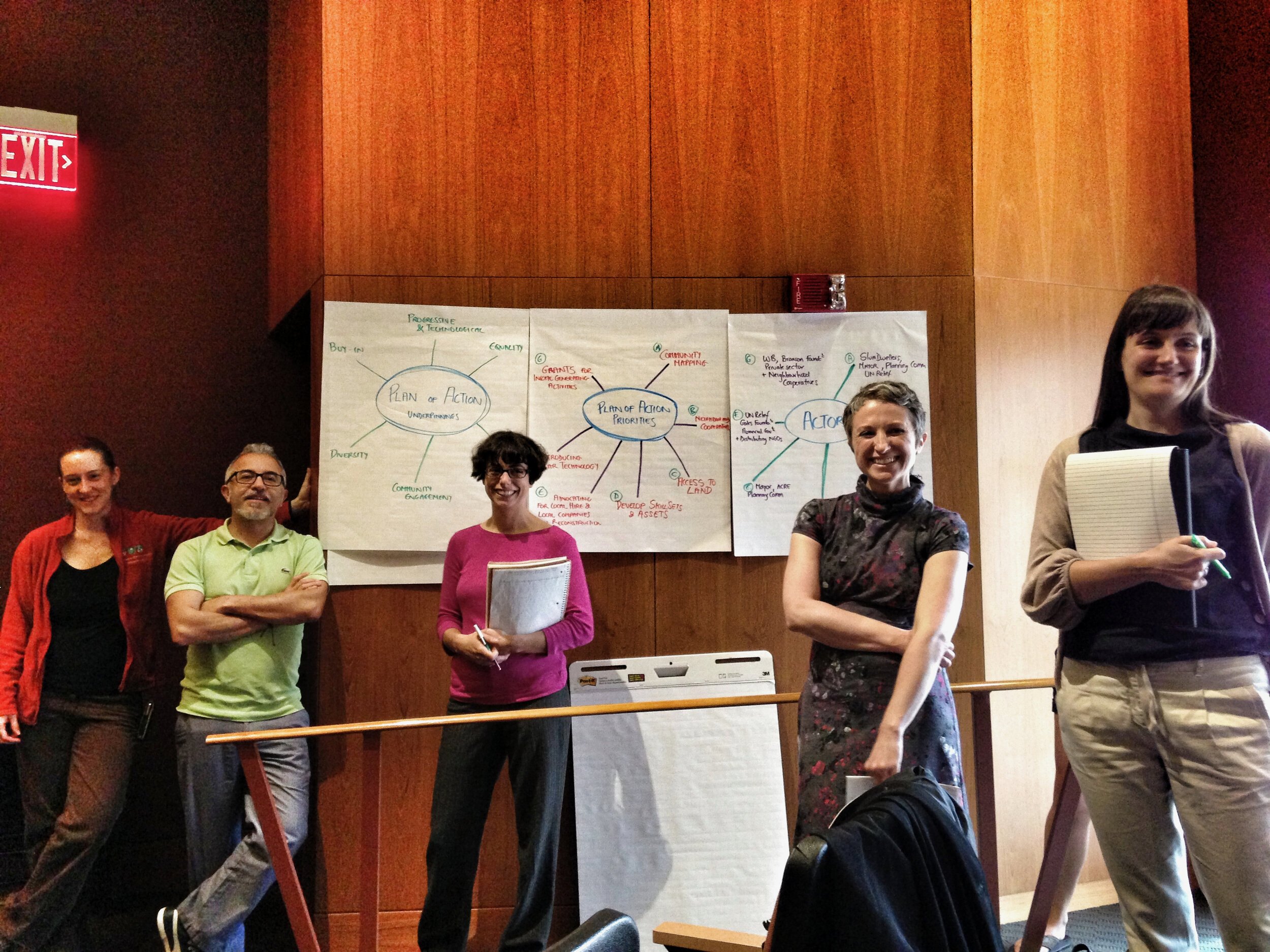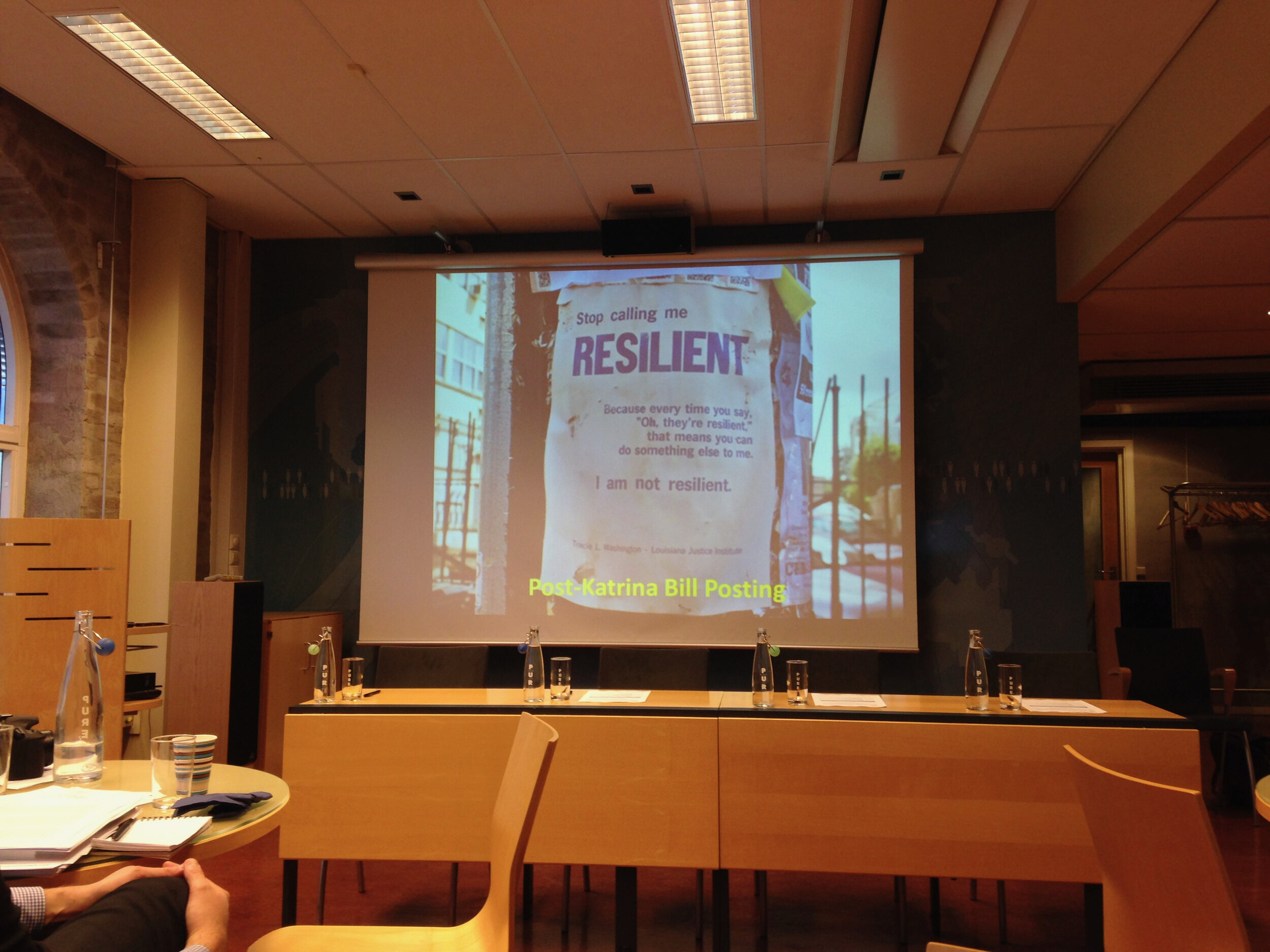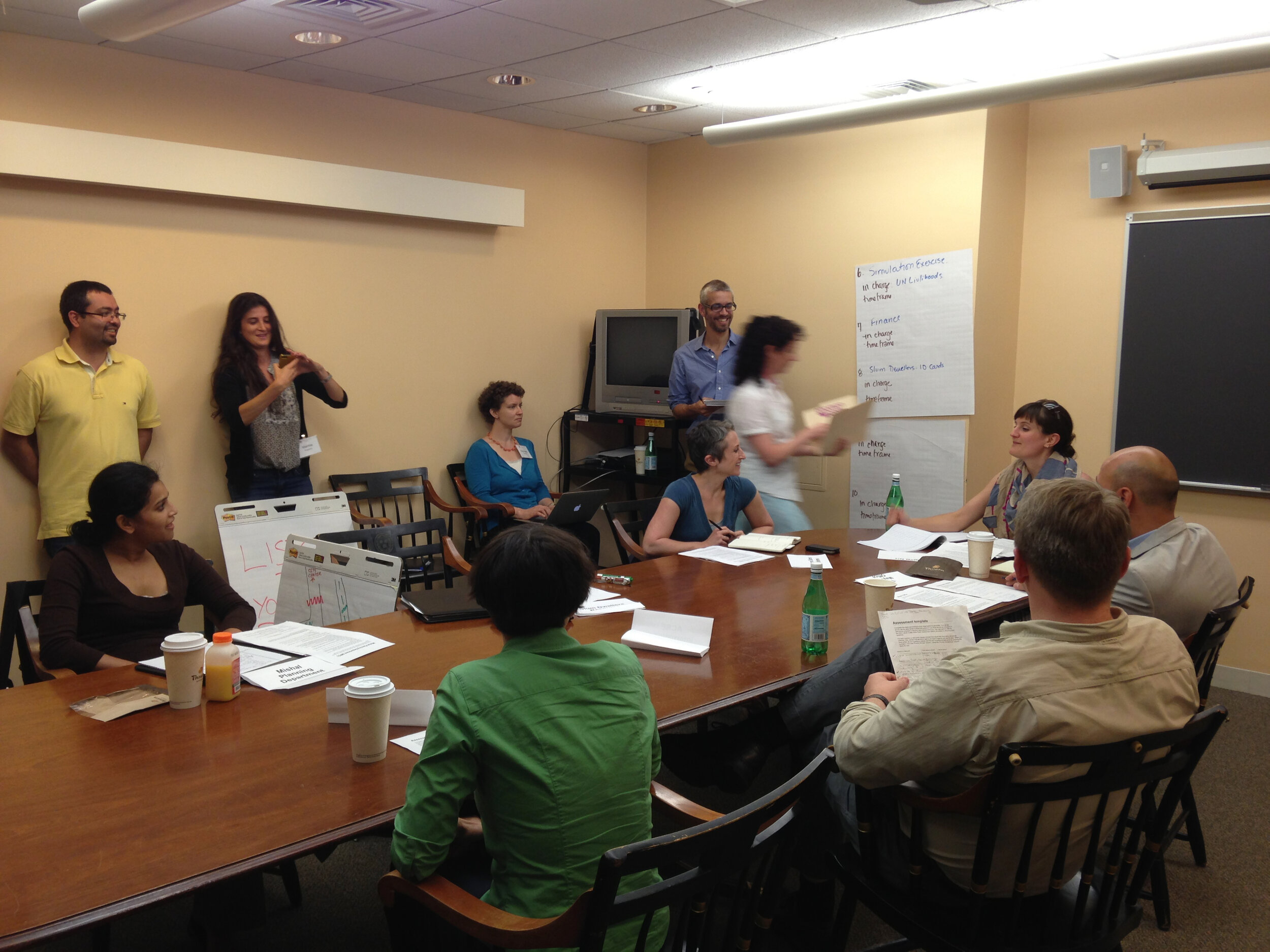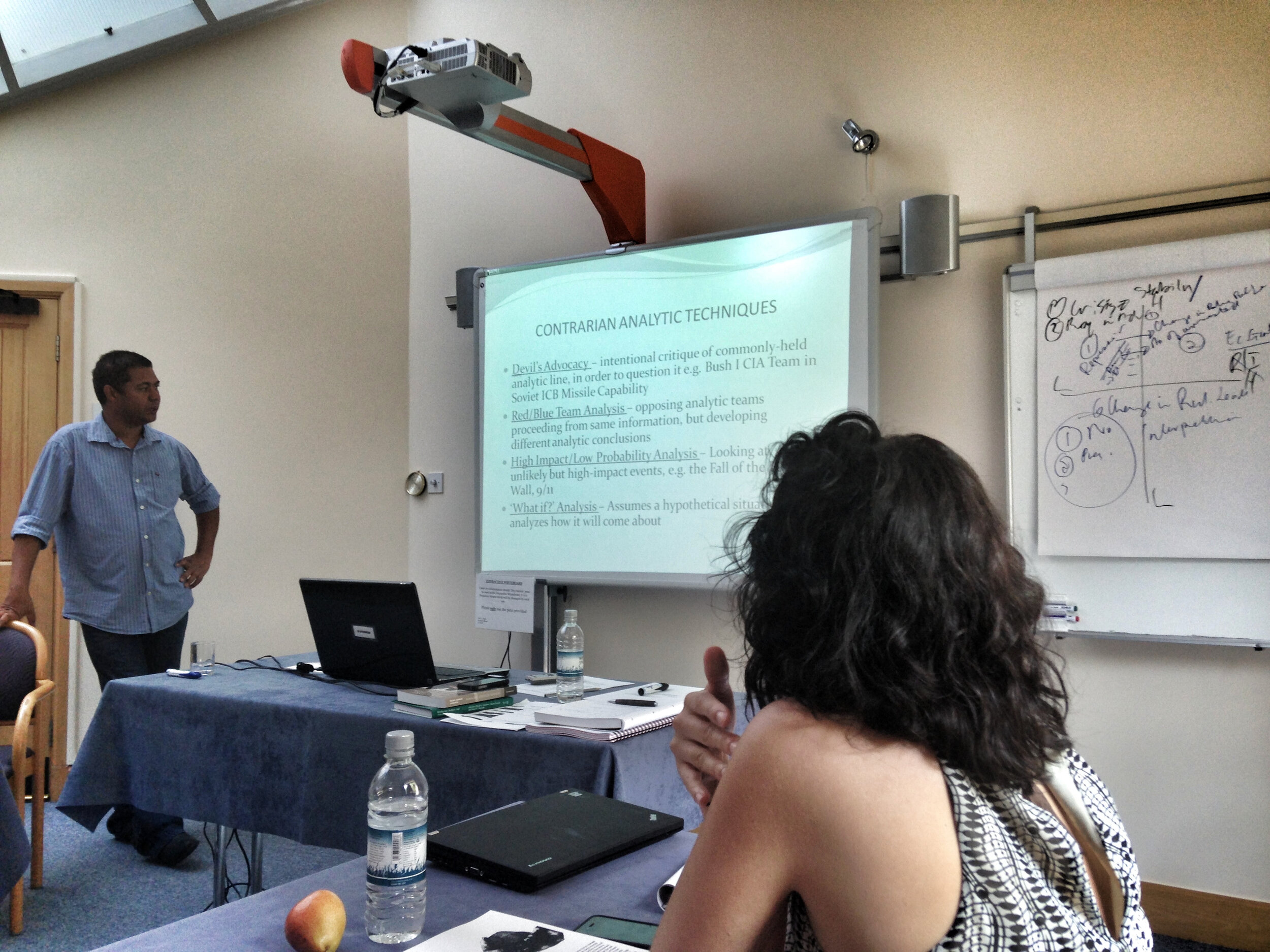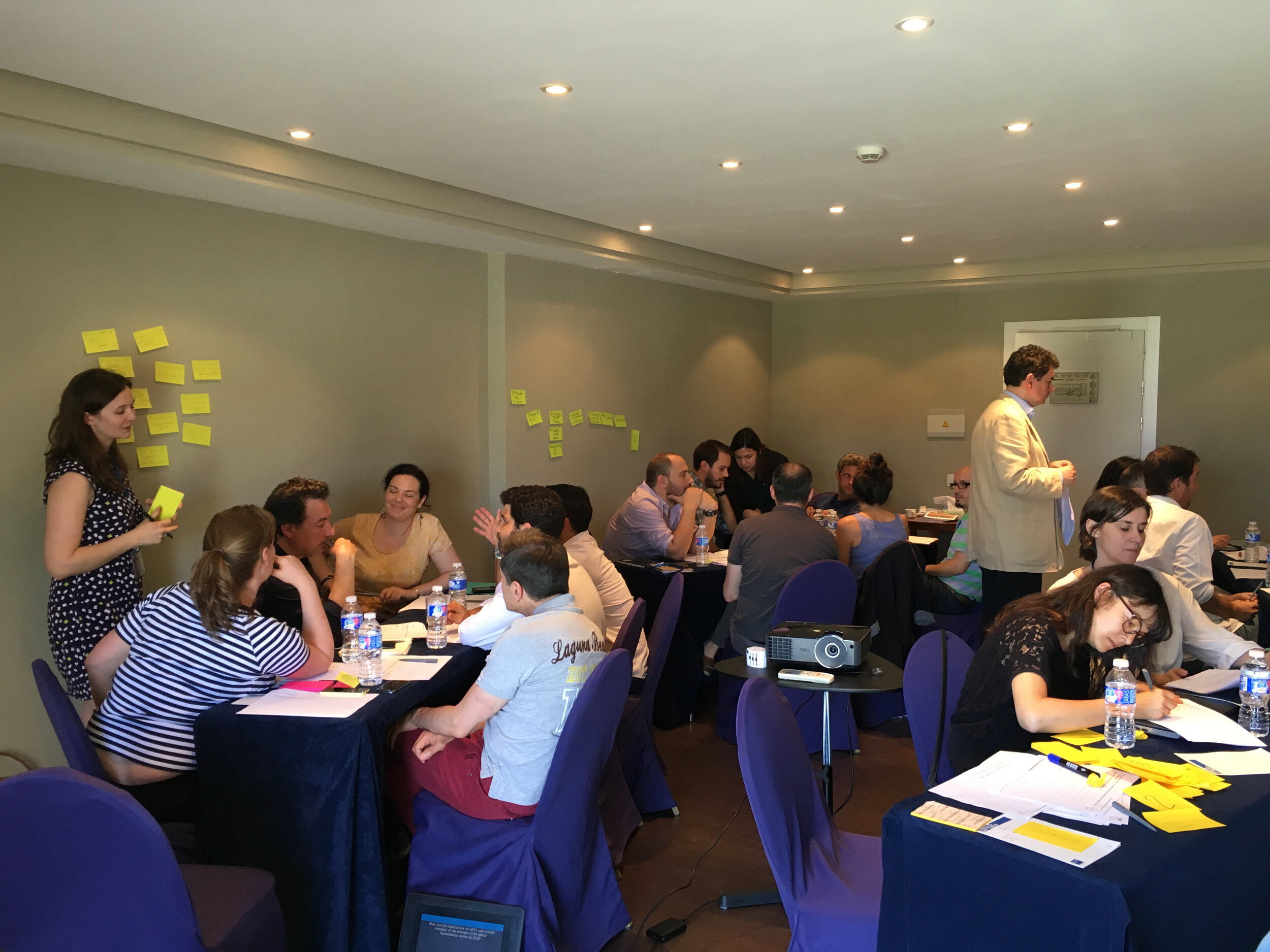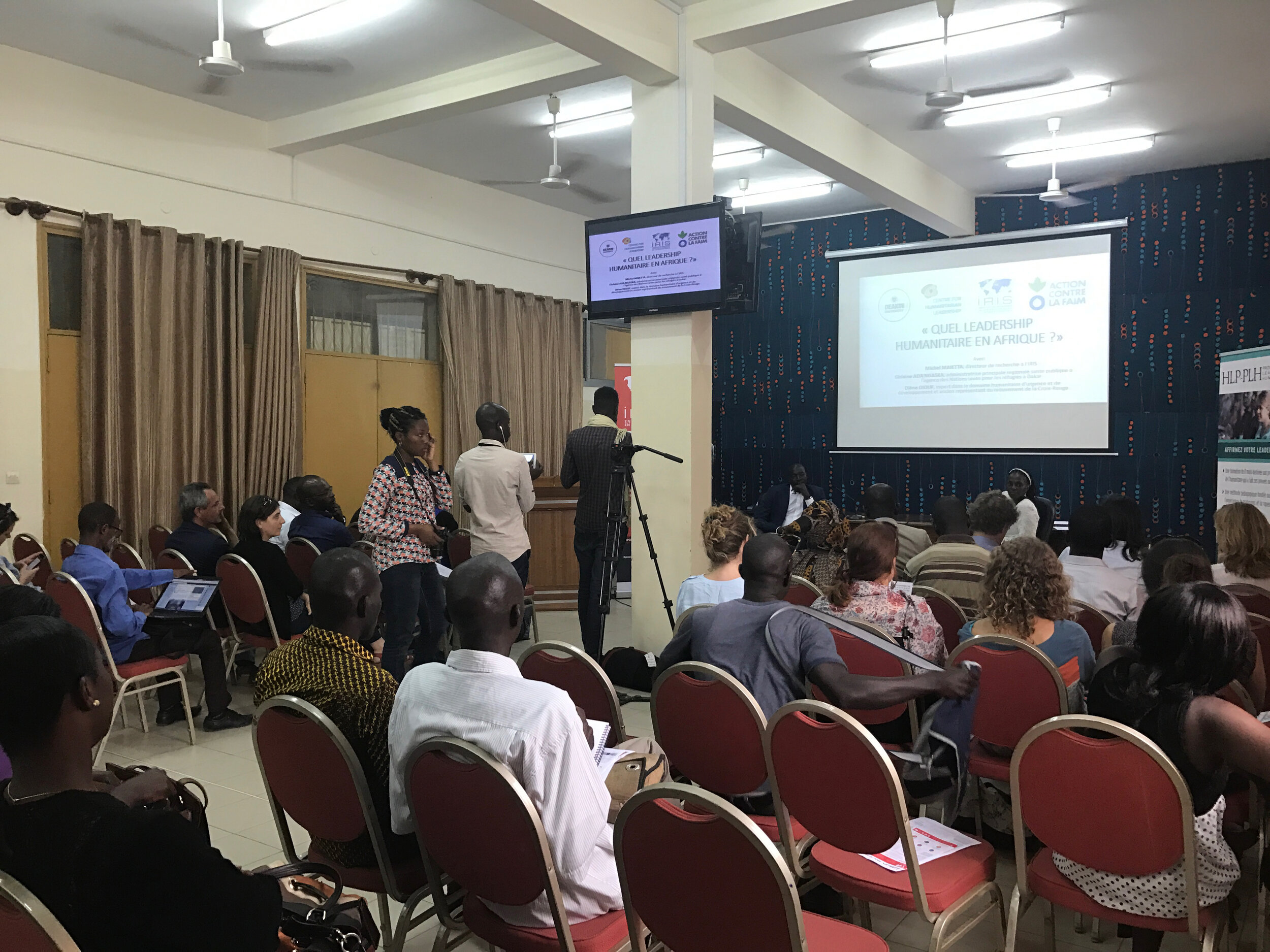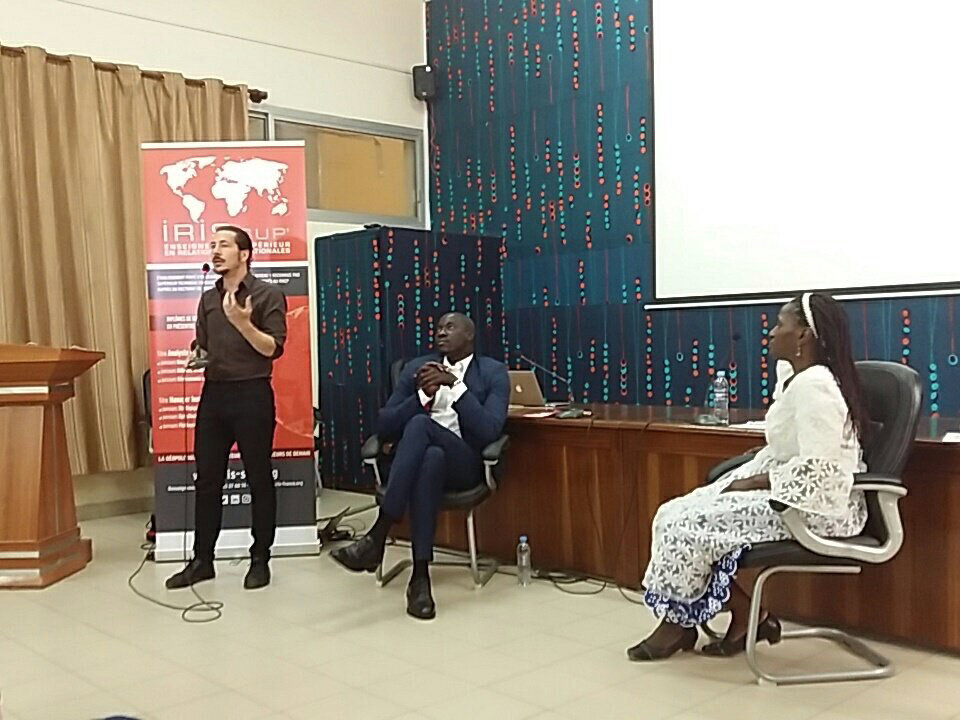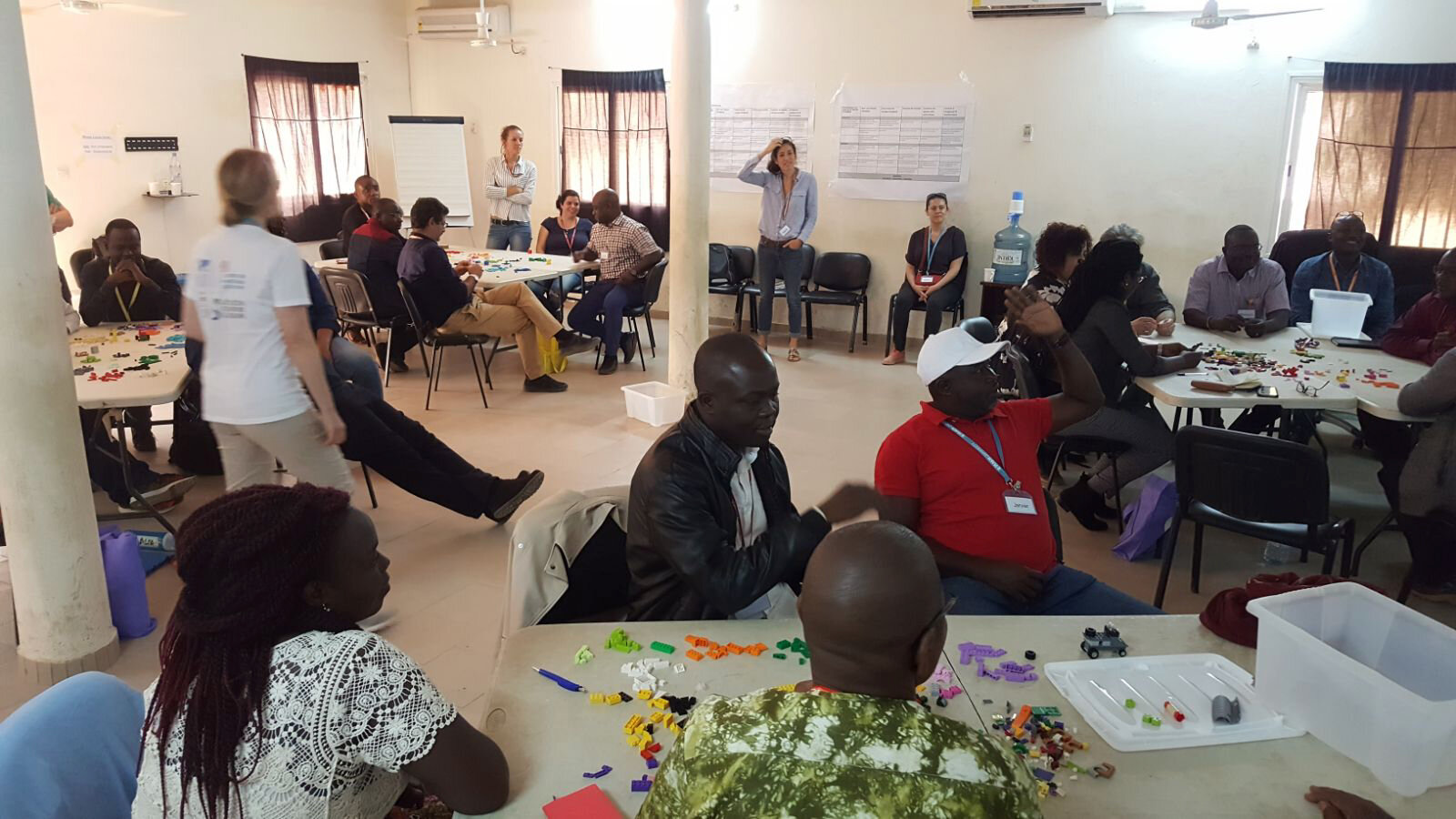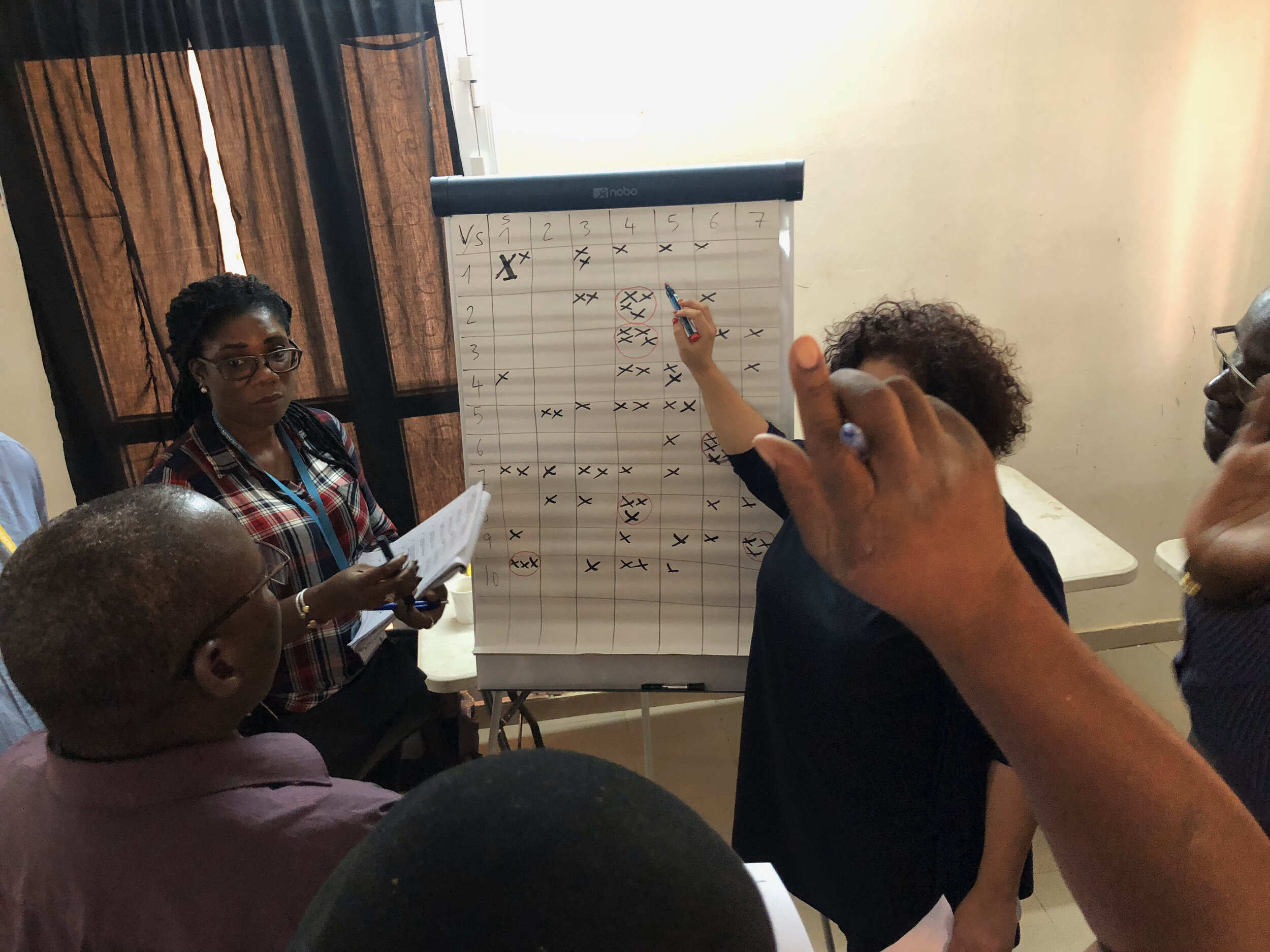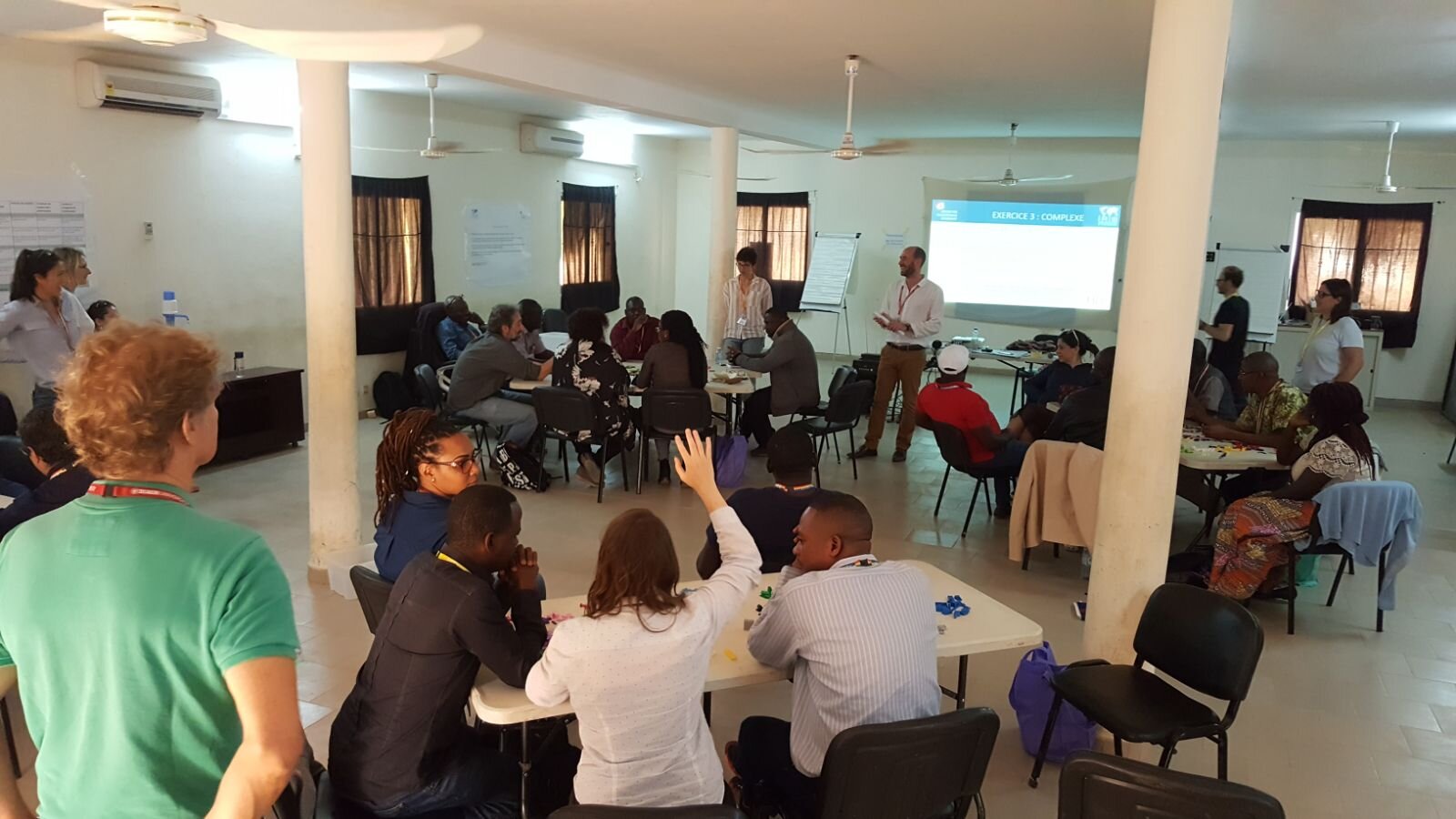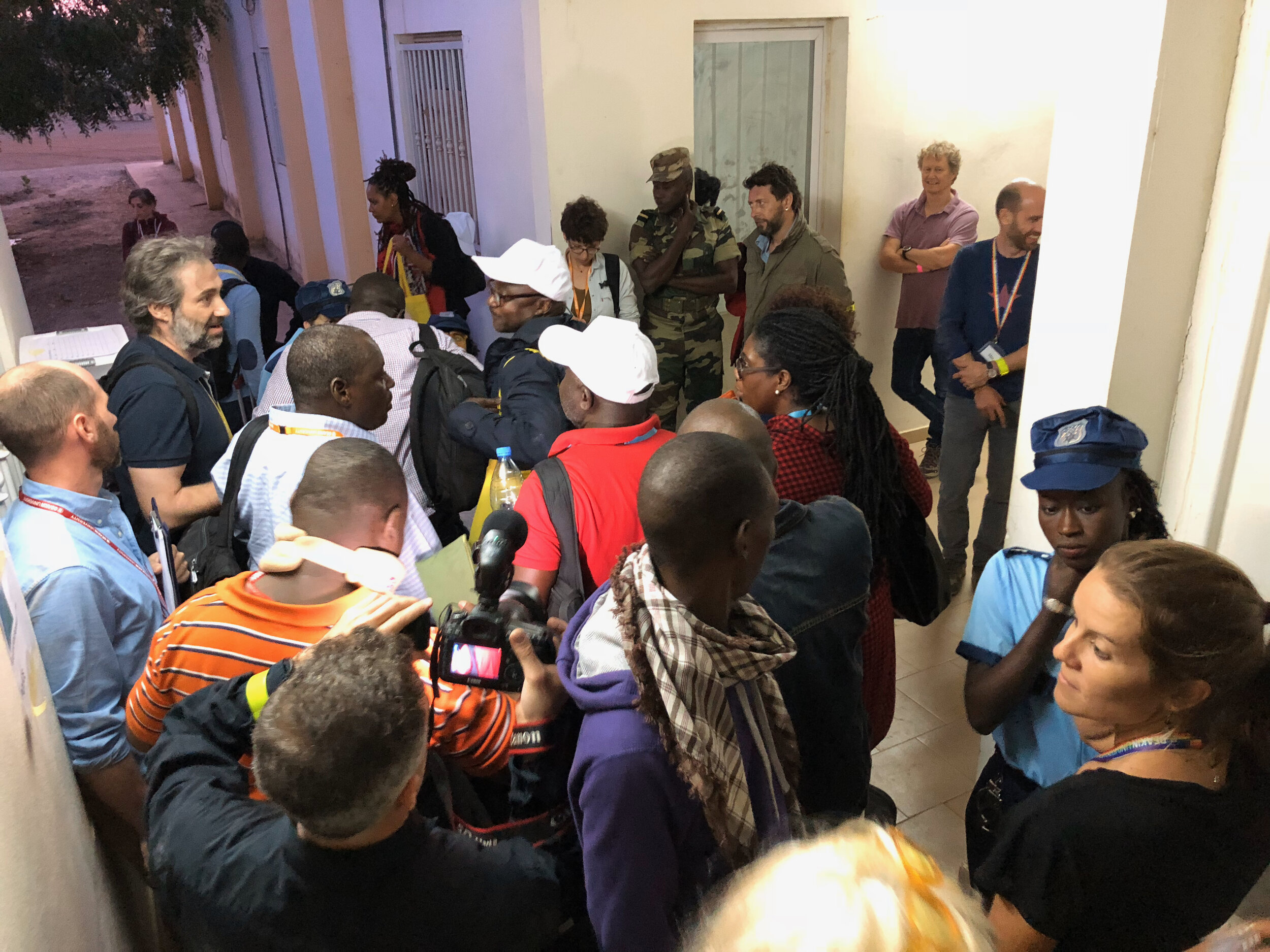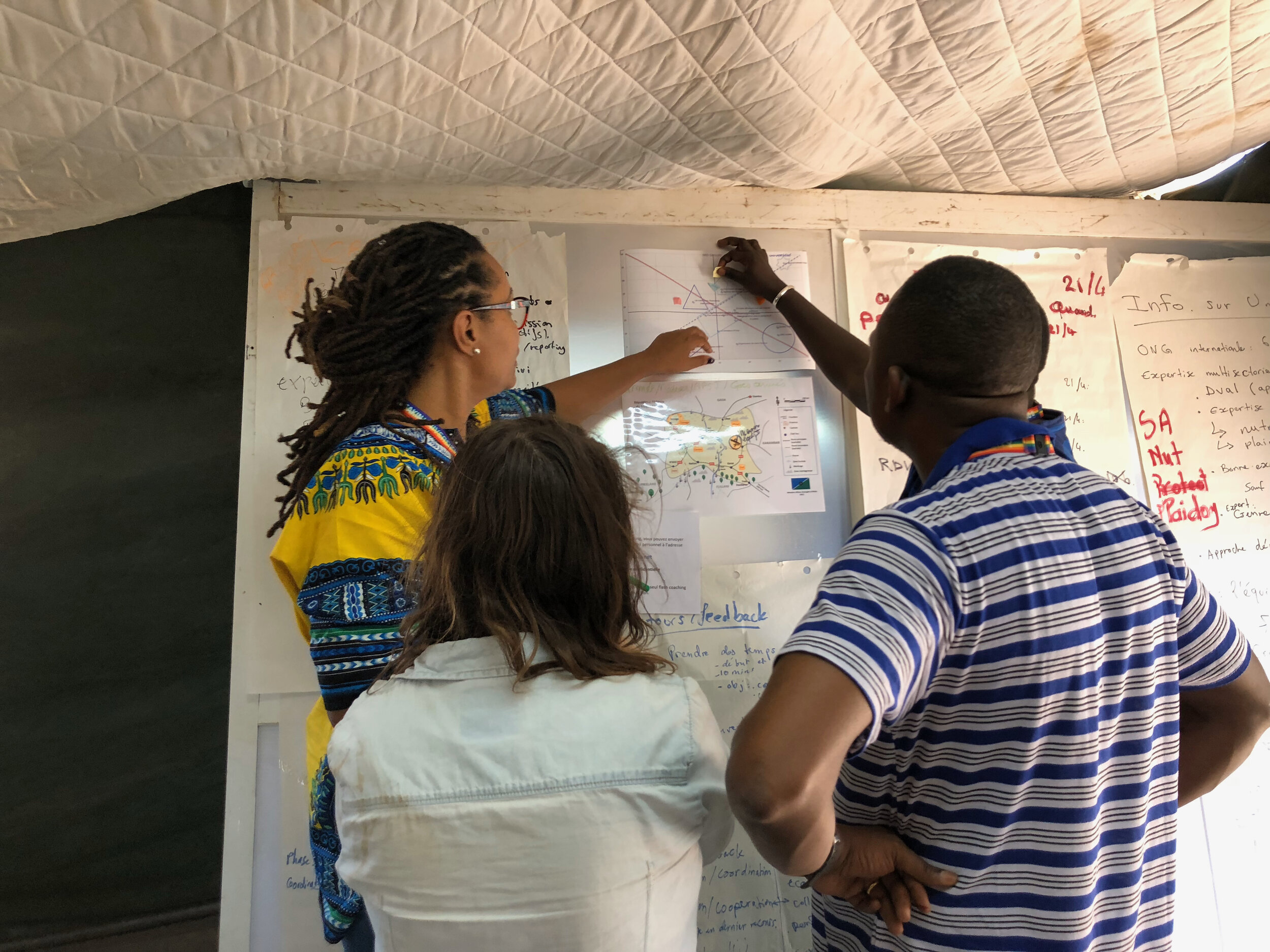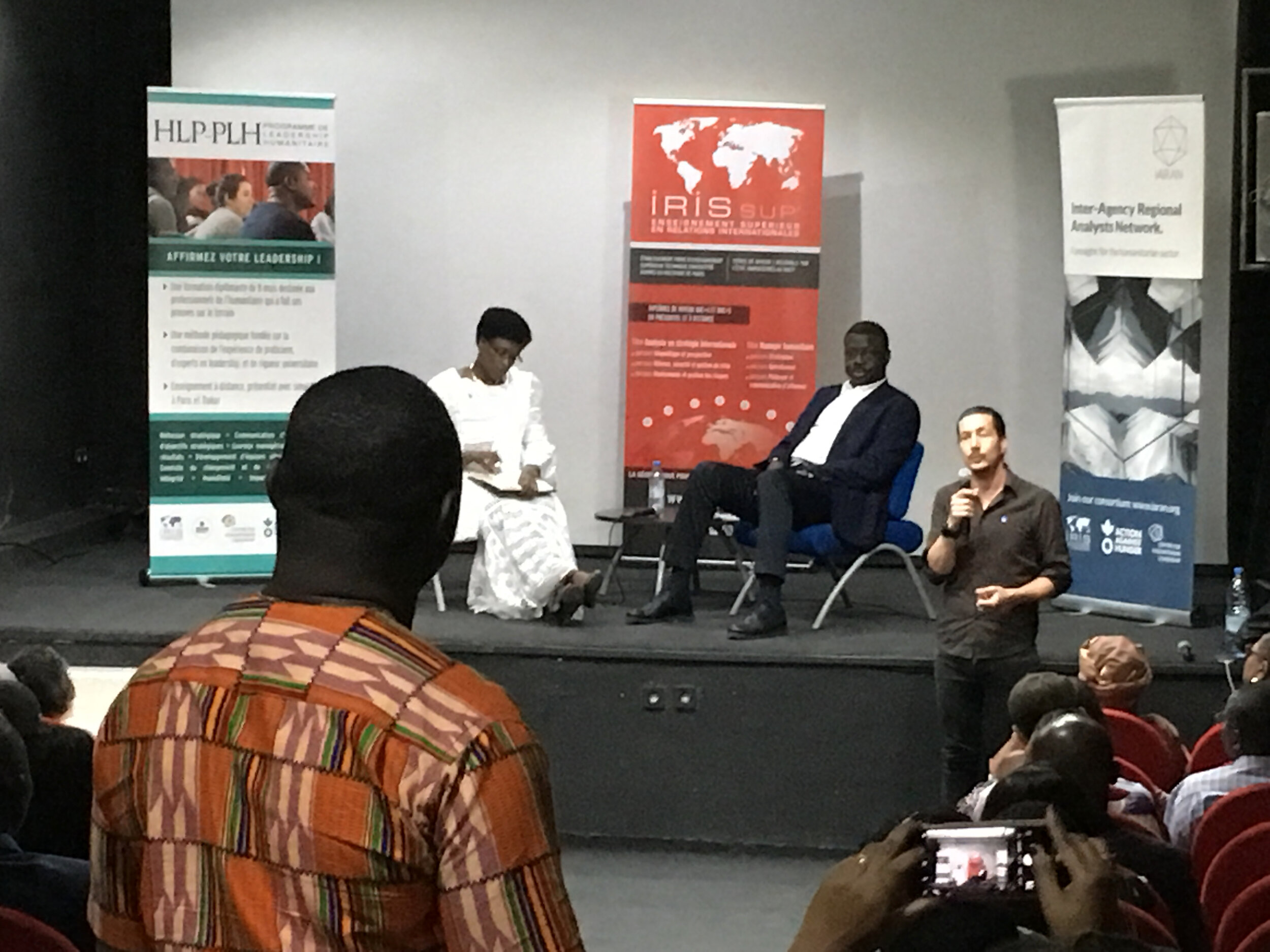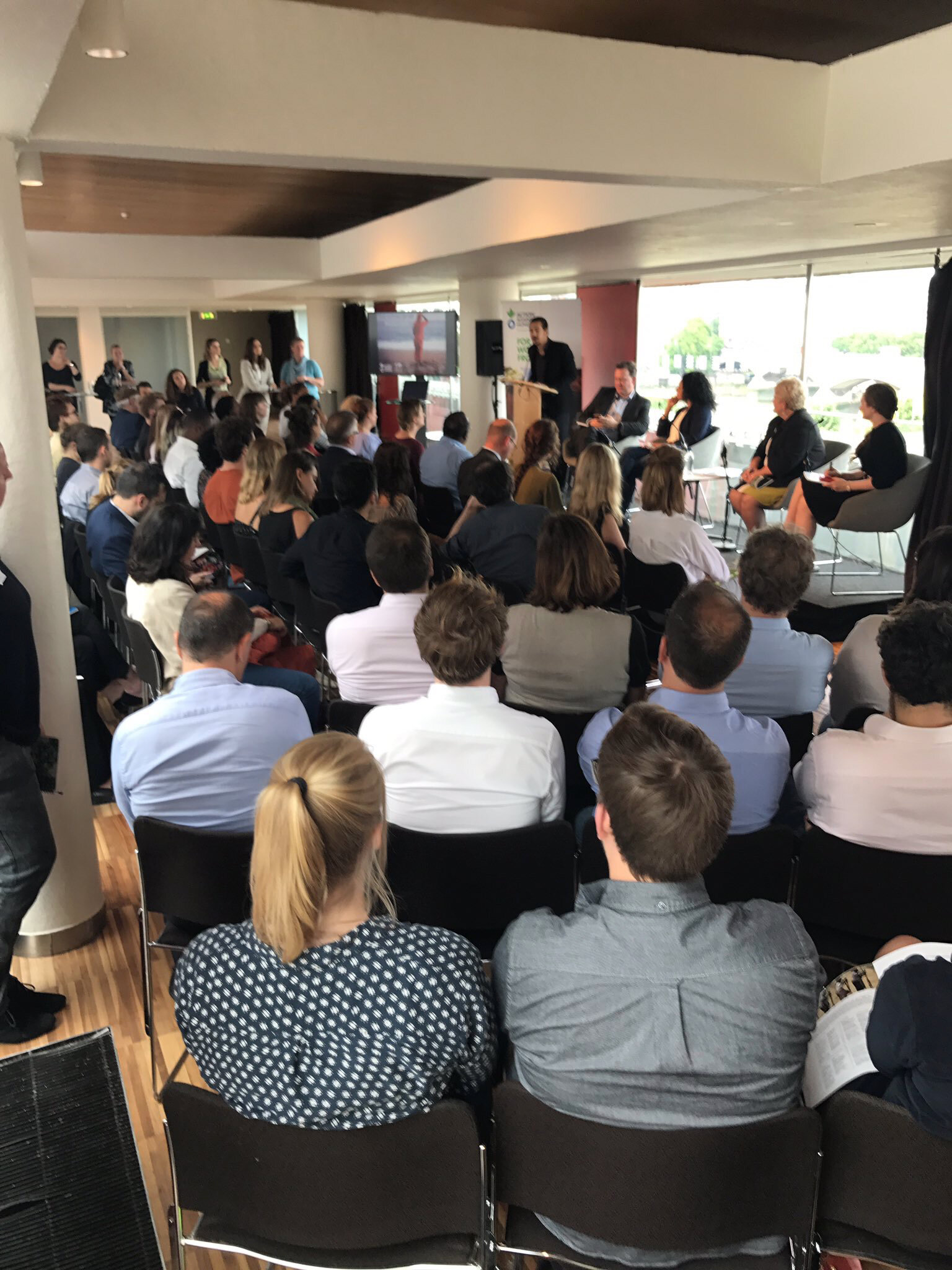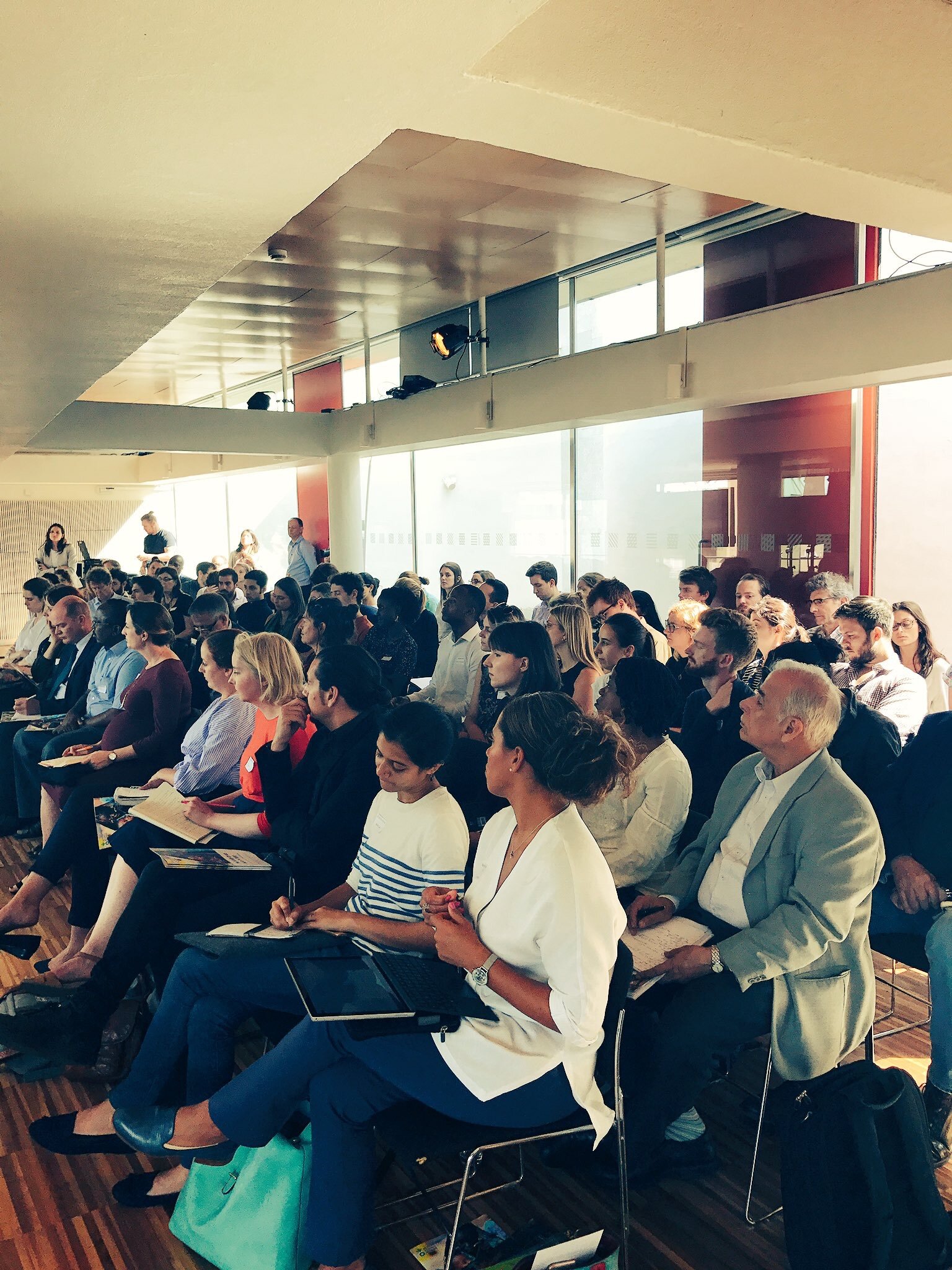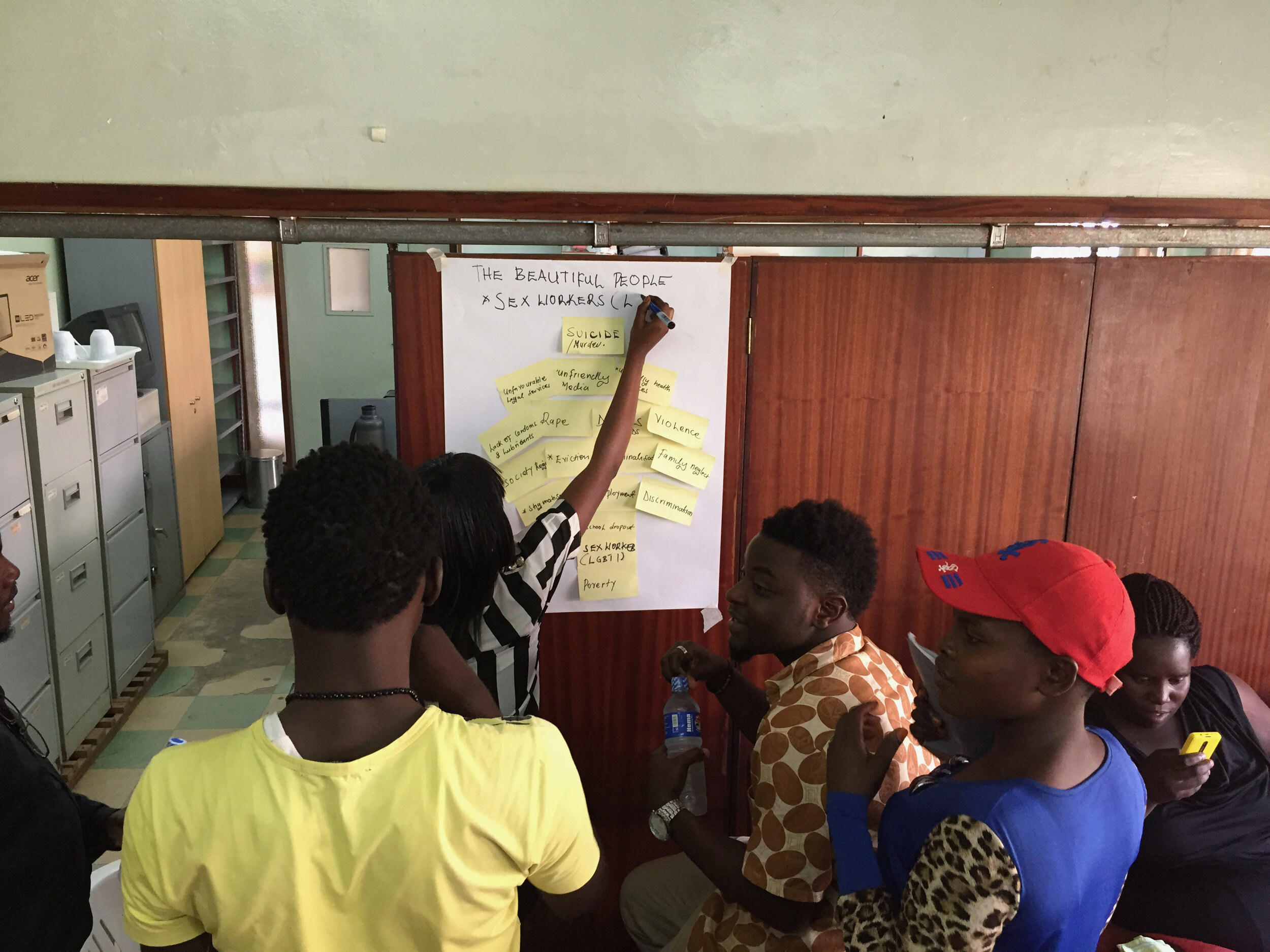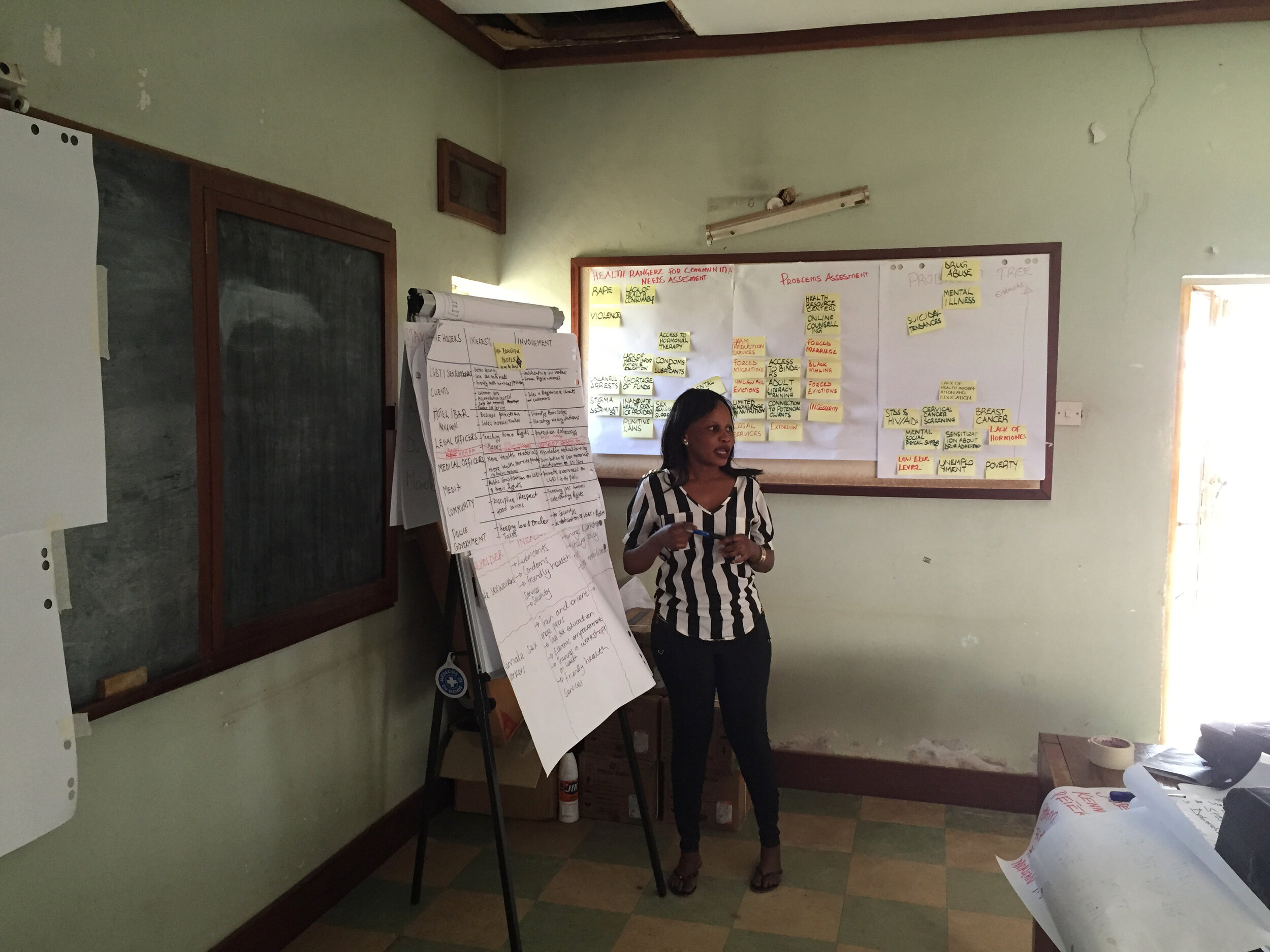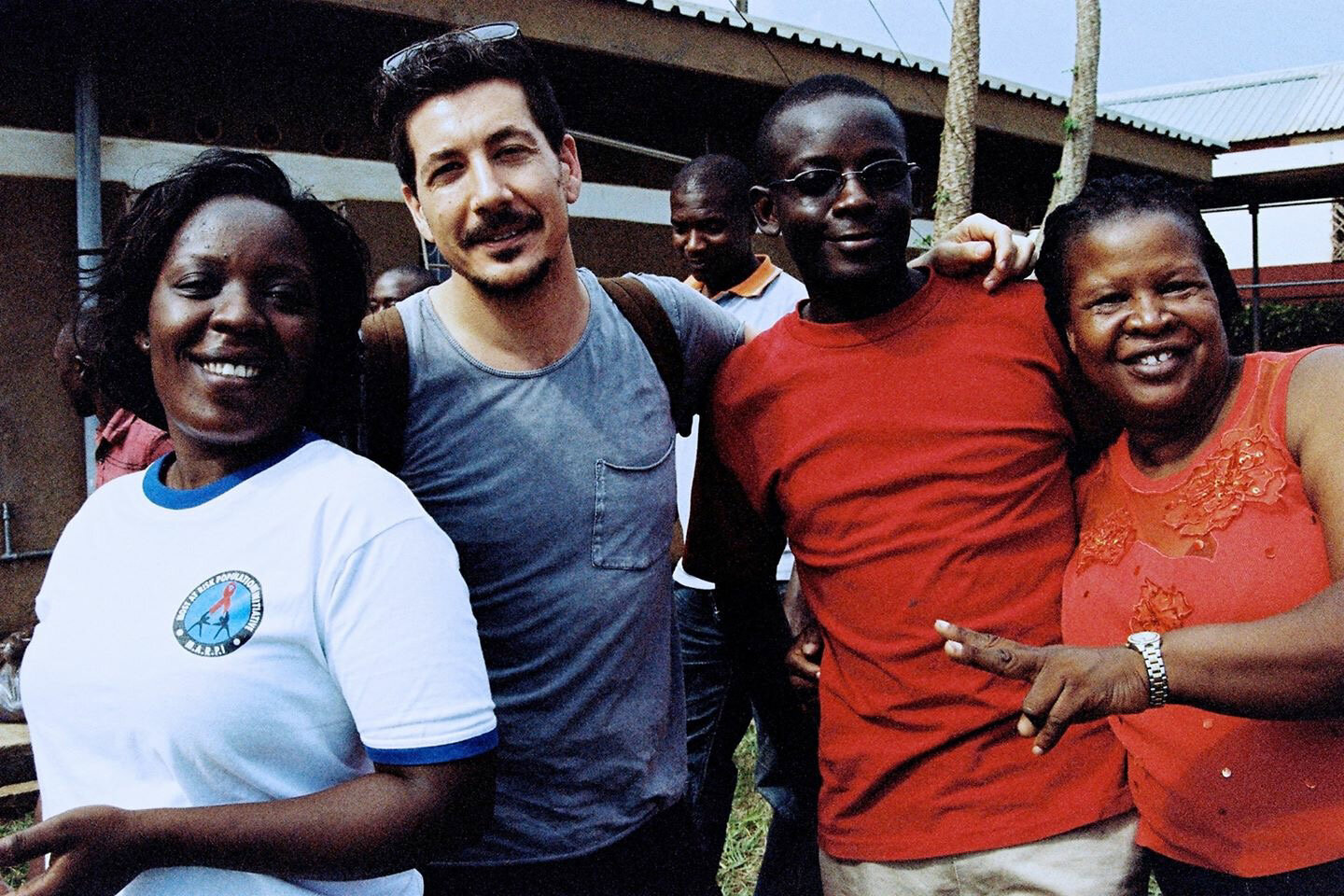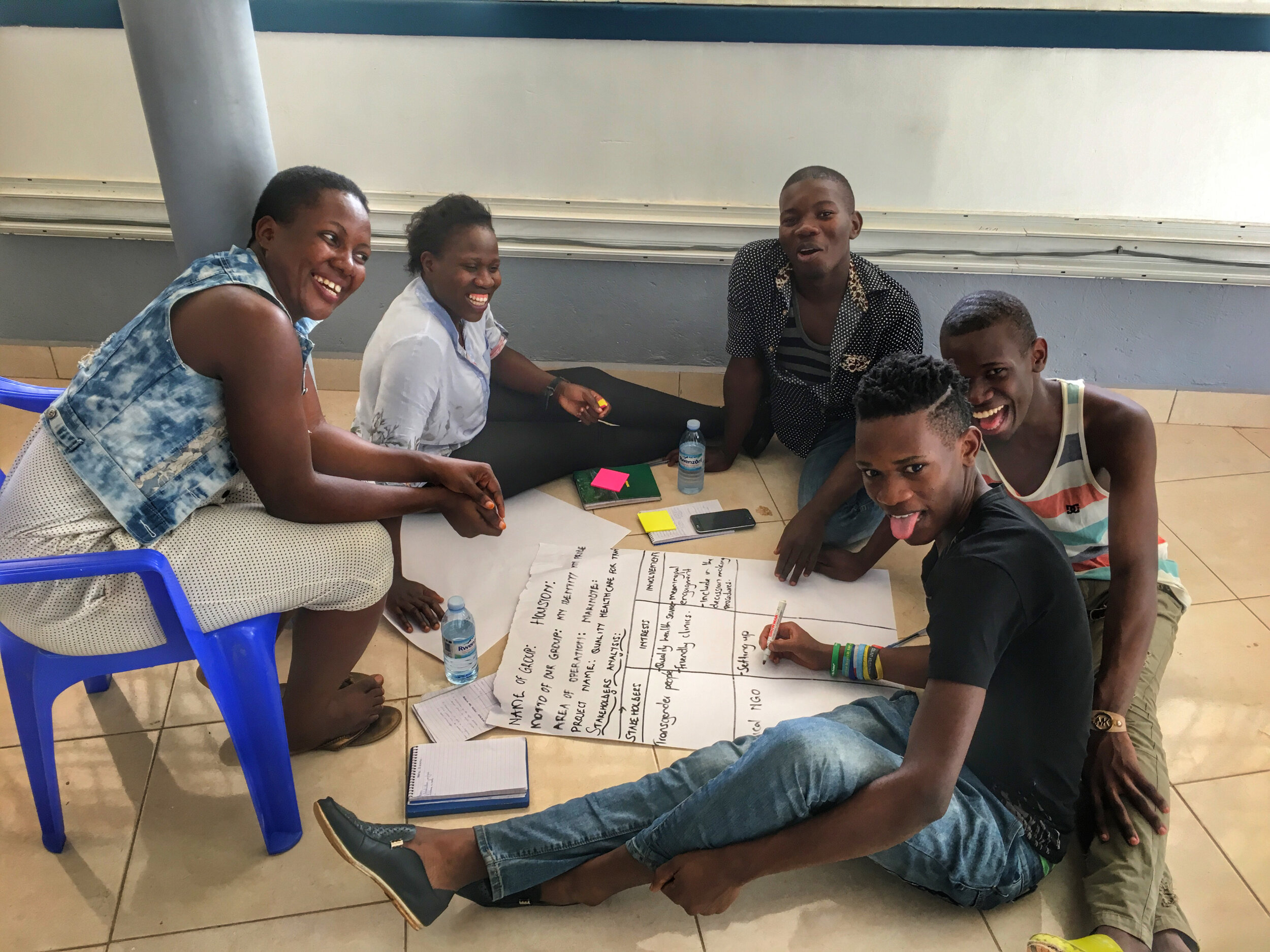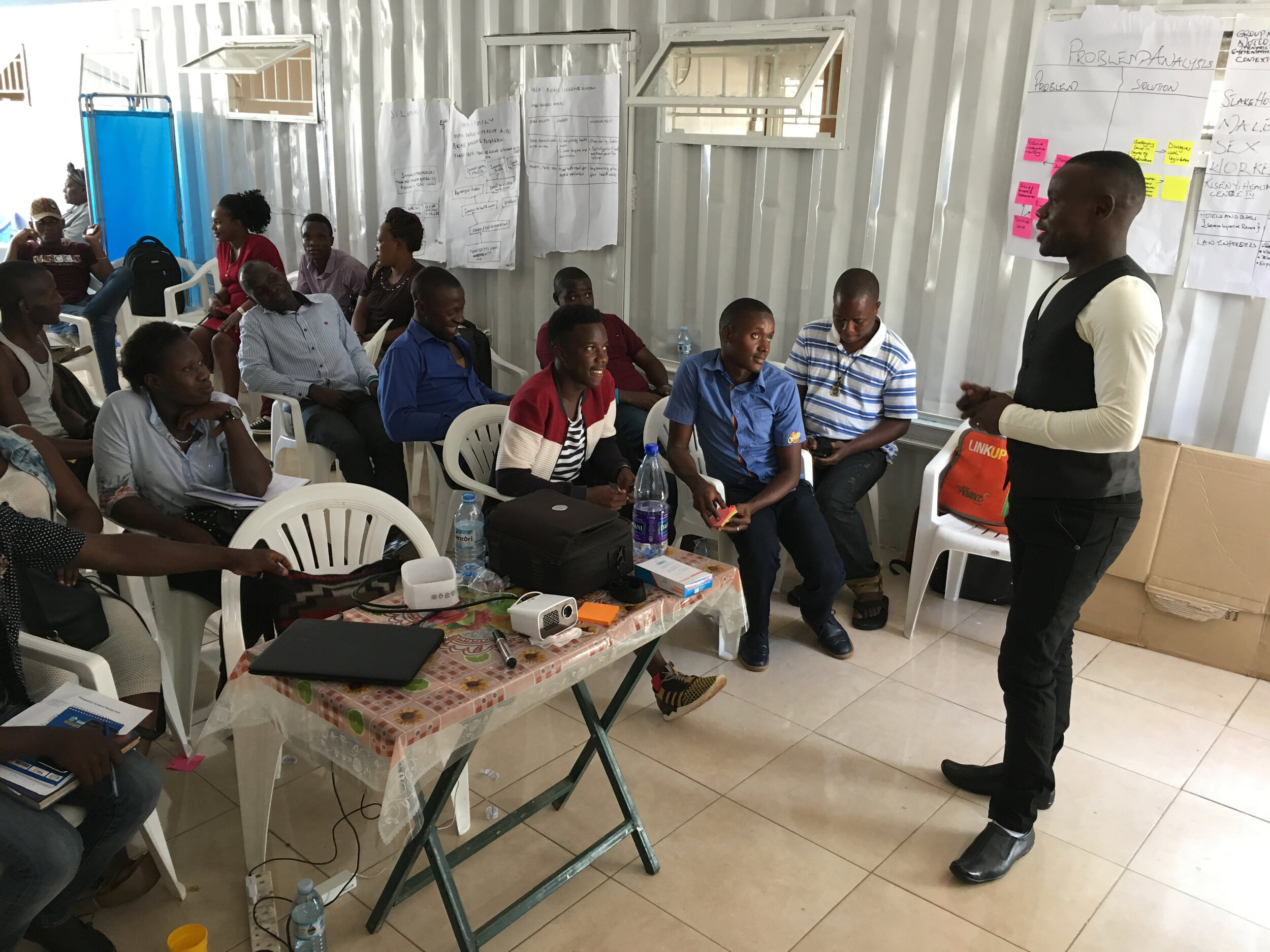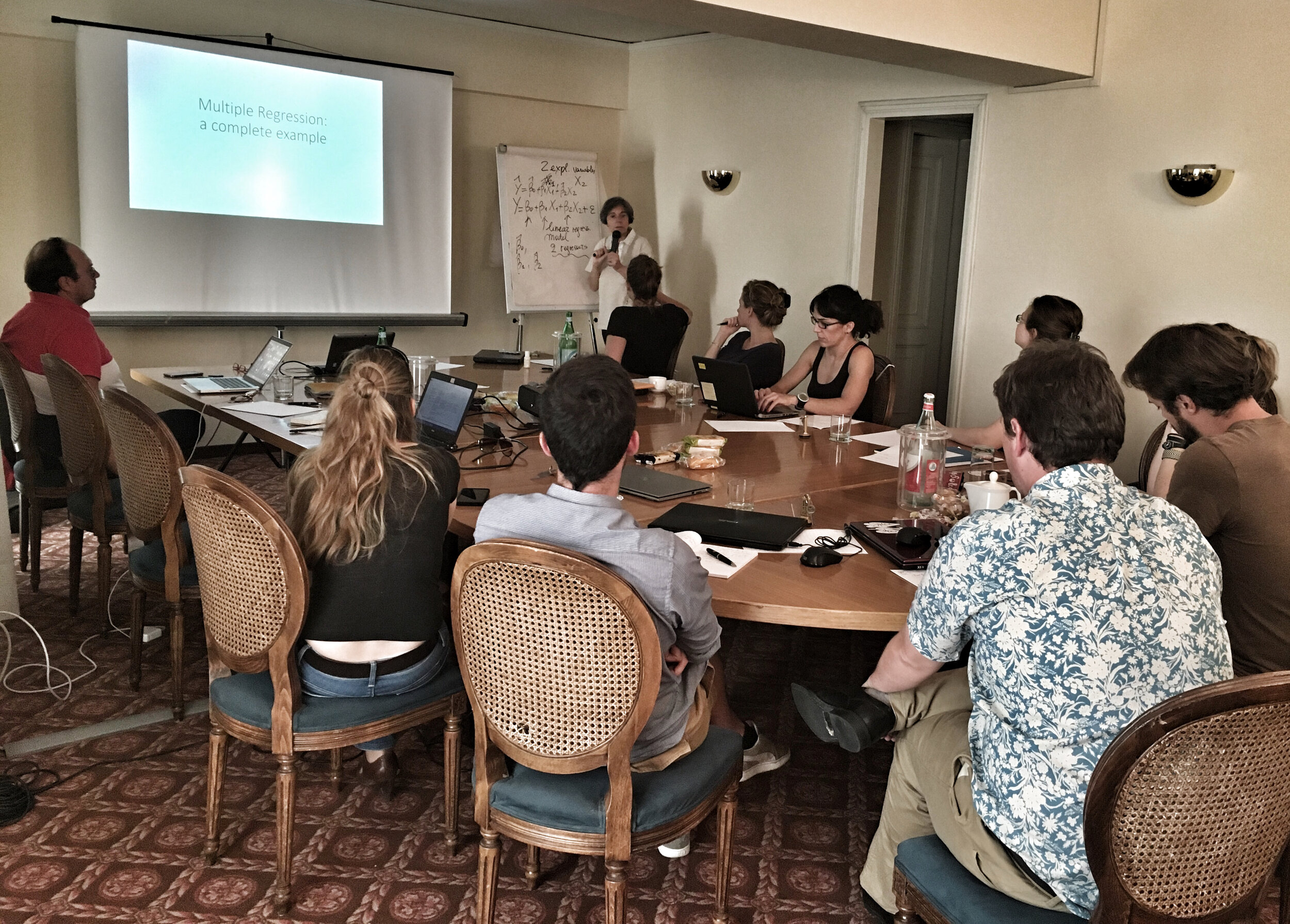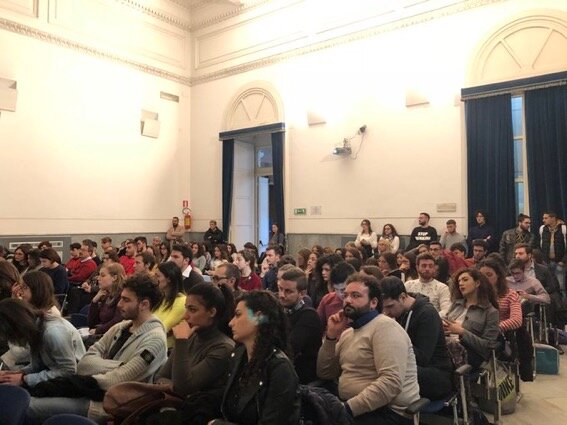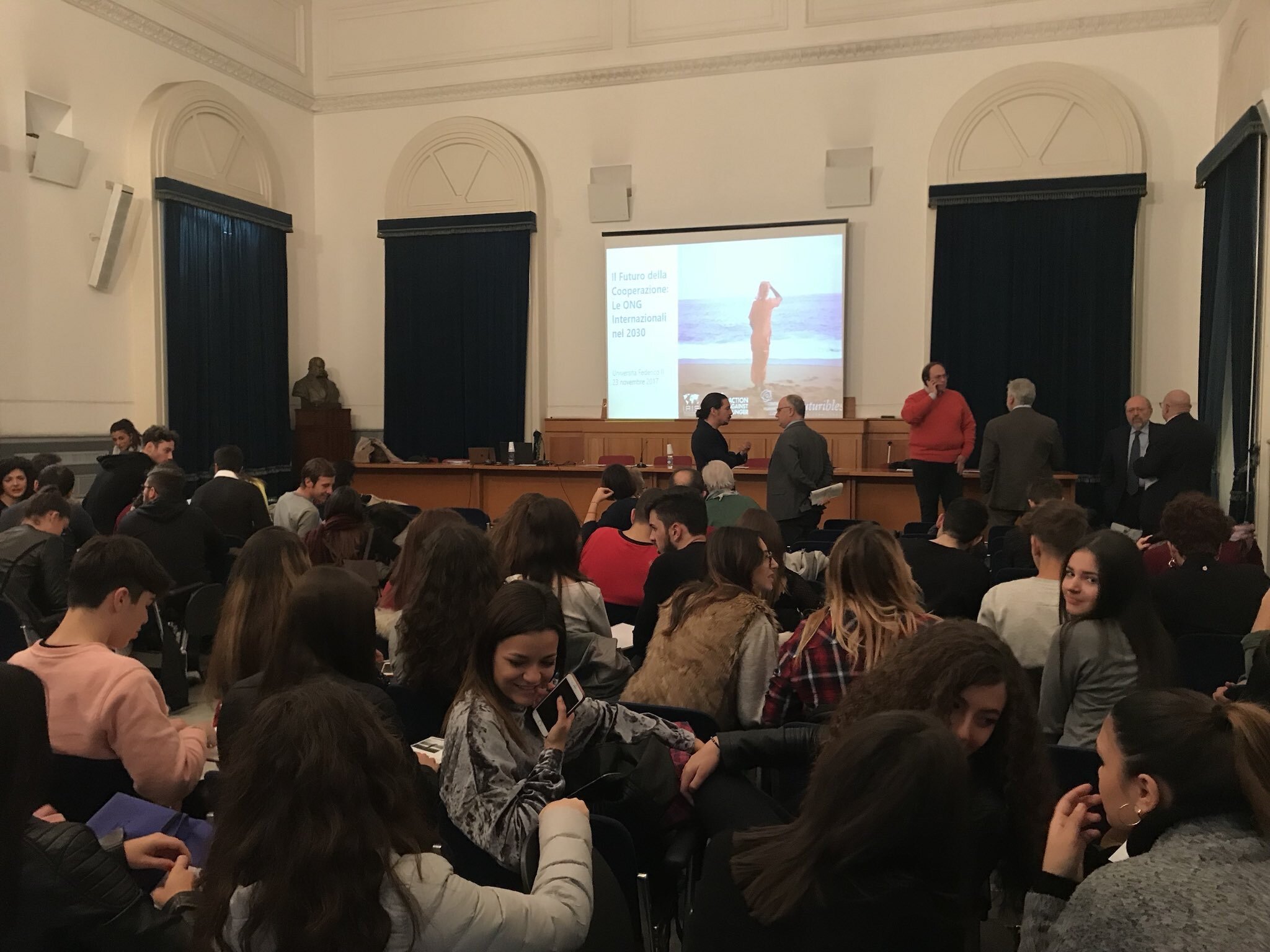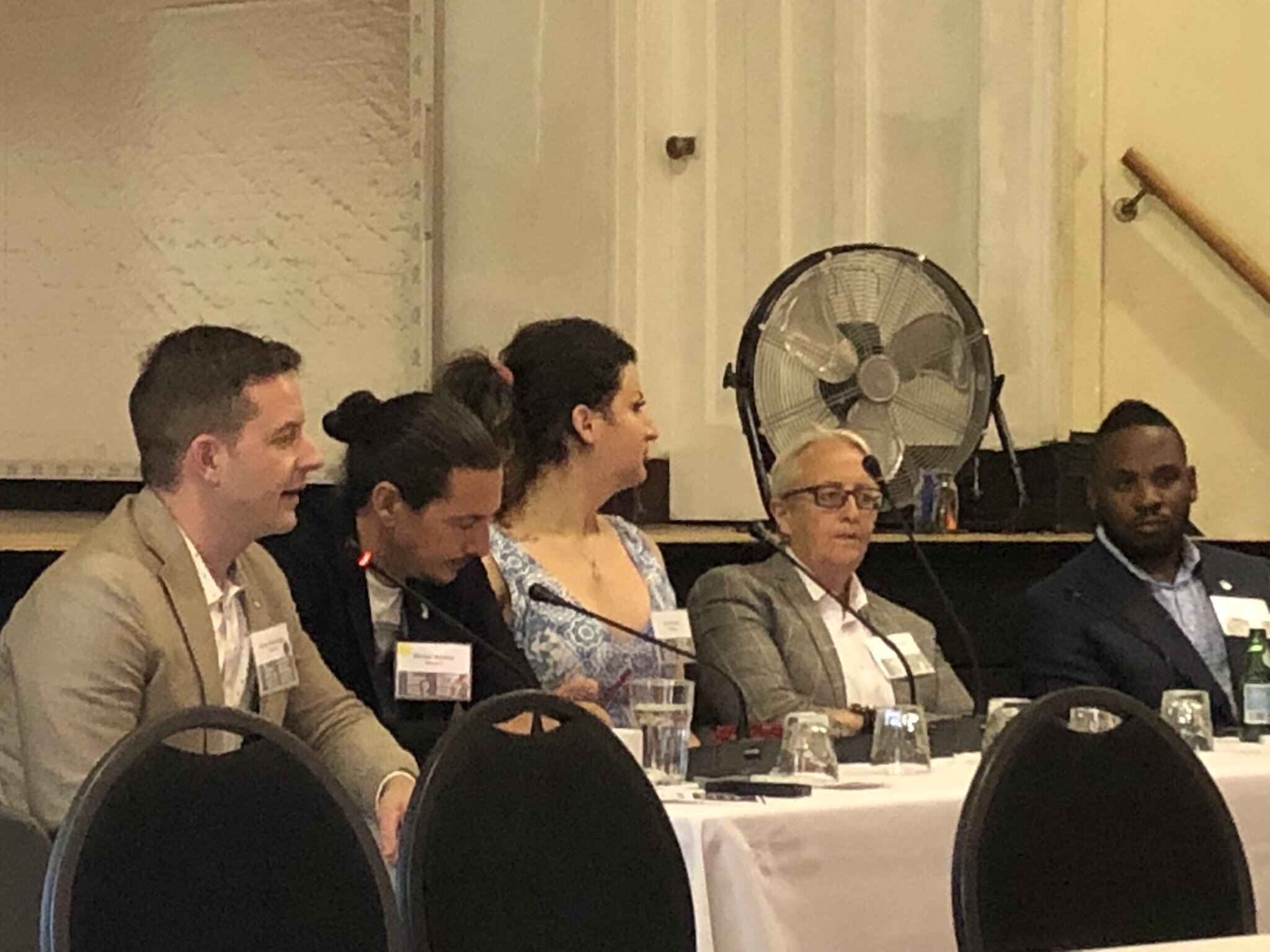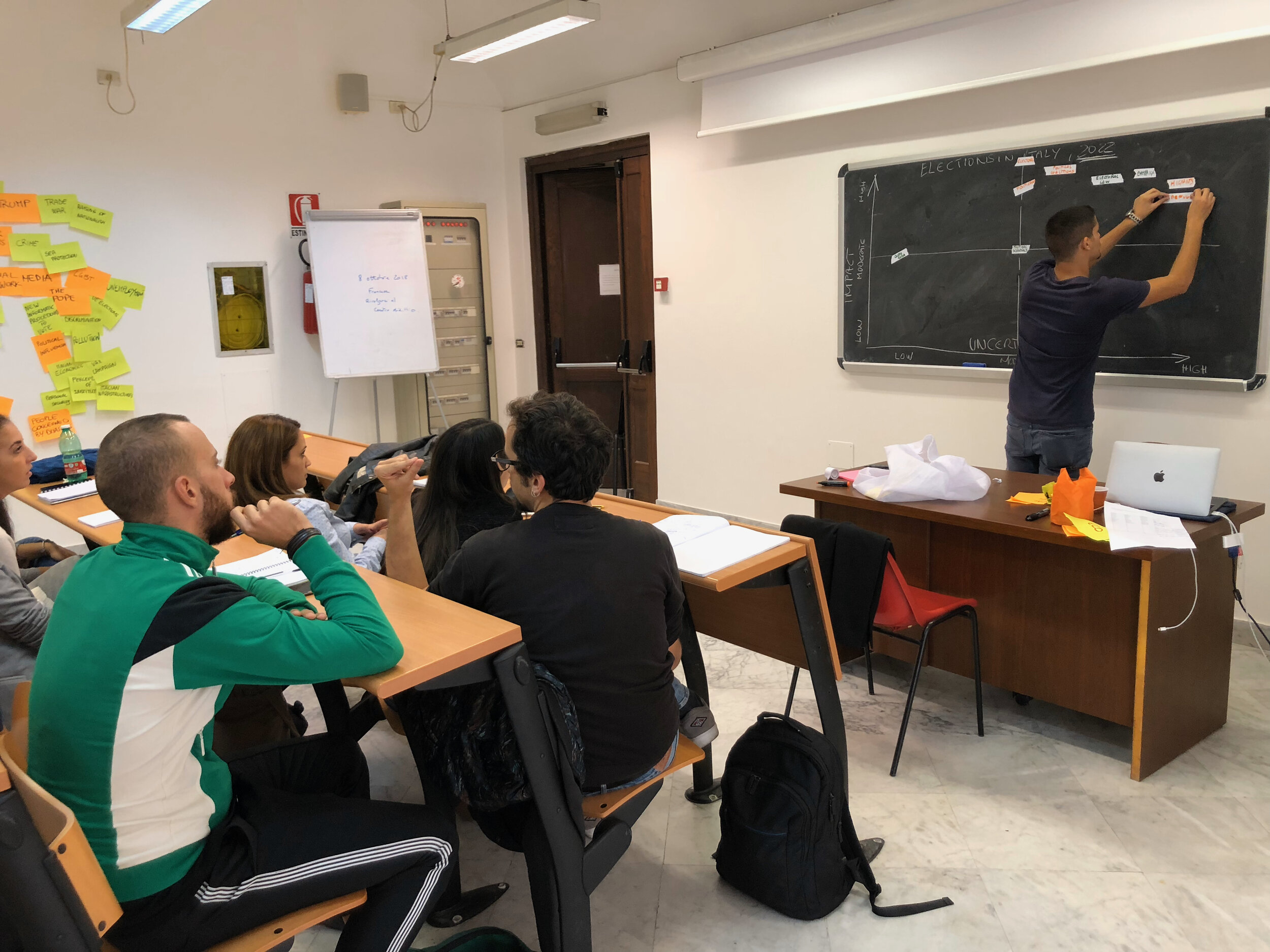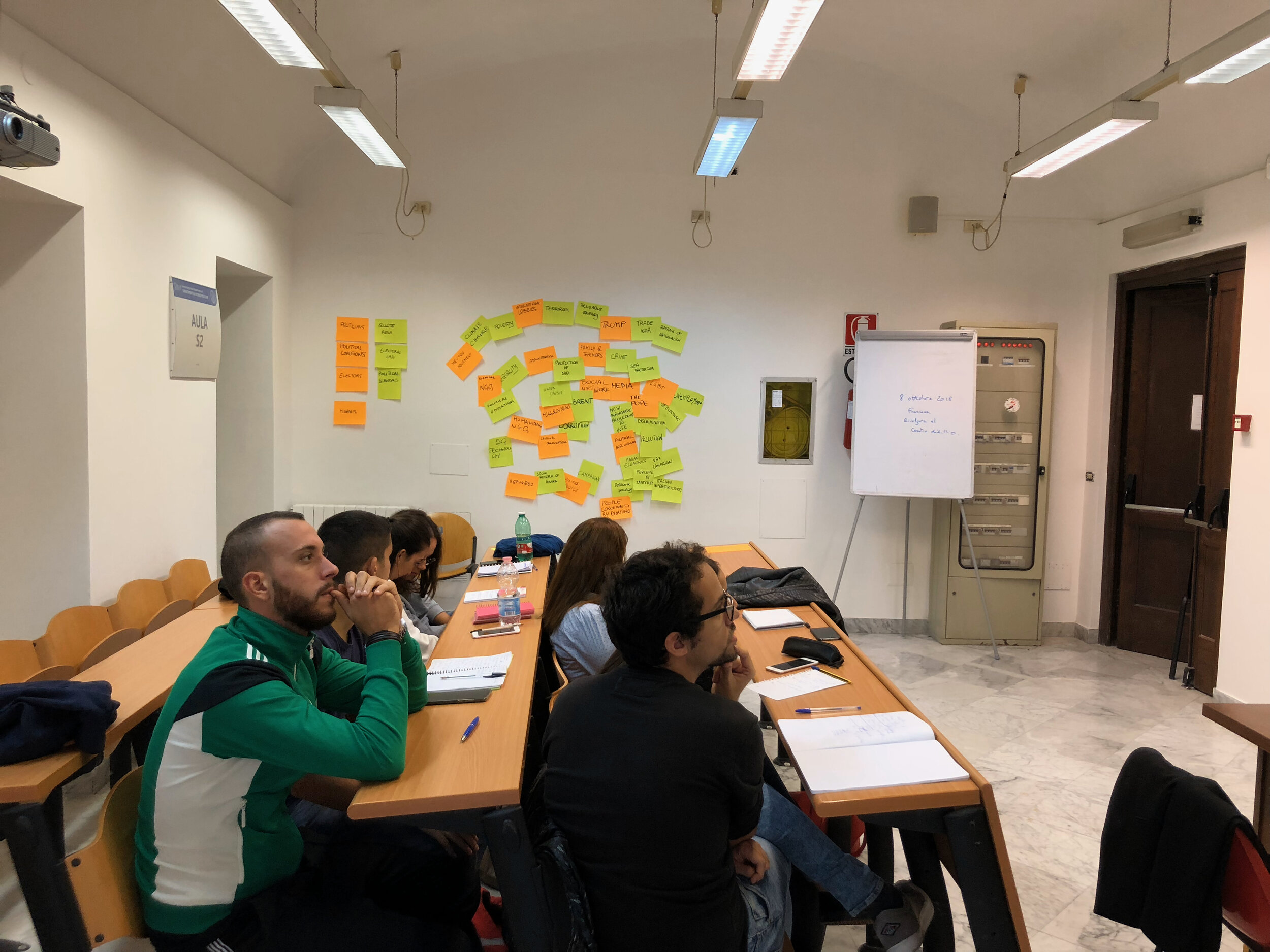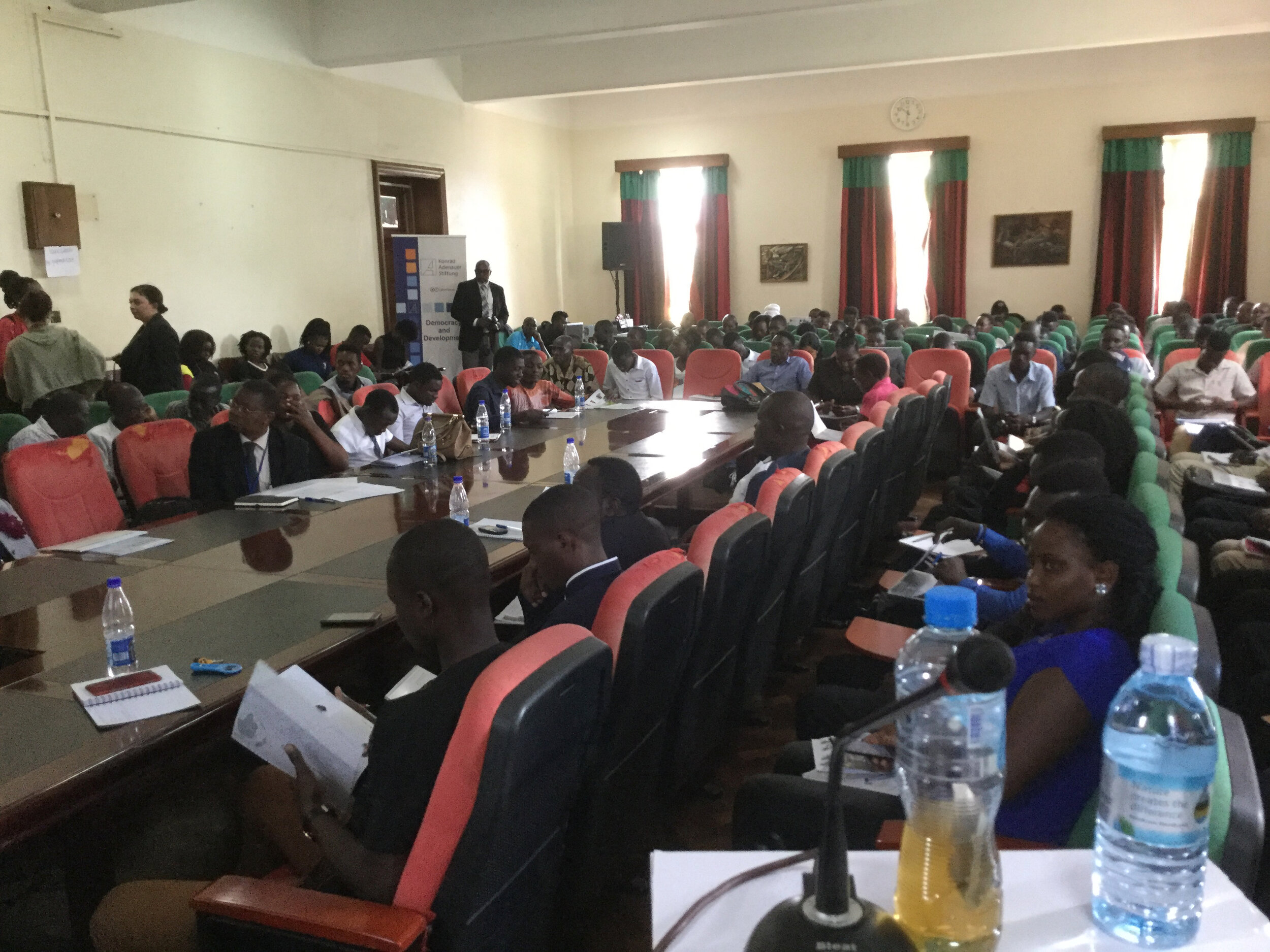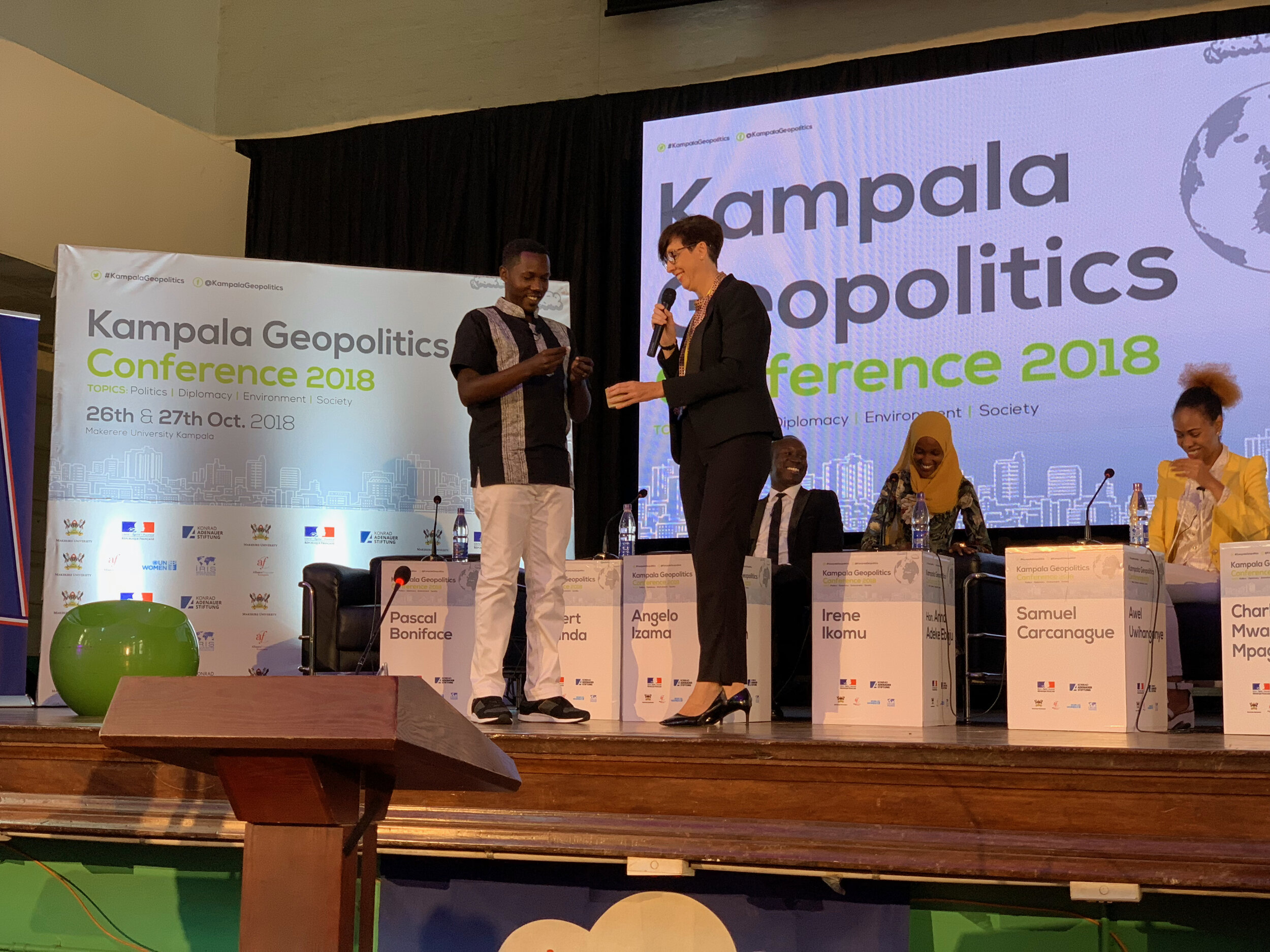Strategic Planning
For Humanitarian & DEVELOPMENT Actors
Strategic foresight is not so far away!
We are IARAN, we use foresight to underpin strategic thinking and collaborative approaches to build better futures for, and with, people affected by crisis.
Following of several months of collaborative work between IARAN Practitioners and Futuribles International, we are very proud to launch this innovative and certified course.
Struggling to keep pace with the changing context? Enroll in our program and learn how to master uncertainty! You will discover powerful tools, tested and validated by our experience in the humanitarian ecosystem - you will learn how to apply them through concrete case studies! Register now!
Objectives and targeted skills
Humanitarian and development stakeholders, including NGOs, private sector actors and national governments are seeking the best ways to meet immediate needs while also contributing towards achieving long-term goals such as the SDGs (Sustainable Development Goals). Within the context of complex crises, traditional short-term, single-agency programming that stops at the country level will not be enough to manage the scale of human needs.
Strategic foresight approaches and tools help:
To maximise the value-add that concerned actors can have within complex, ecosystemic crises.
To think beyond the life-saving imperative, pre-empt the future and develop local resilience.
To understand the system in which humanitarian and development stakeholders operate
To avoid overestimating of the role that they can play.
To challenge neo-colonial mental models of aid.
This training supports organisations to see how strategic foresight approaches can add value to their current programmatic and organisational practices, increasing their impact and enhancing their contribution to the SDGs. At the end of the training the attendee will:
Be able to understand complexity and ecosystemic dynamics.
Know how to create a strategy based on foresight approaches.
Engage in collaborative and adaptative approaches based on strategic foresight.
Challenge its current practices of programming and strategy.
Support its organisation on the path of change and transformation.
The training is accessible both face to face (maximum 10 people) and virtually.
Training Programme
Day 1
9h00-9h15 – Welcome / Networking
9h15-9h45 – Introductions
9h45-11h15 – Brief Introduction to strategic foresight concepts:
Navigating in the possible futures: simplifying complexity
11h15-11h30 – Break
11h30-13h00 – Workshop: from complexity to possible futures
Impact/uncertainty matrix
13h00-14h30 – Break
14h30-16h00 – Strategic Development: Programming
From possible futures to agile strategies
16h00-16h30 – Break
16h30-18h00 – Case Study: The Tanzania scenarios - Prompting Action Contre la Faim & Co. strategy
Day 2
8h45-9h00 – Welcome / Networking
9h00-10h30 – Strategic Development: Organisational Transformation
The value chain
10h30-11h00 – Break
11h00-12h30 – Workshop: A framework for a fit for the future organisation
The competence tree
12h30-14h00 – Break
14h00-15h30 – Case Study: The French Red Cross International Department Transformation towards 2030
15h30-16h00 – Break
16h00-17h00 – Conclusions
A survey will be shared with the attendees prior to the course beginning, asking them to share what they know about the practices of programming and strategy and what their expectations are for the course to enable the instructors to tailor the agenda to the group’s needs. Links and instructions for the use of collaborative and virtual platforms will be sent, as well as a shortlist of resources on the current and future humanitarian transformations (estimated total time for the survey and the readings: 2 hours).
Monitoring and assessment of the results
All sessions are interactive. Each session is introduced by a presentation punctuated by exchanges with the participants: f2f or virtual, attendees will discuss the content via a chat on Zoom. The use of workshops will focus on skills development to enable participants to feel confident in using the tools explored without support when they return to their organisations.
Target audience and preconditions
The training is aimed primarily at executives, managers and people responsible for operations, programmes, and implementing strategies within companies (CEOs, COOs, Division Directors, etc), NGOs (CEOs, board directors, country directors, regional directors, desk officers, field officers, project managers, technical advisers, etc.), public bodies and territories (local and government representatives, directors, officers, authorities, etc.) and, more generally, all stakeholders in the humanitarian and development sector.
We reserve the right to contact you to discuss your experience in order to guarantee sufficient homogeneity within the group to ensure the quality of the training.
Facilitation and platforms
The training is facilitated by Eilidh Kennedy, Director of IARAN and Michel Maietta, Founder of IARAN with the support of Marie-Agnès Tur, Advisor to the Secretary General on Social Impact and Future of International Action at French Red Cross; Mariana Merebo Lobo, International Humanitarian, Development Practitioner and Partnership Broker and Arthur Magnes, Junior Researcher at Futuribles International..
A file will be given to participants including a copy of the main resources used as well as a bibliography. This file will be sent before the training and can be completed during the training.
The number of participants will be limited in order to allow for sufficient discussion and interaction. Virtual sessions will be facilitated via Zoom, Miro and Sli.do and sessions will be recorded.
Registration fees and duration
The registration fee is 1.380 € excluding tax, or 1.656 € including VAT.
This price includes participation in training and all the support material. Lunch is offered to participants present. Any multiple registration allows, from the second registration, to benefit from a 10% reduction (discount cannot be combined with the discounts enjoyed by Futuribles International members). Partner members of Futuribles International are exempt from registration fees (valid for one person, subject to availability).
You can reach Corinne Roëls - croels@futuribles.com , for any questions on the methods of remote participation. Futuribles International is an approved training organisation. Its registration number is 11751653975. Futuribles International can be referenced in the DataDock and it is Qualiopi certified.
The training lasts 14 hours.
Evaluation
This training session will be evaluated by the participants via Sli.do, at the end of the session and in writing, through a survey sent to all attendees.
Alumni Testimonials
Martine from Coalition Plus and Jean-Michel from ANSS Burundi share their thoughts or our Strategic foresight Course which they attended last year. Their review: a unique and intense experience, enhancing their strategic thinking and providing tools to support their organisational transformation.




